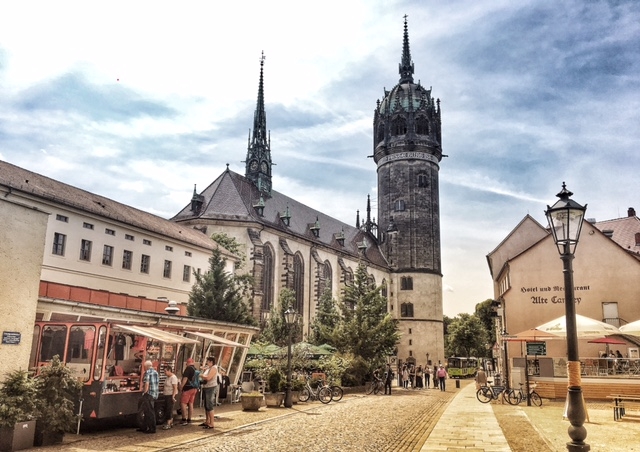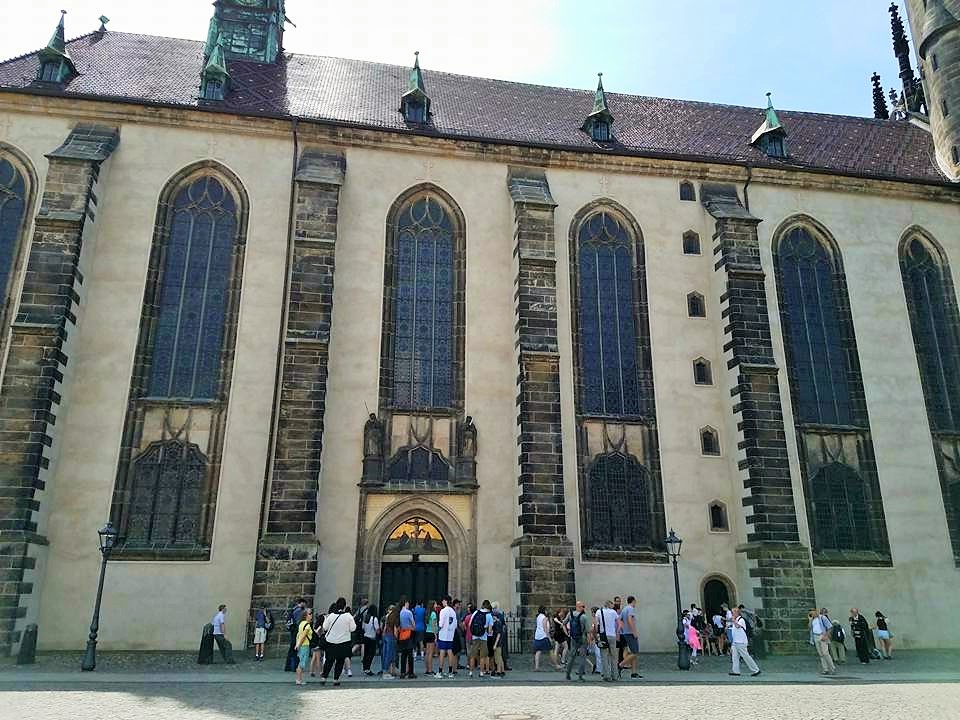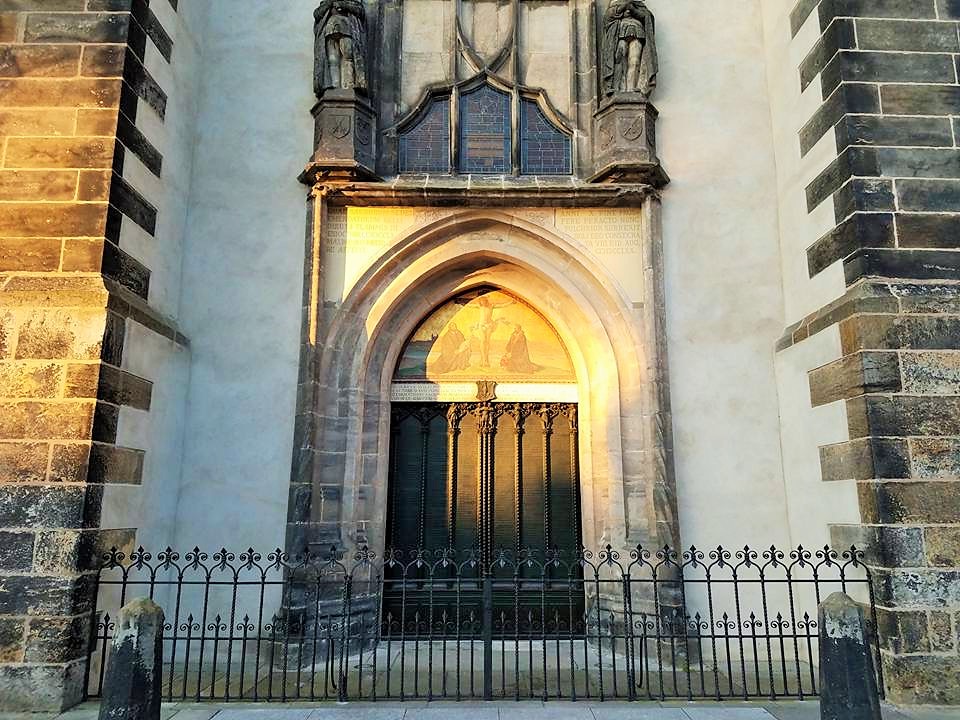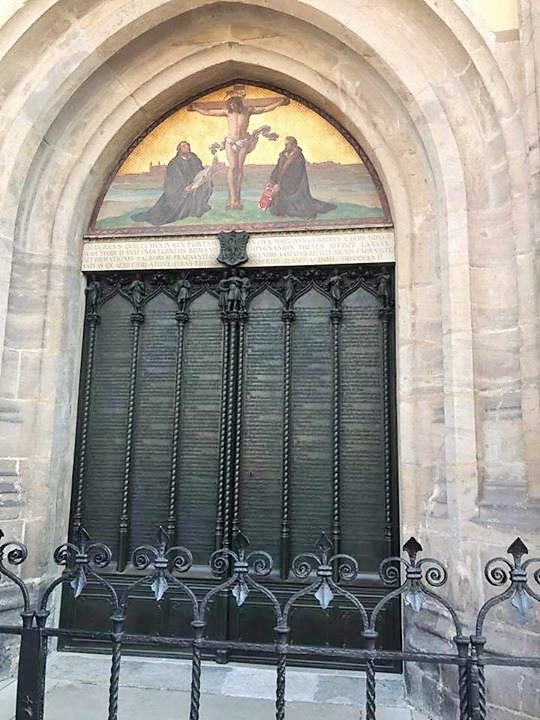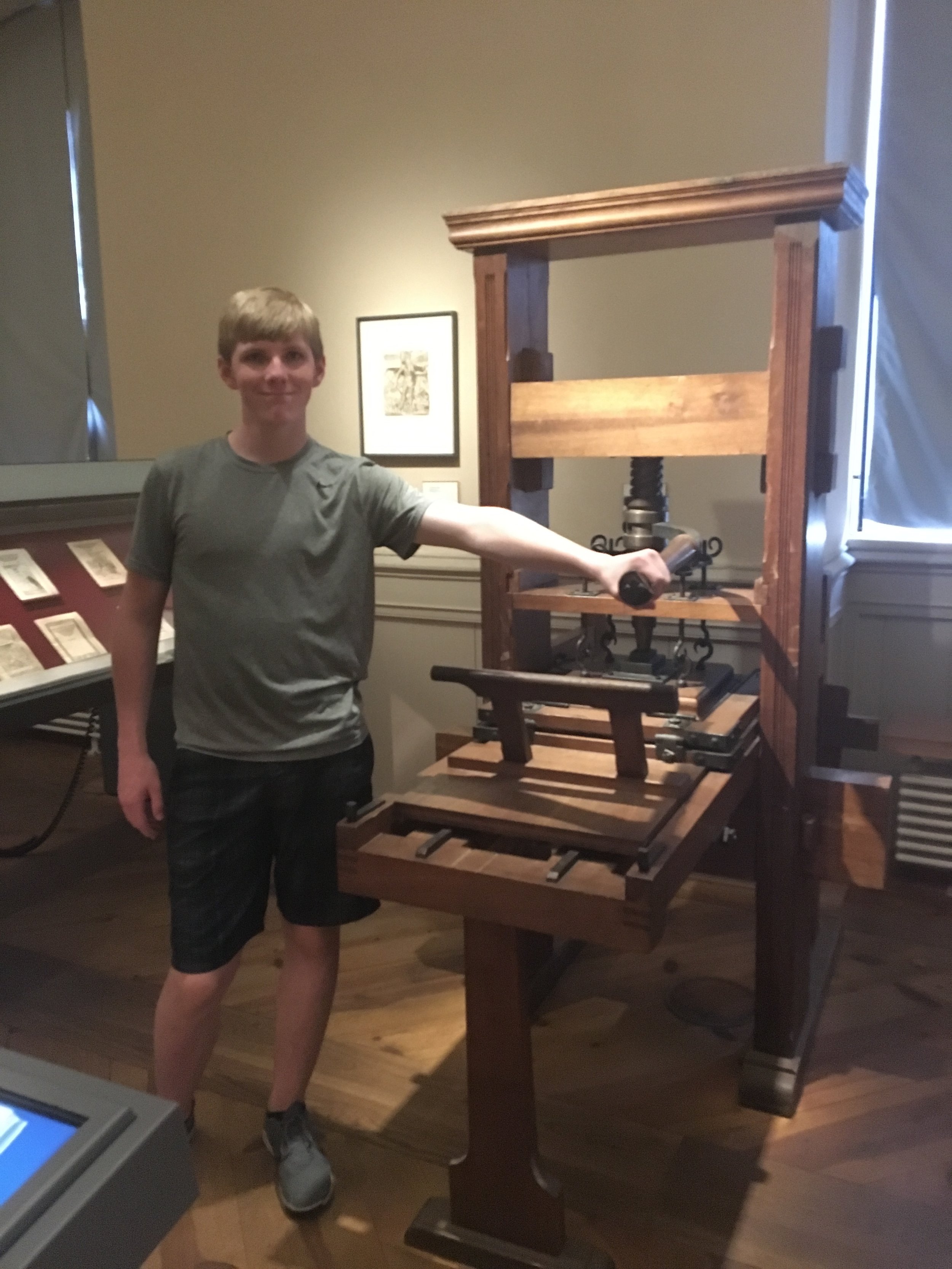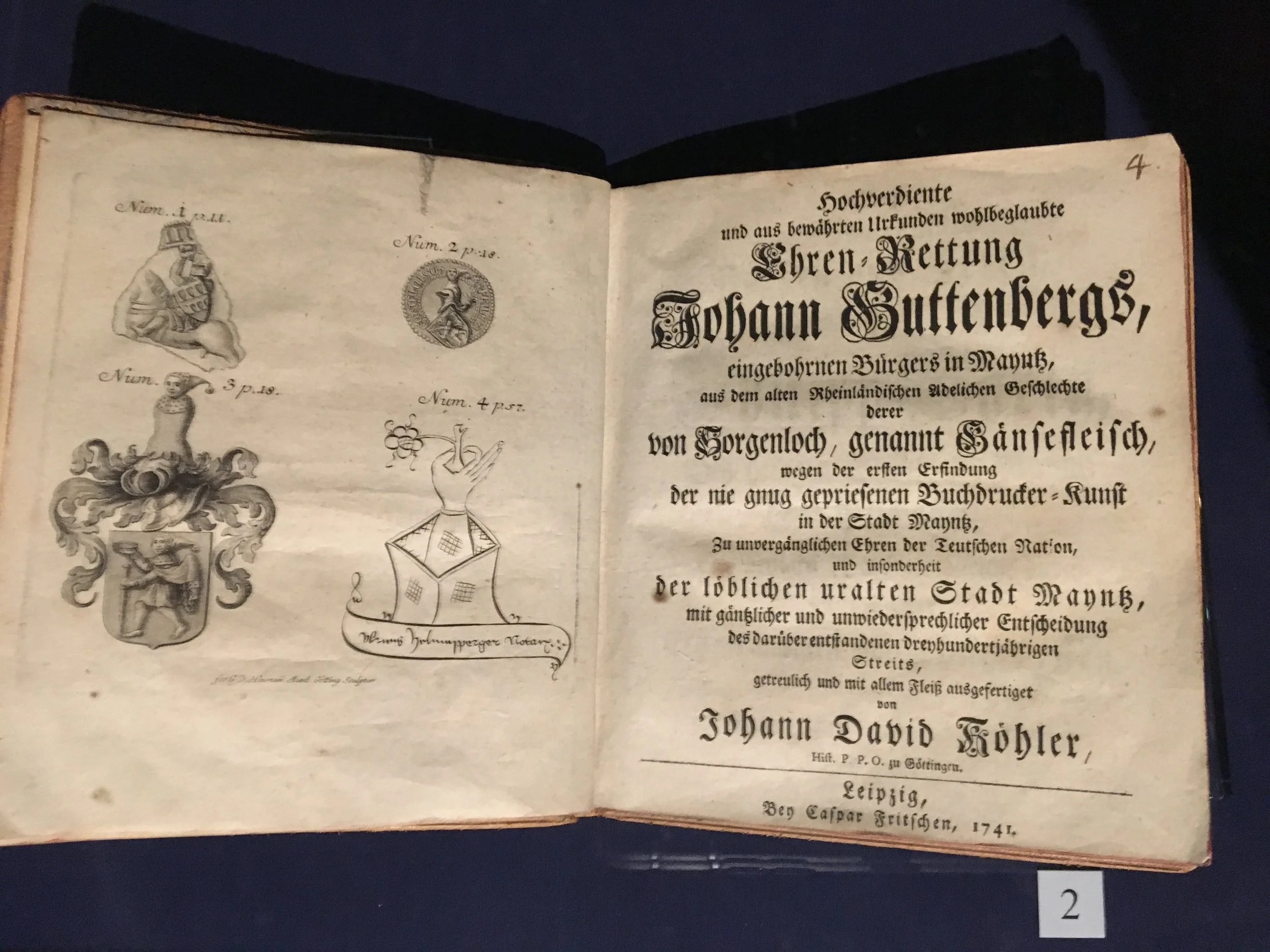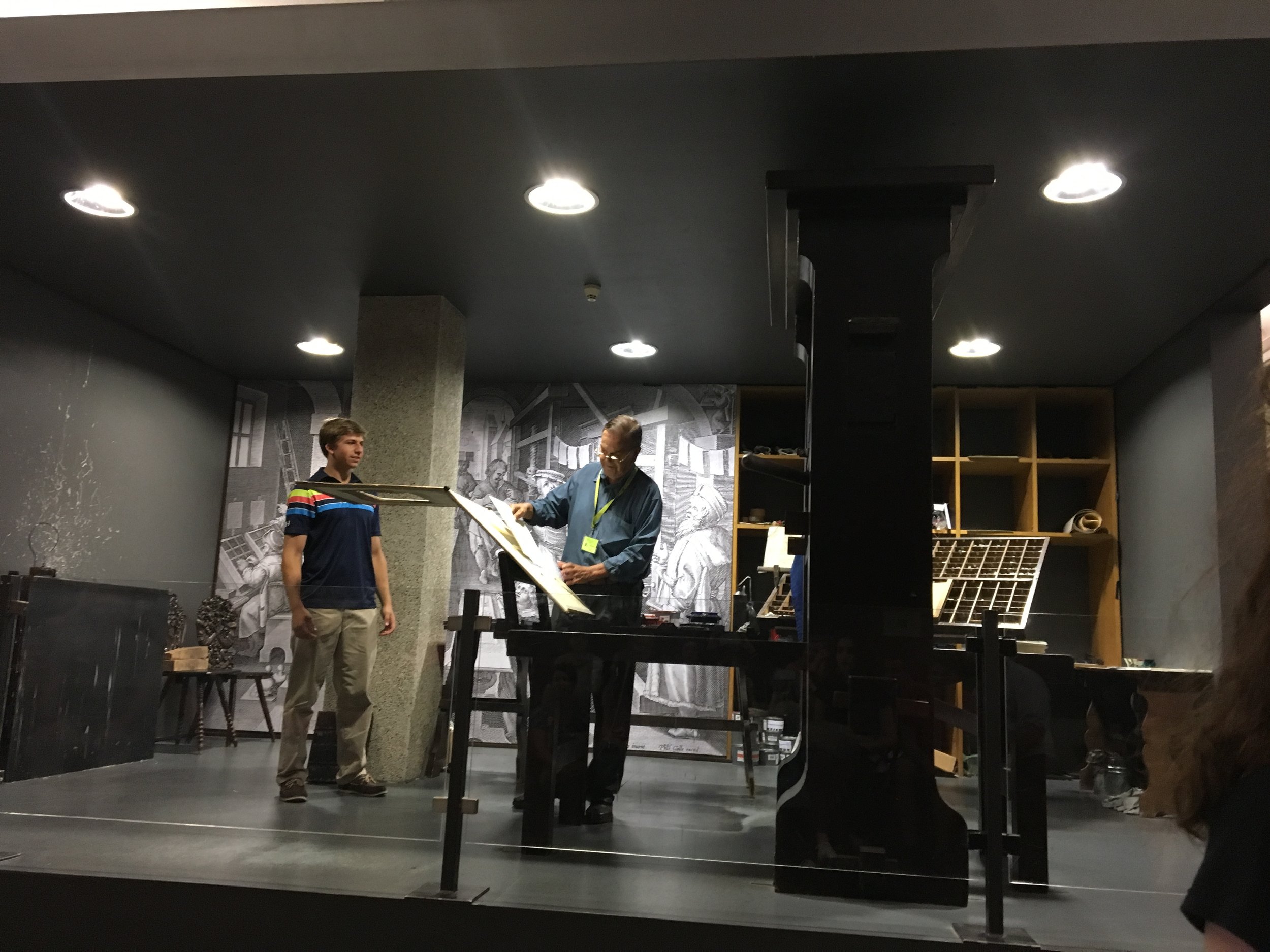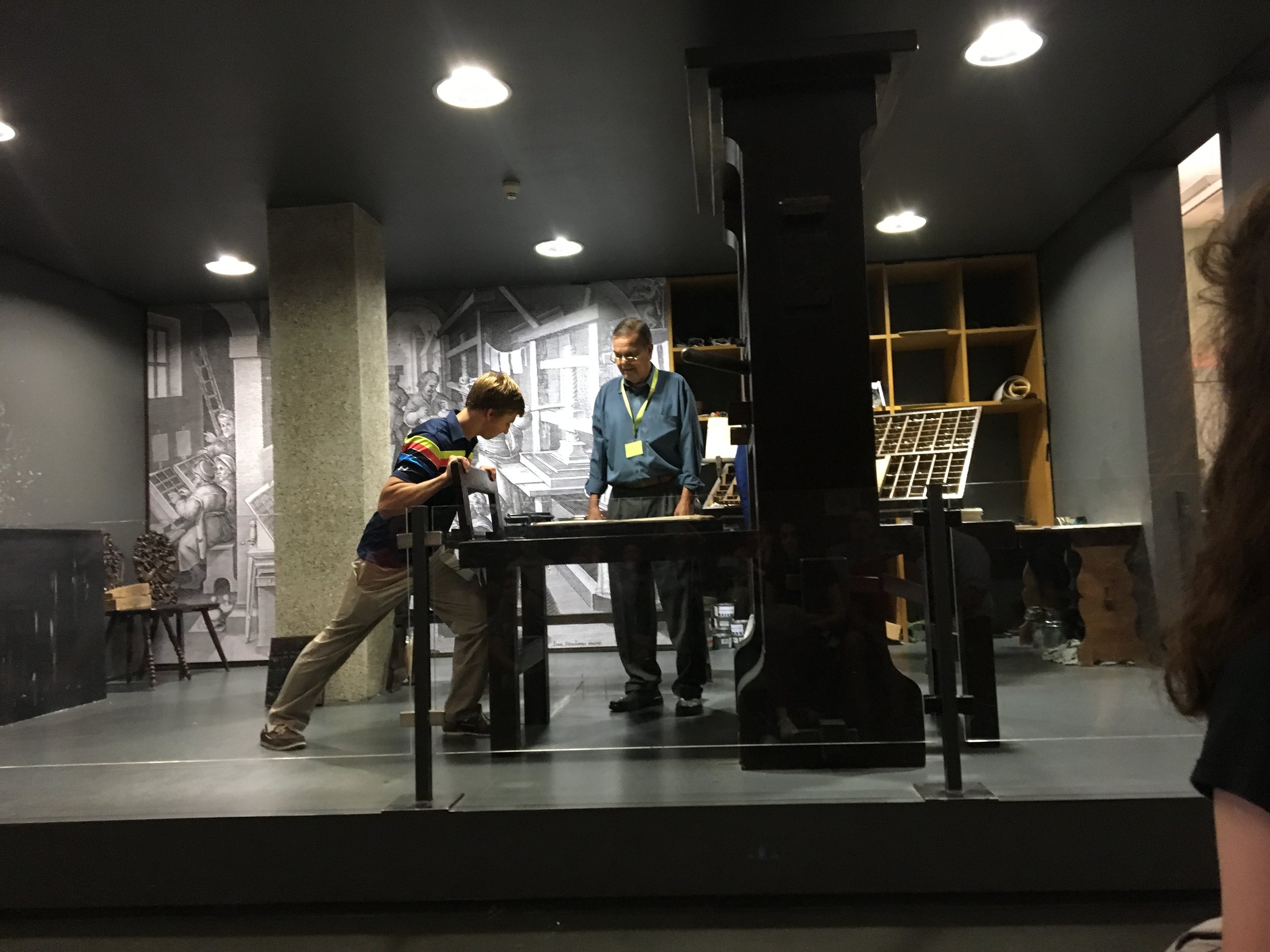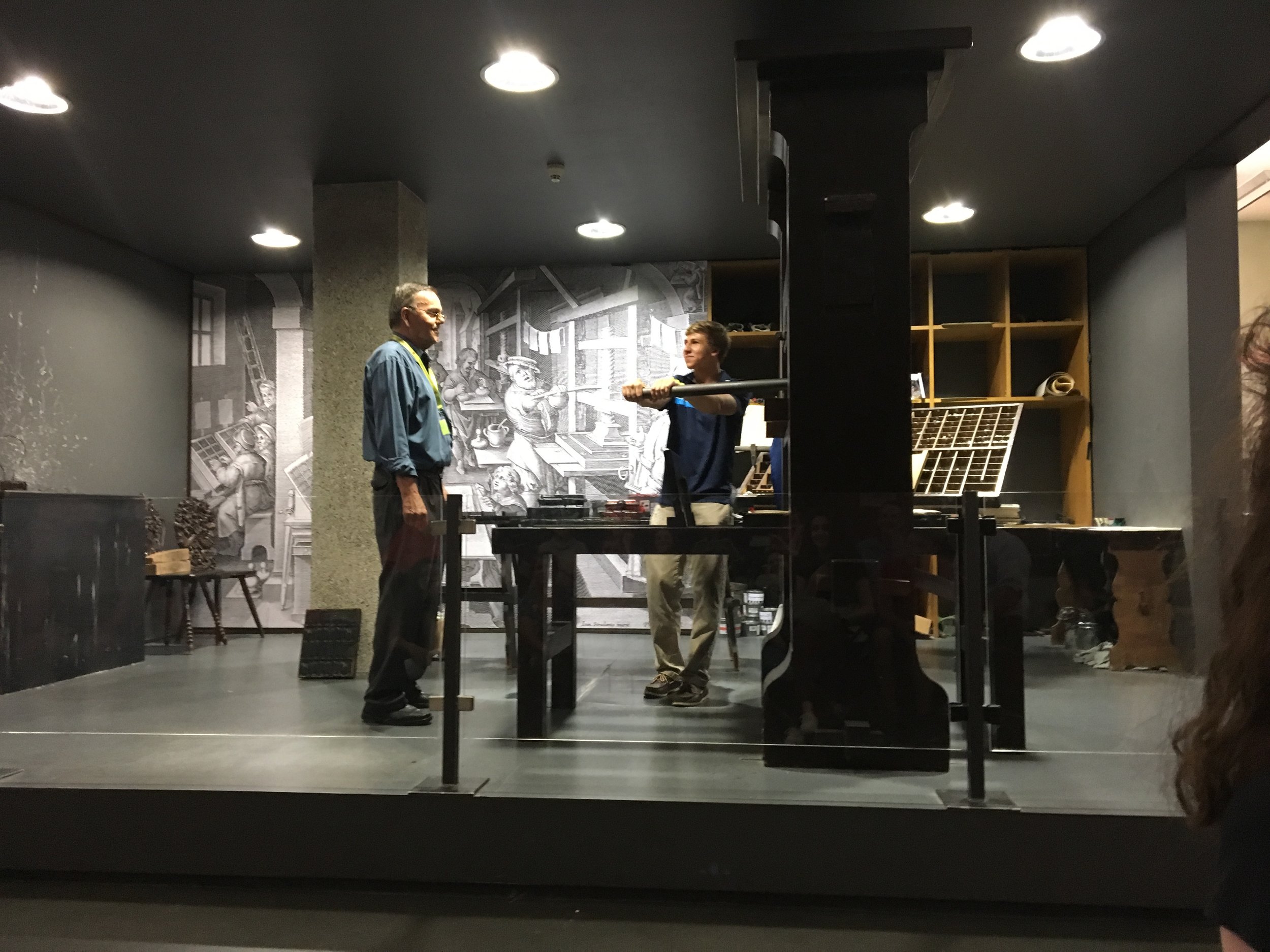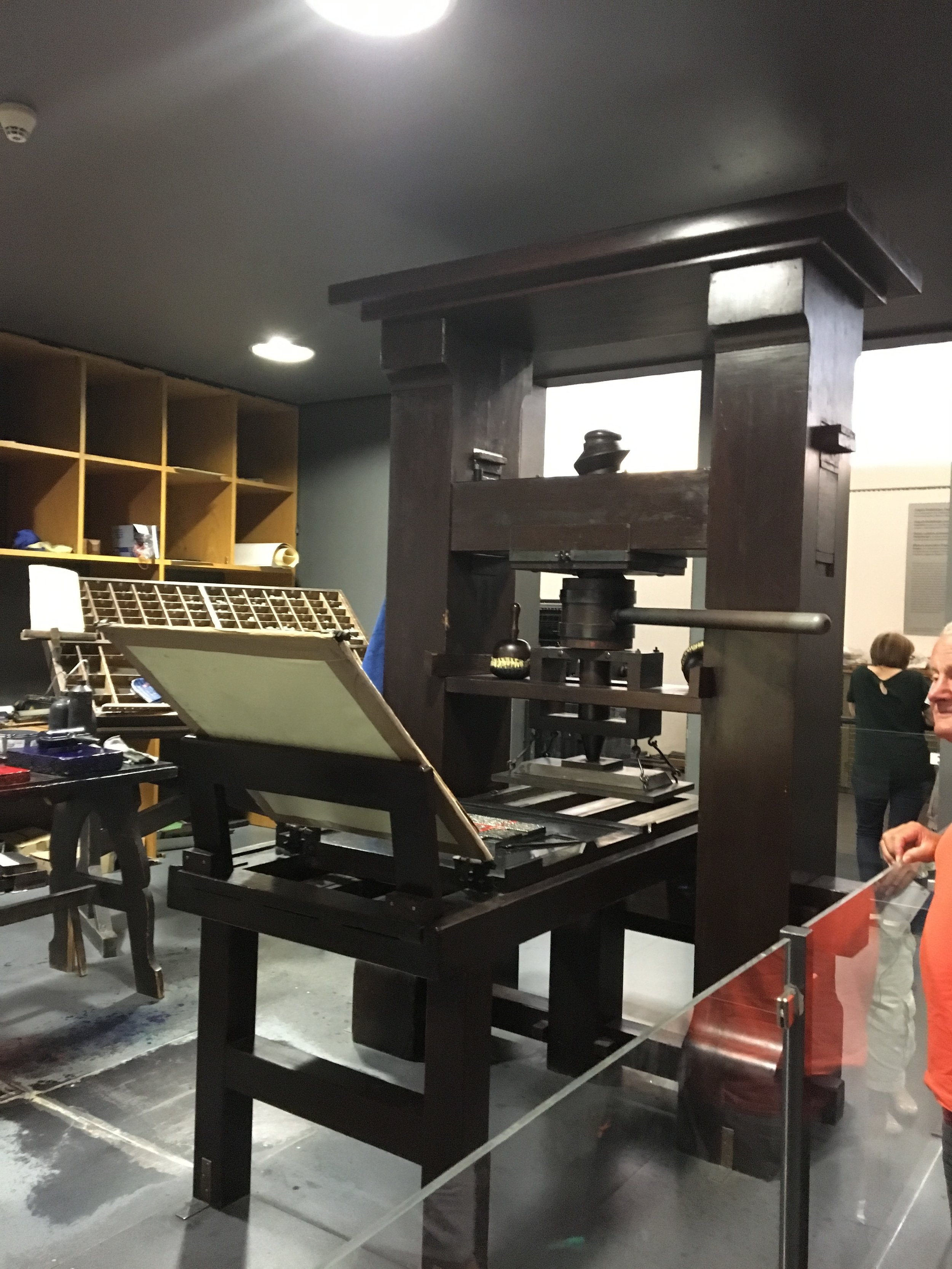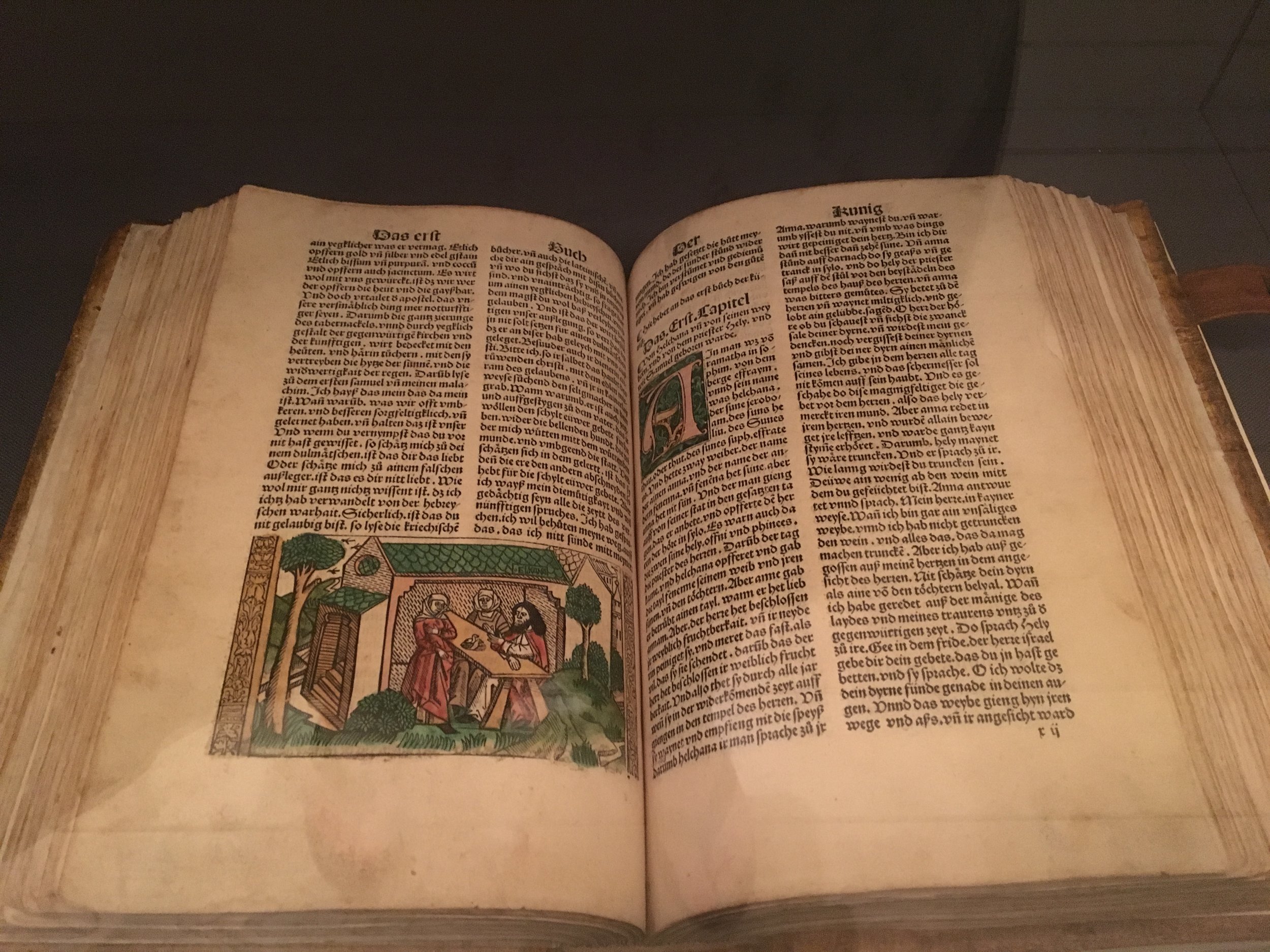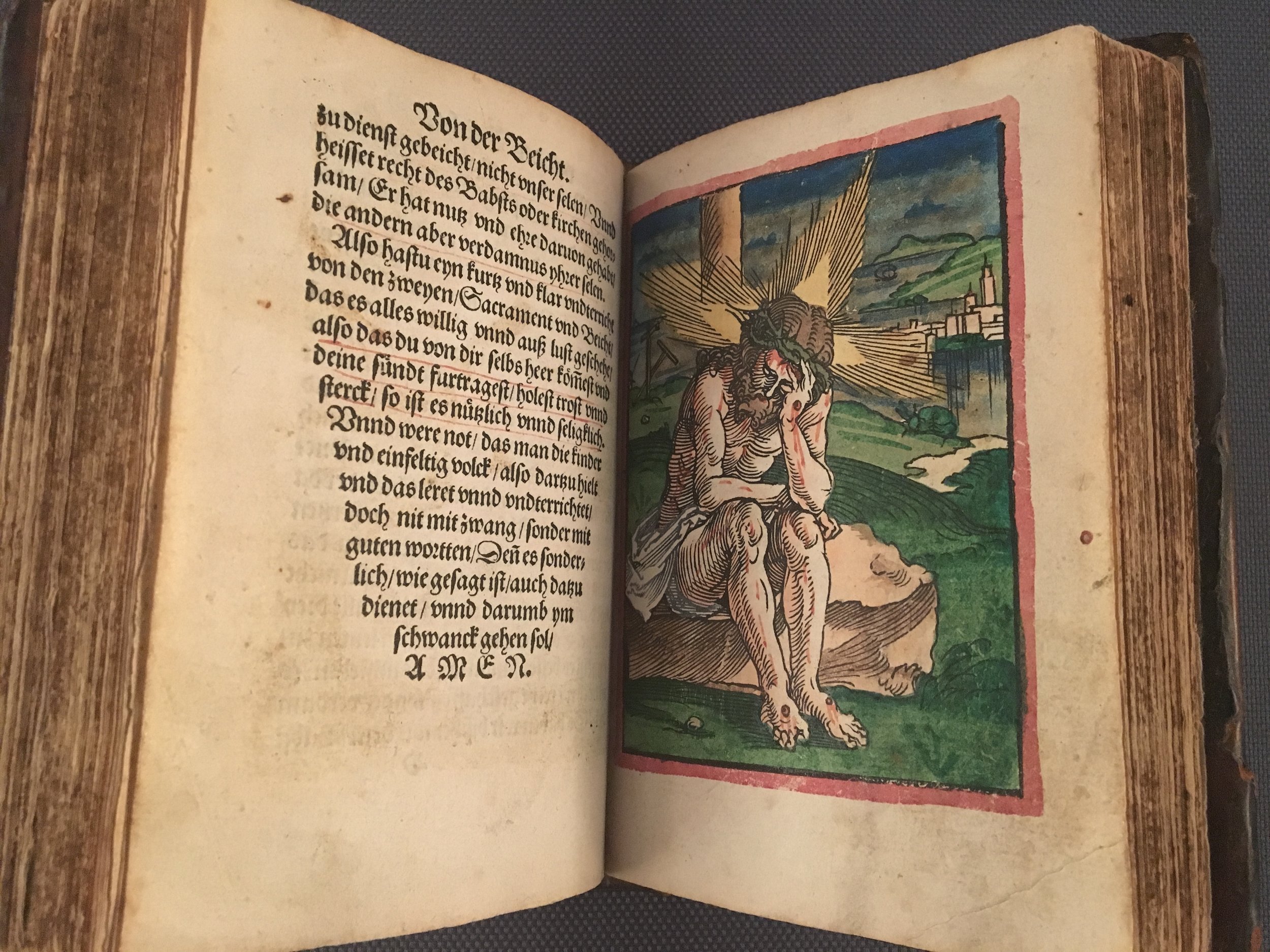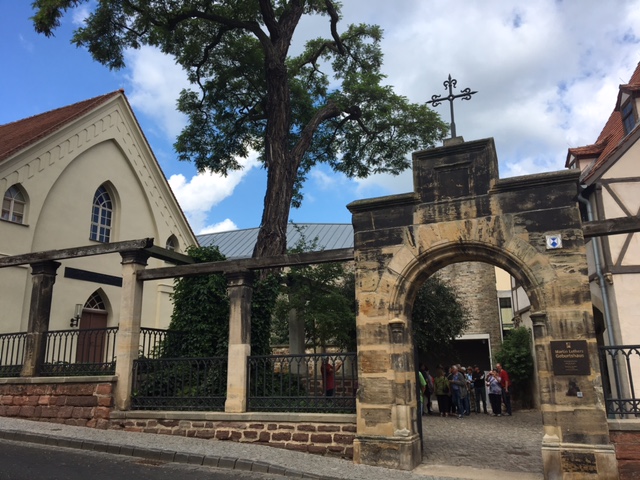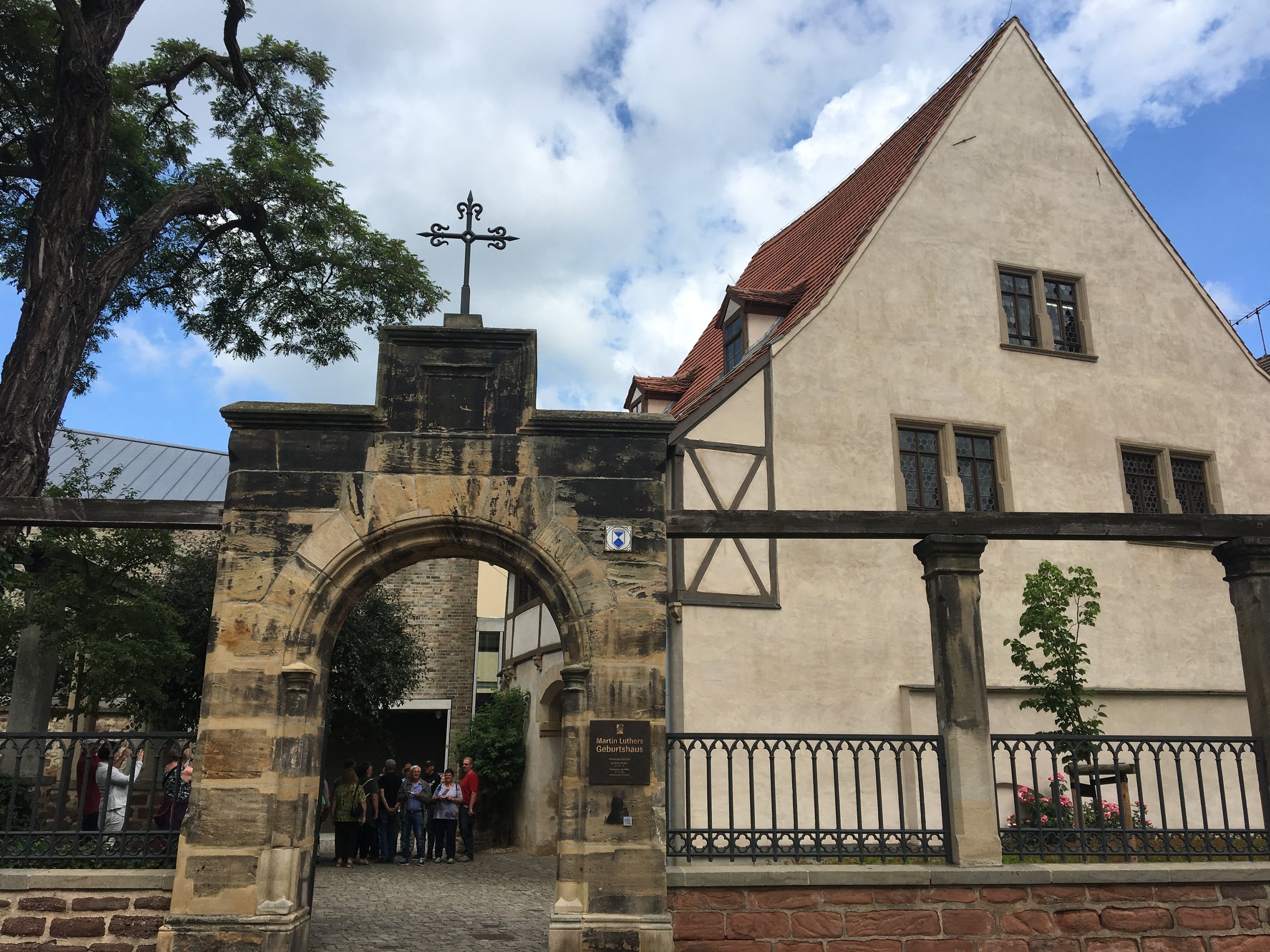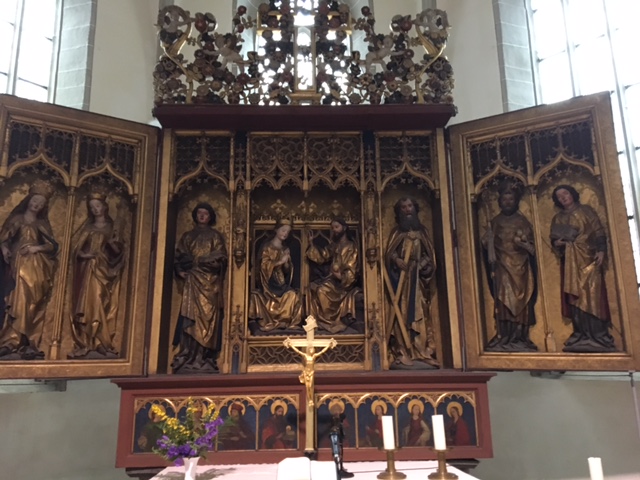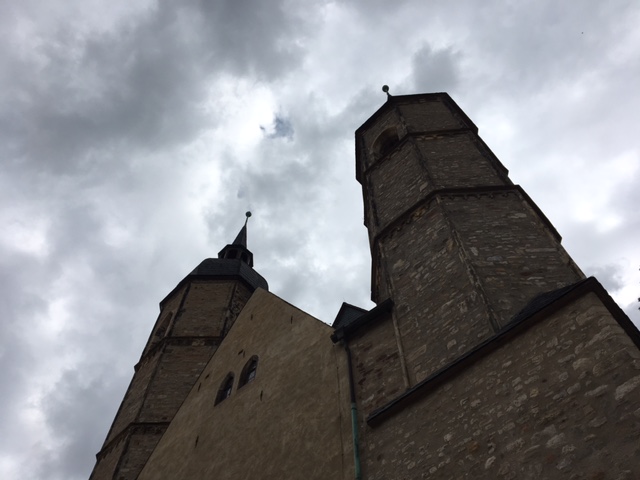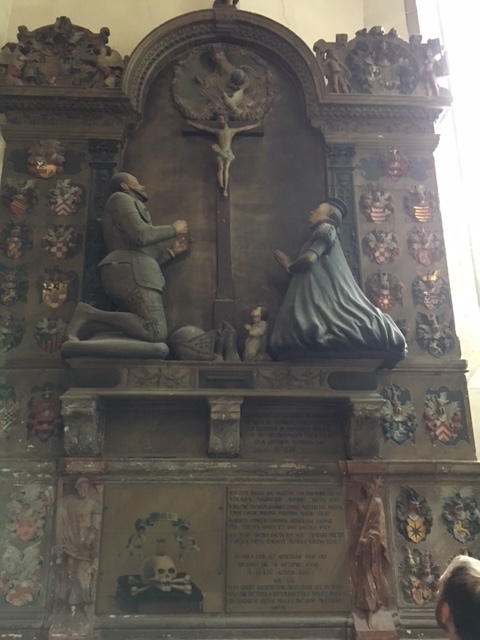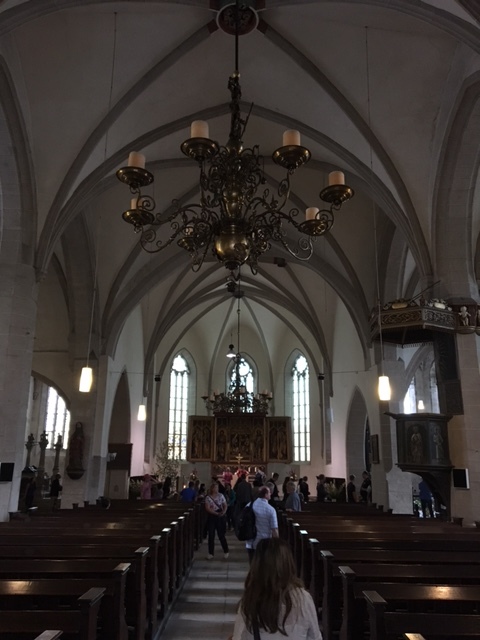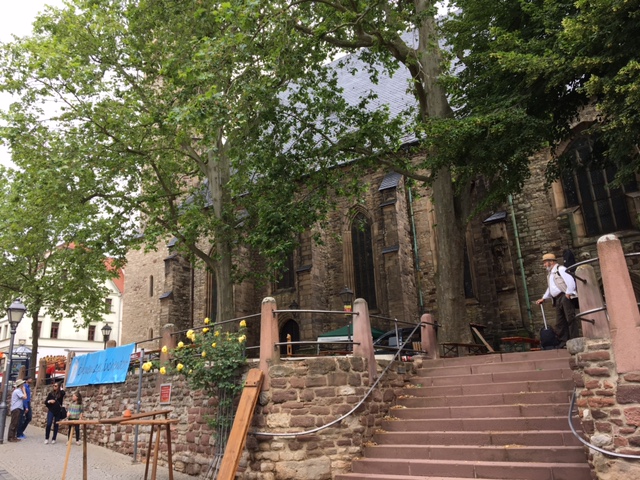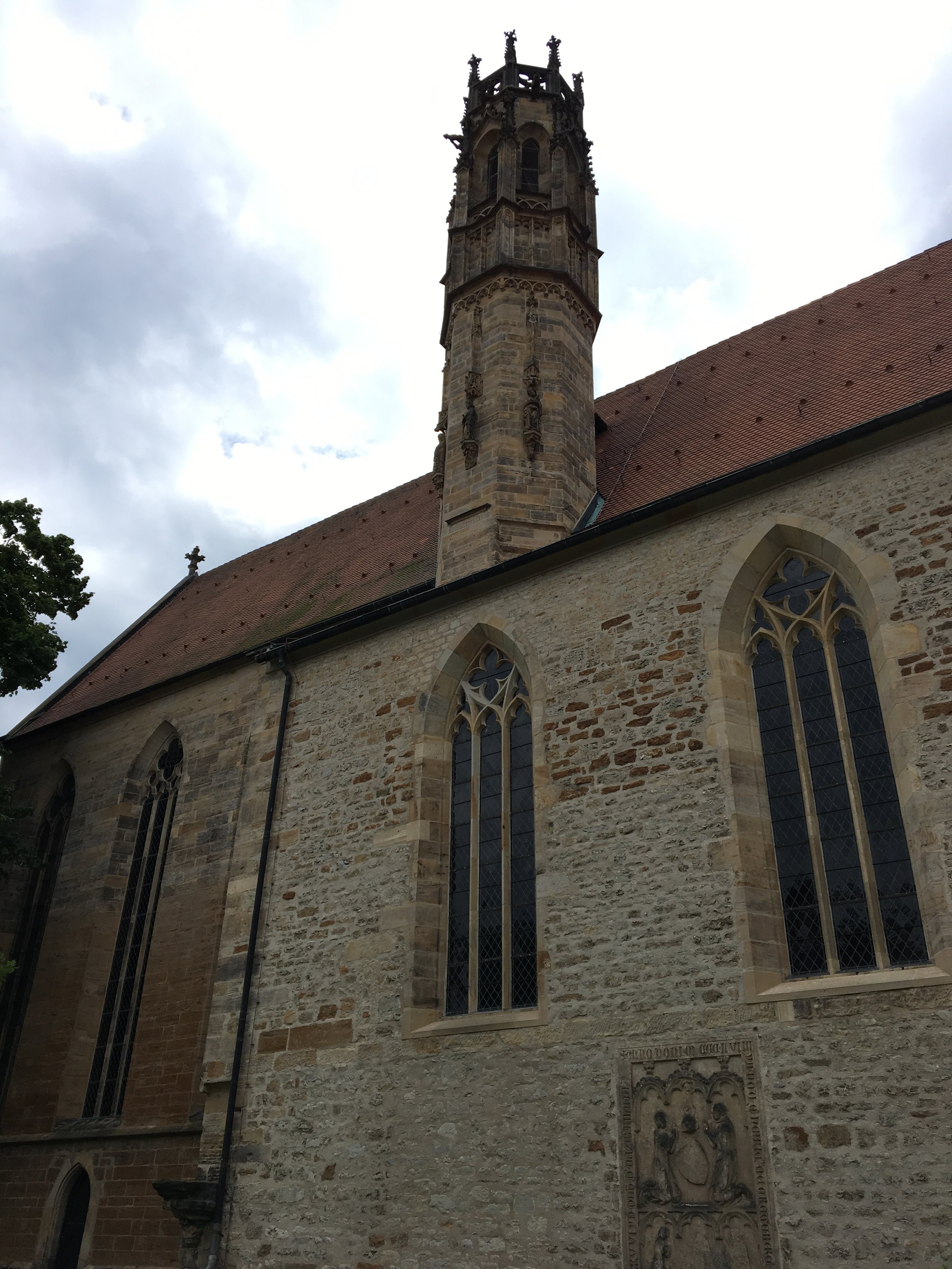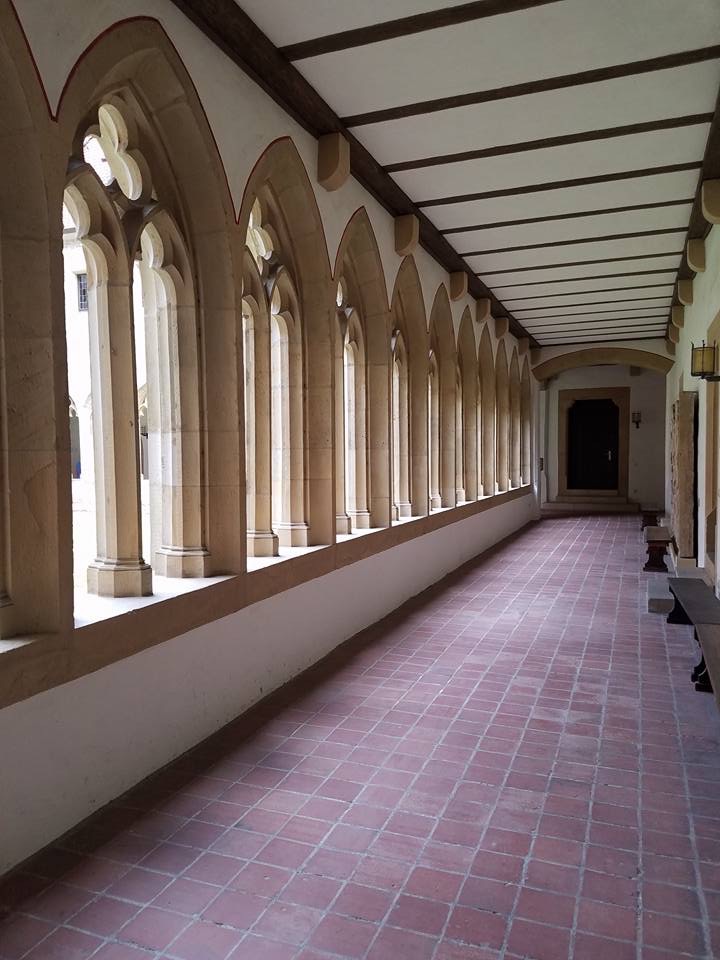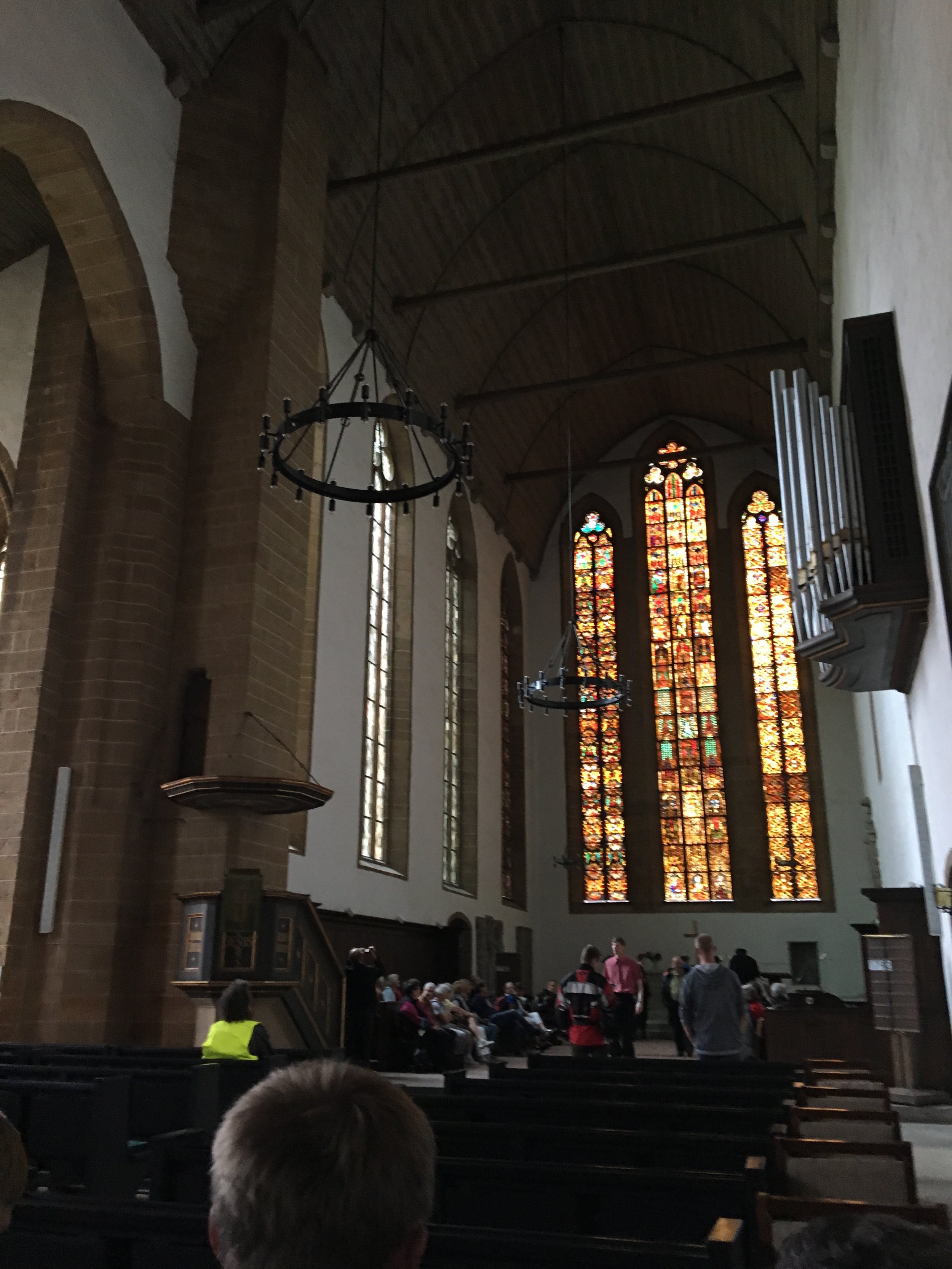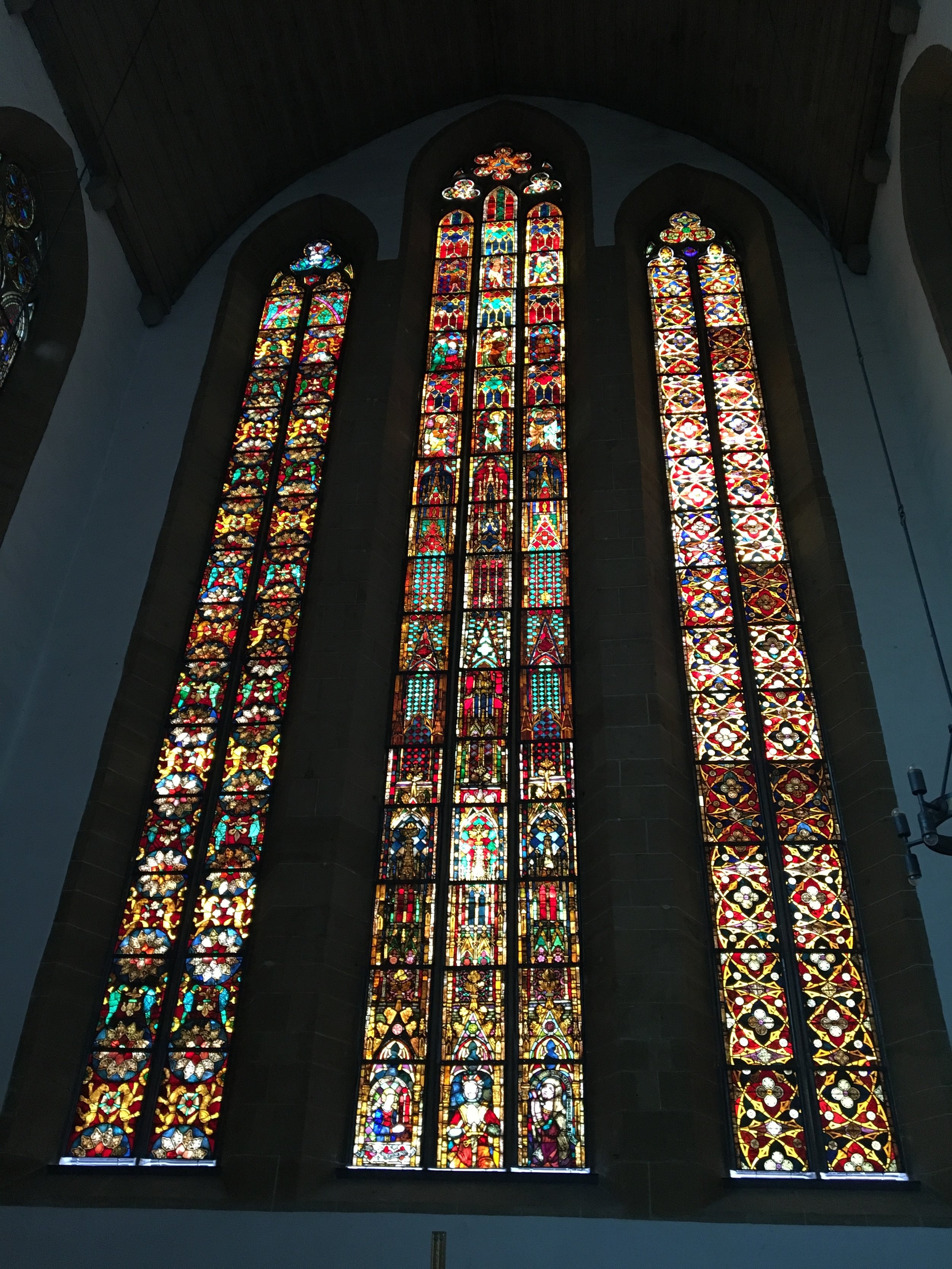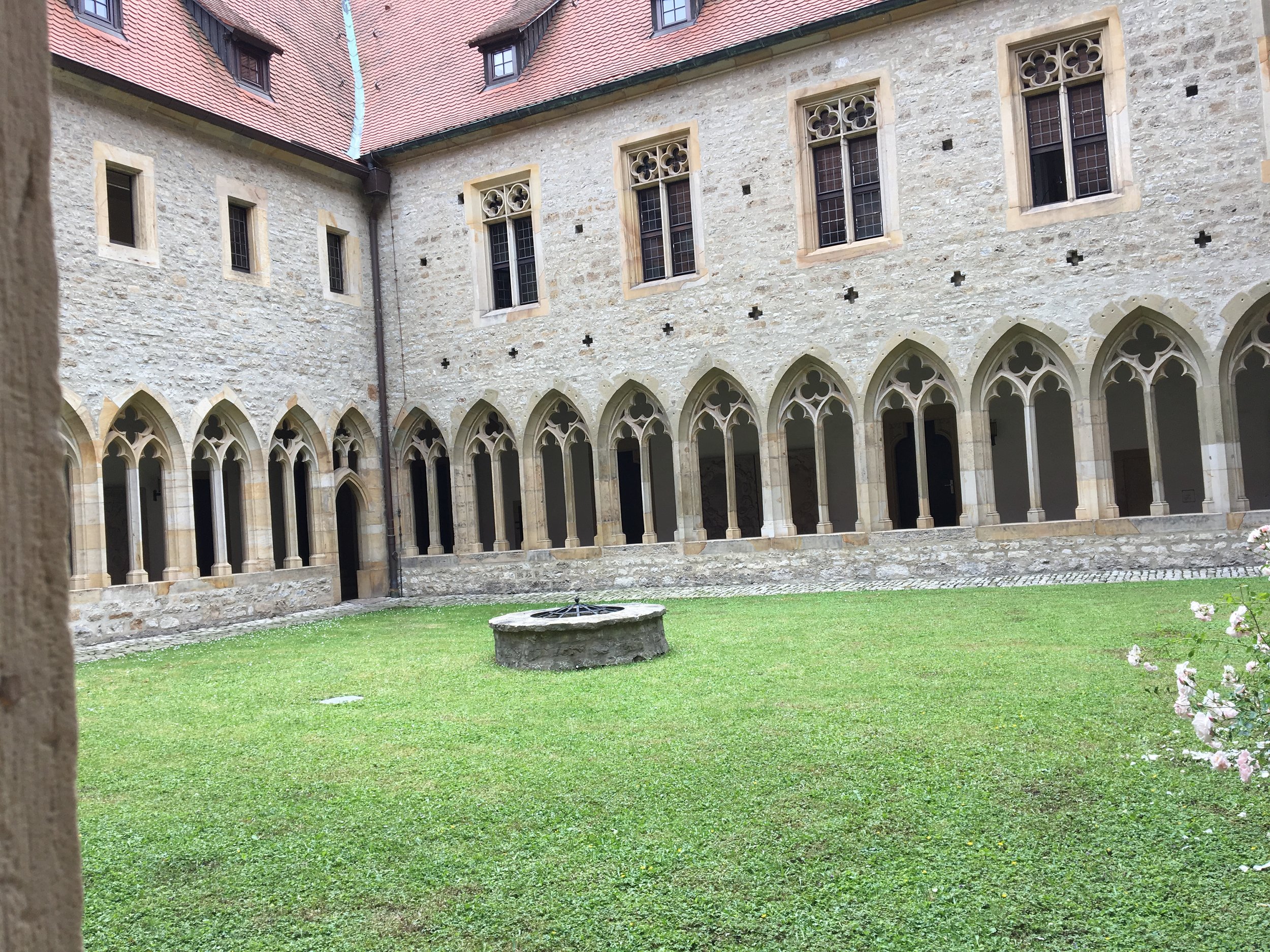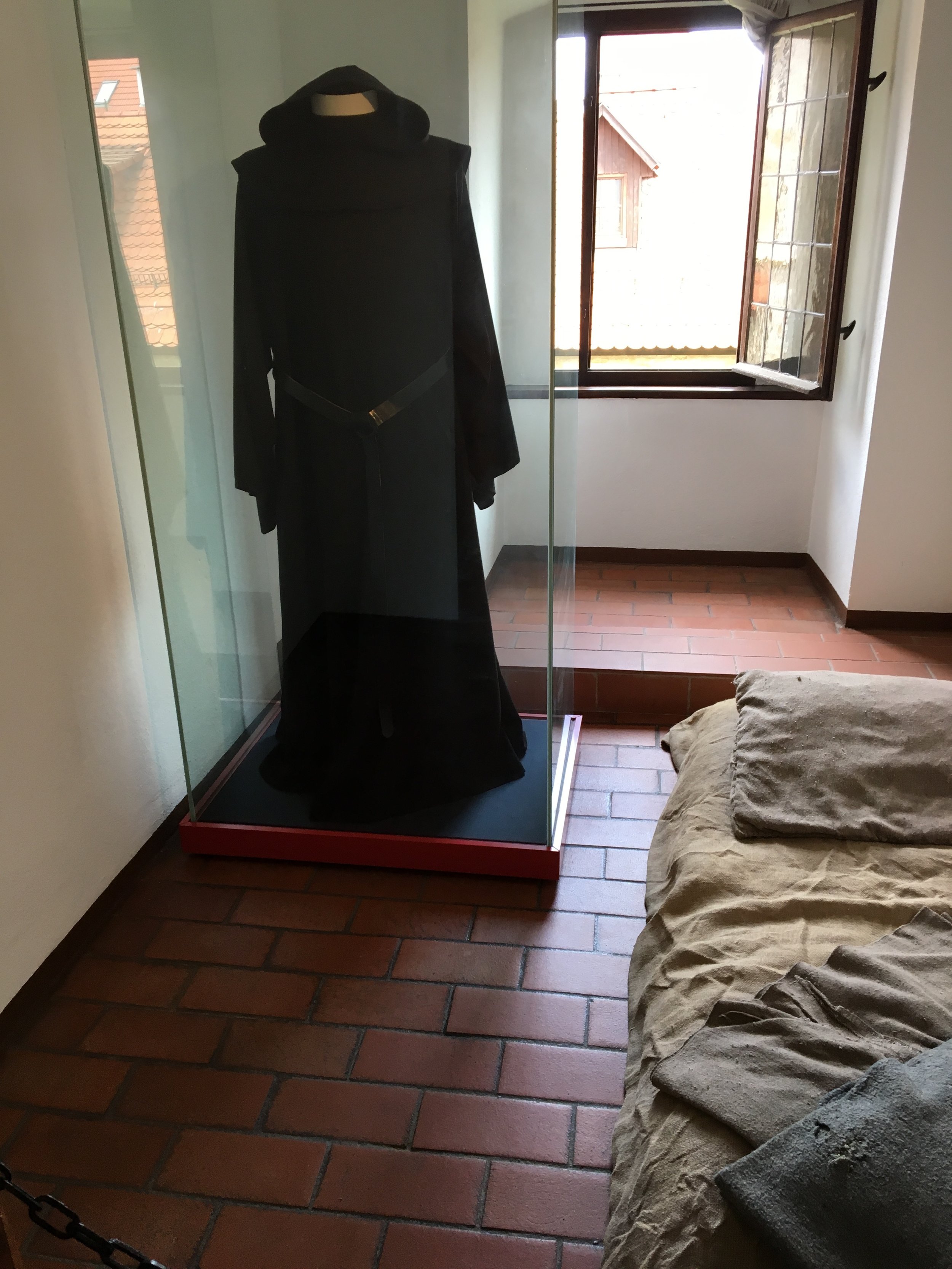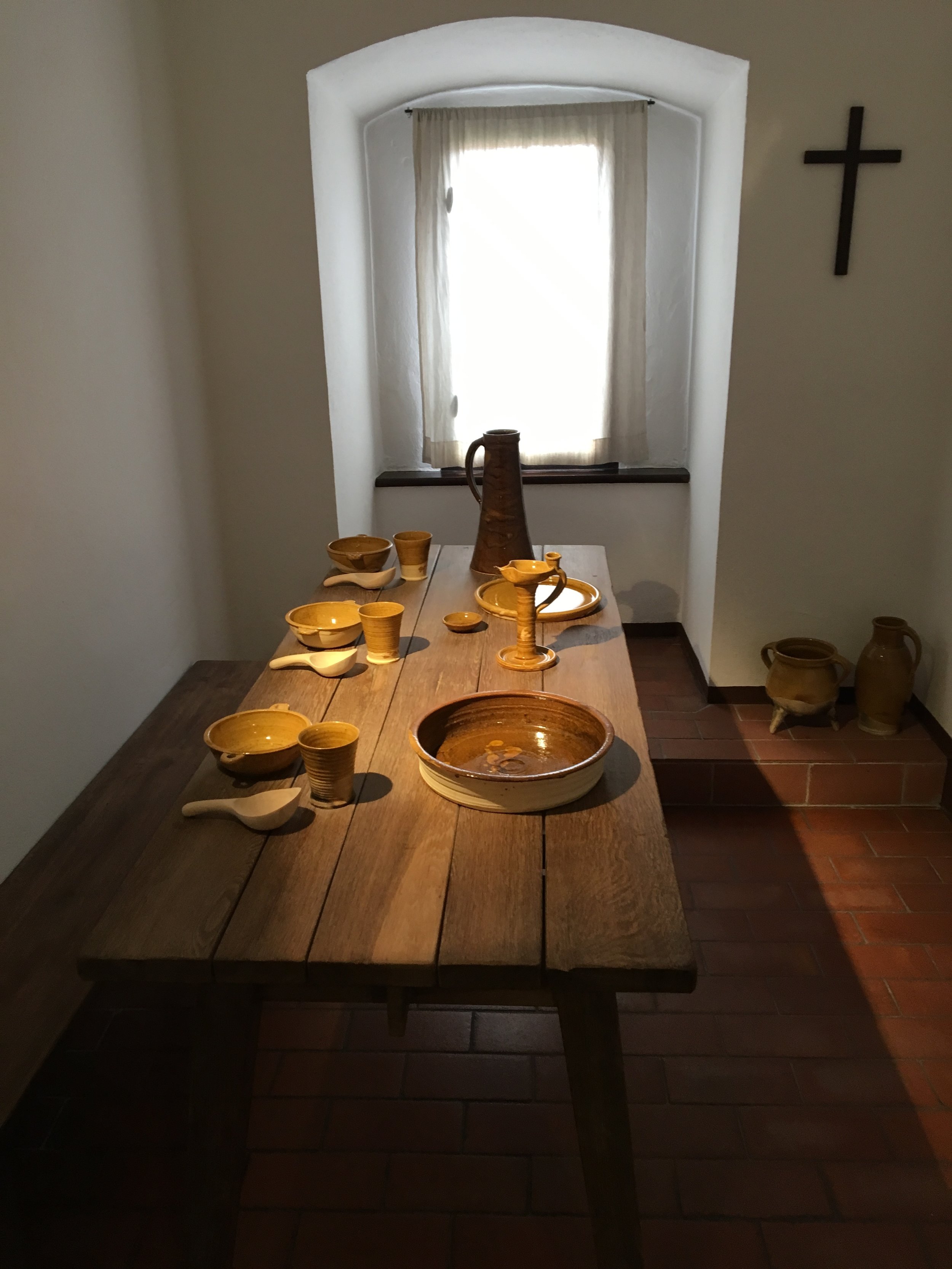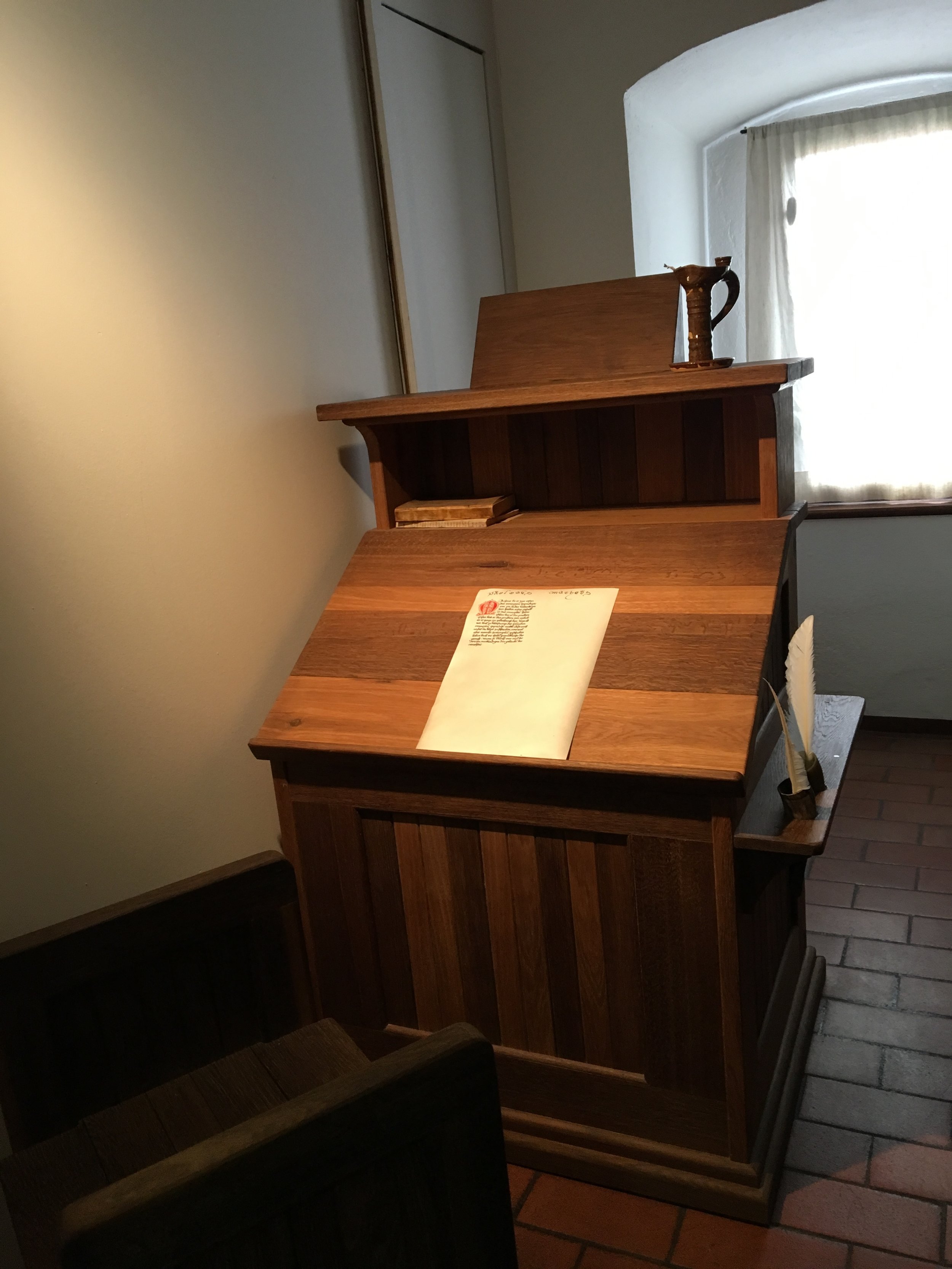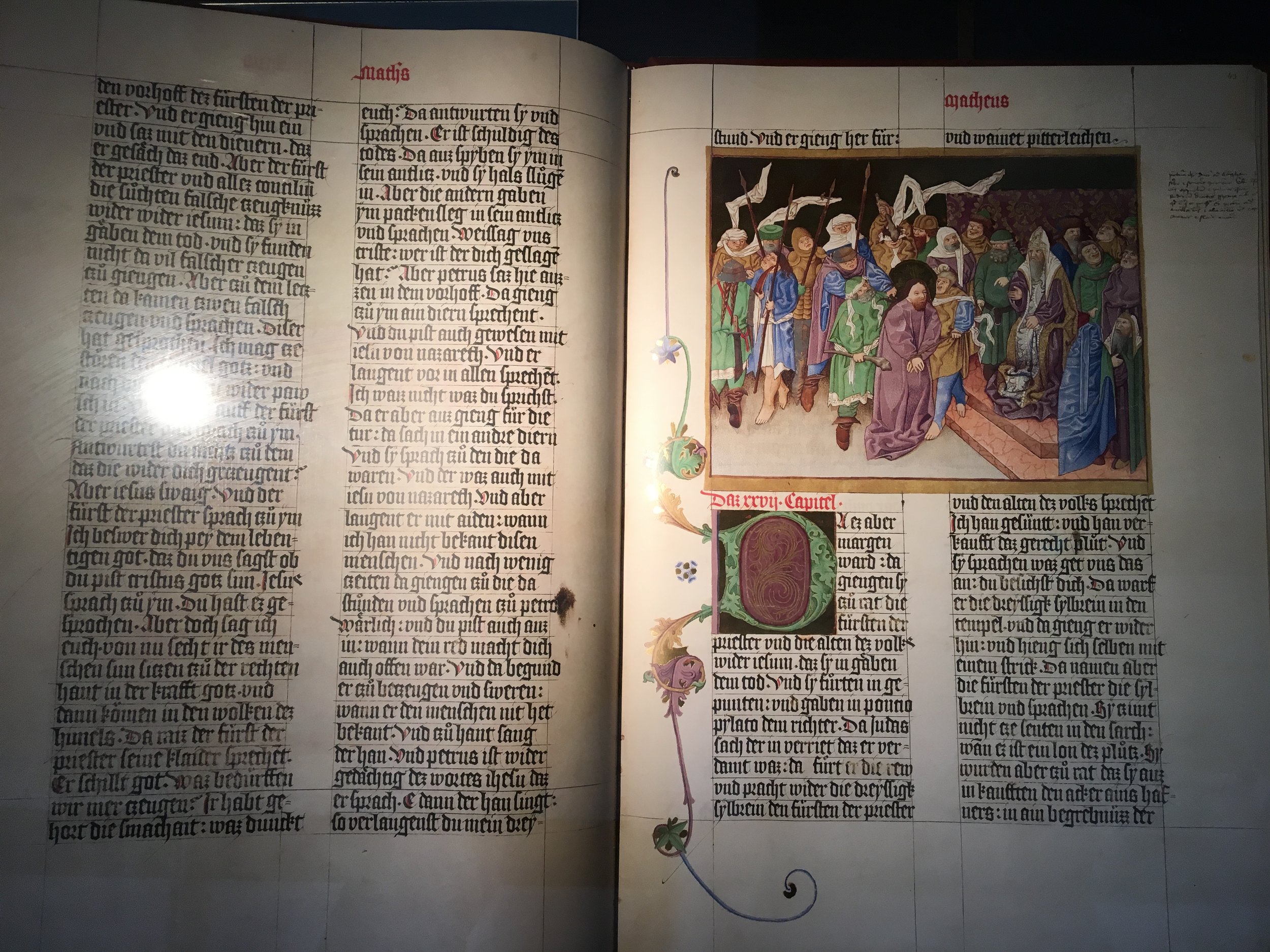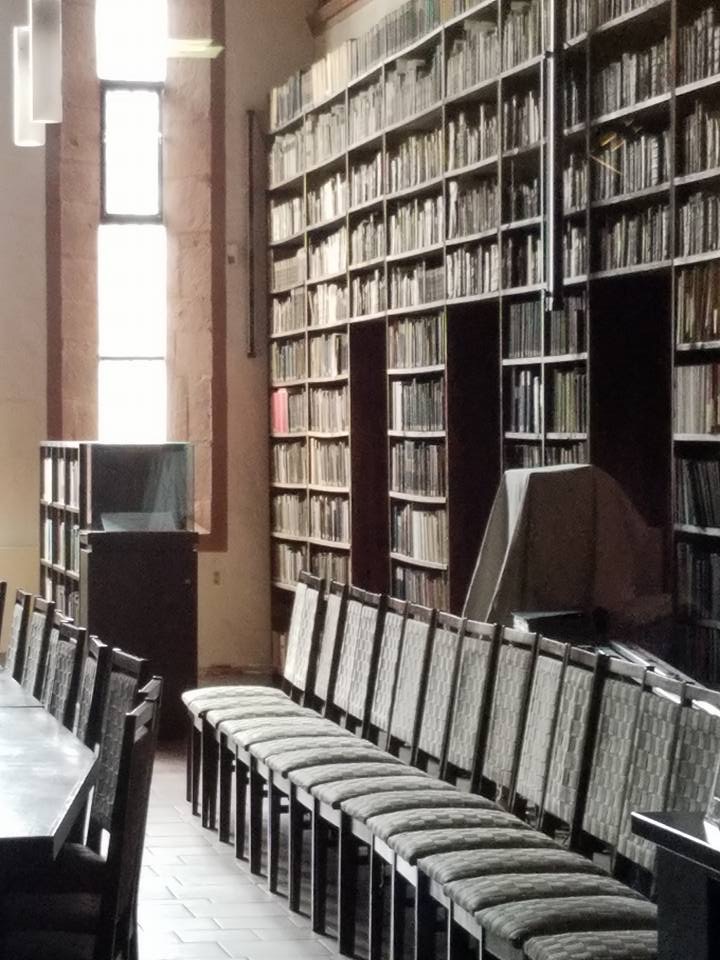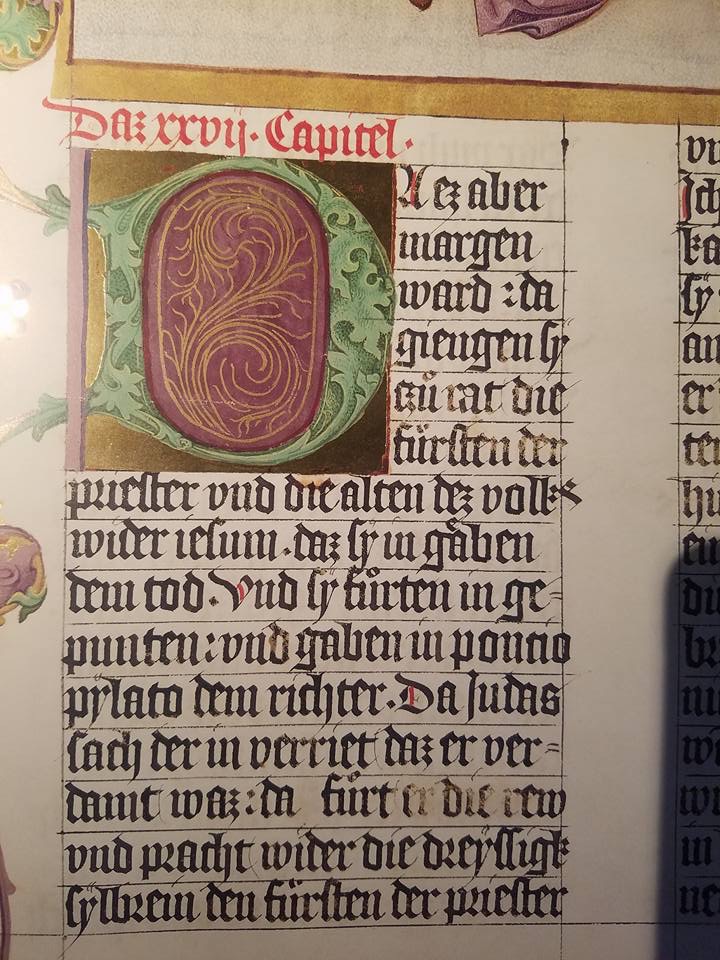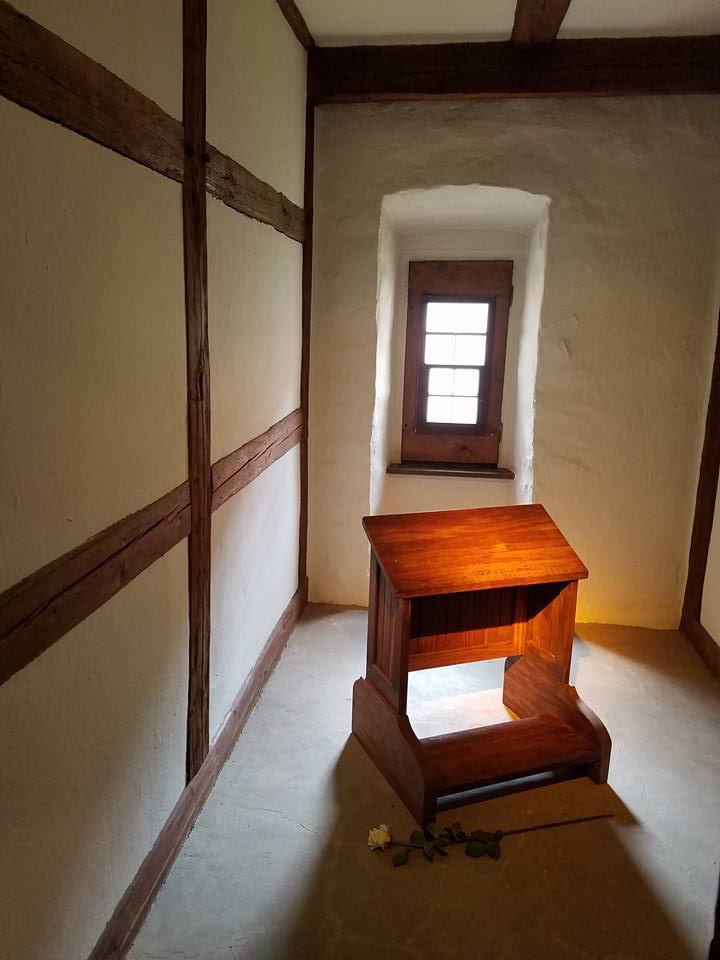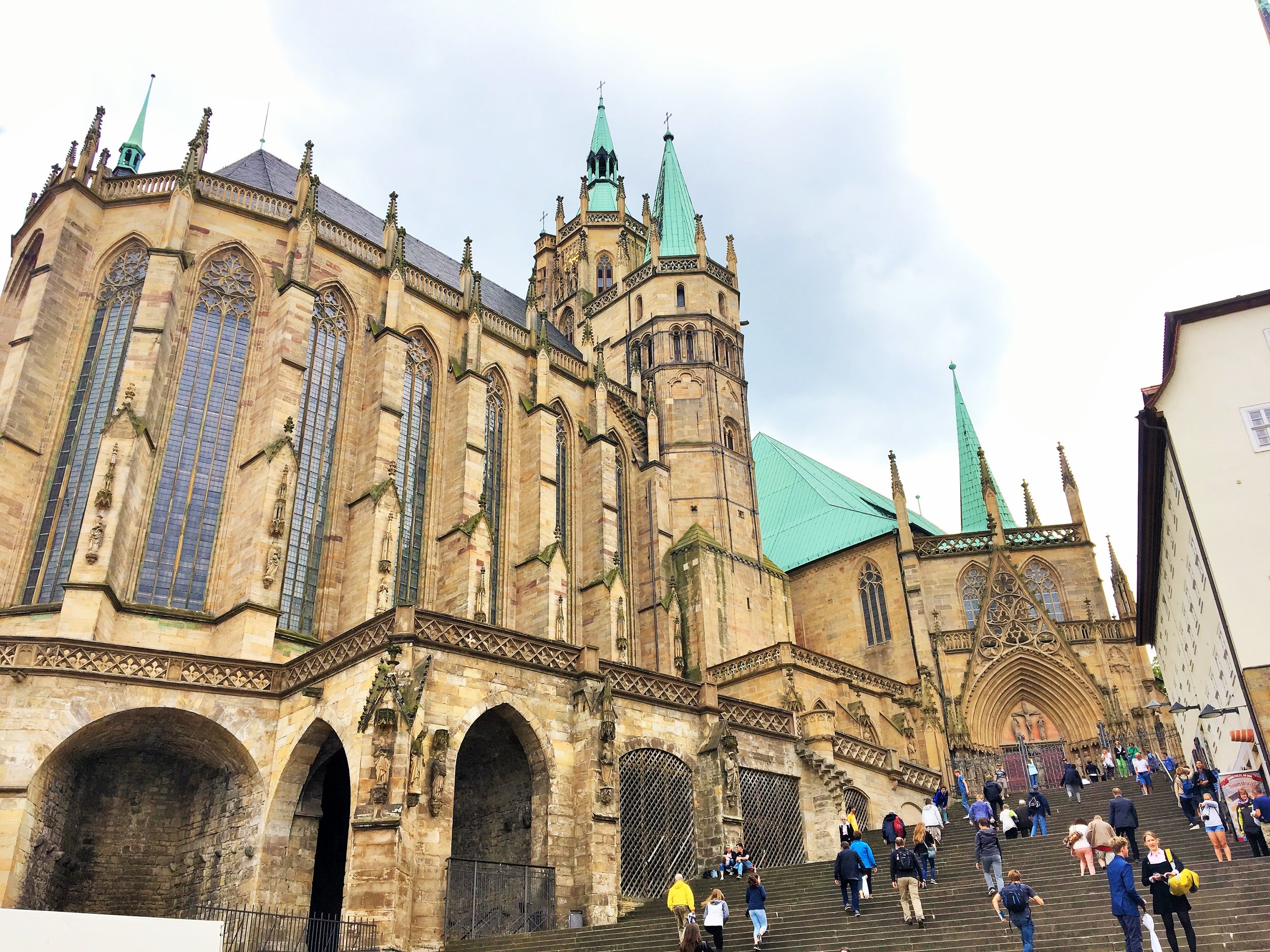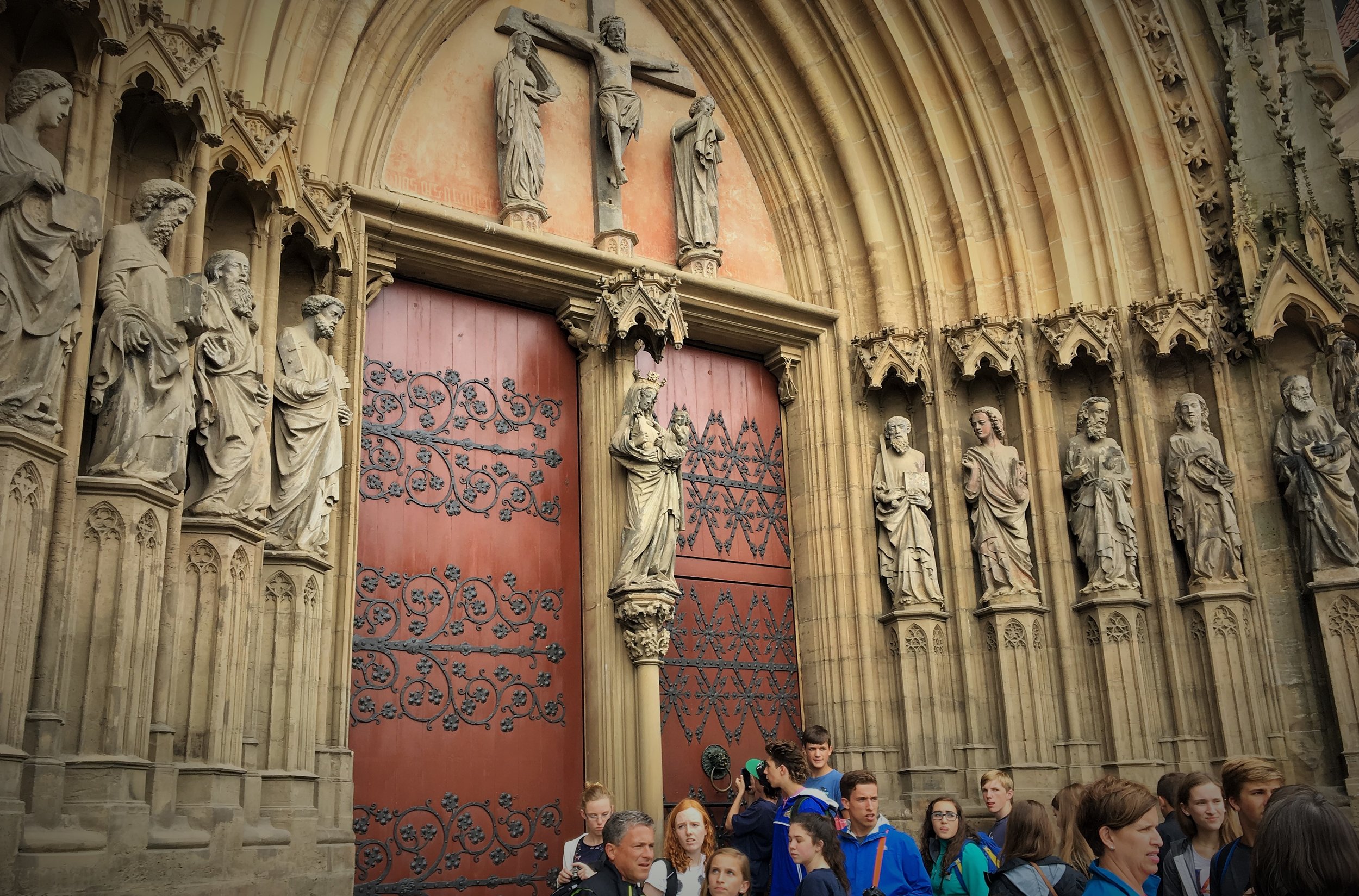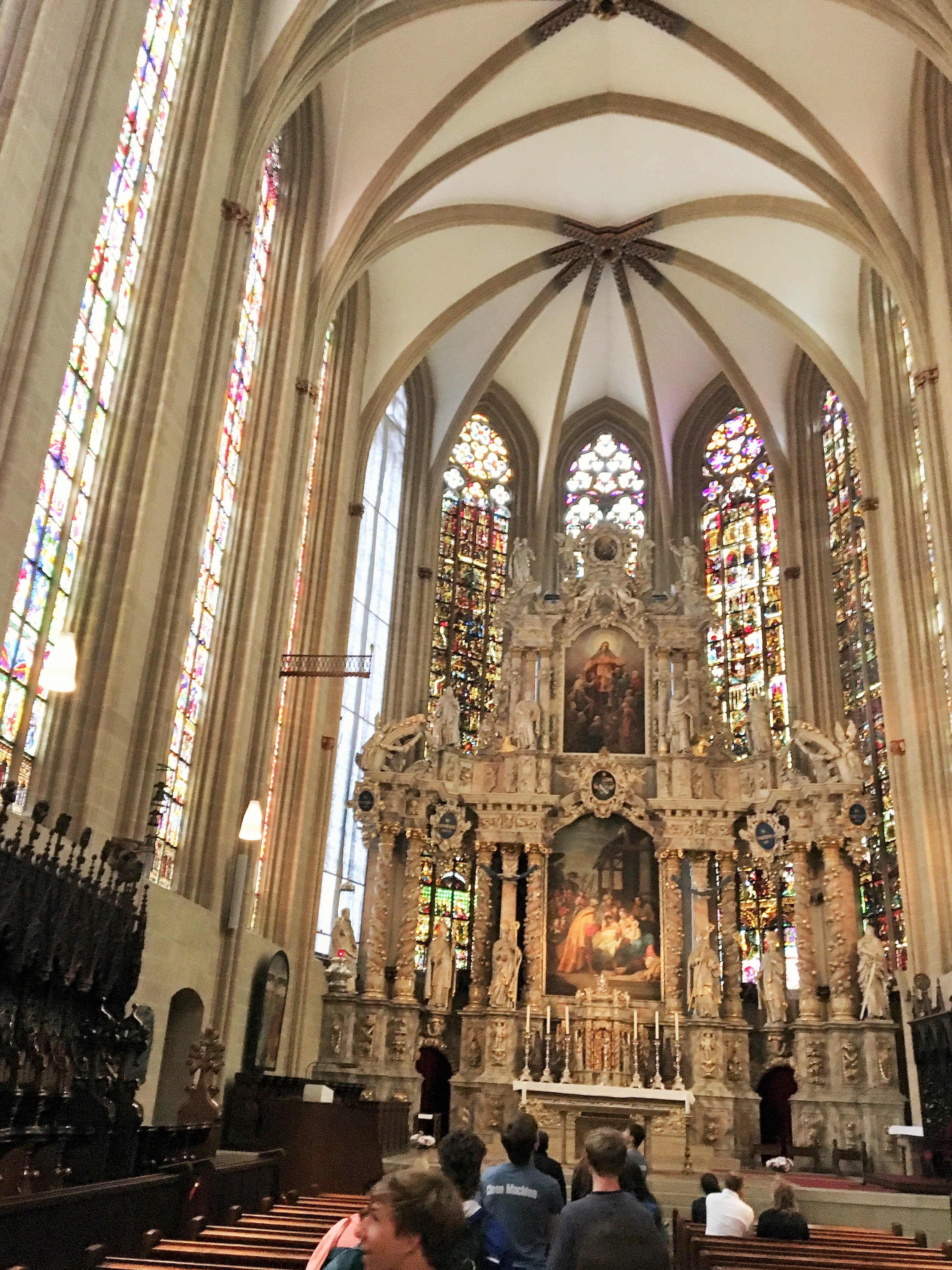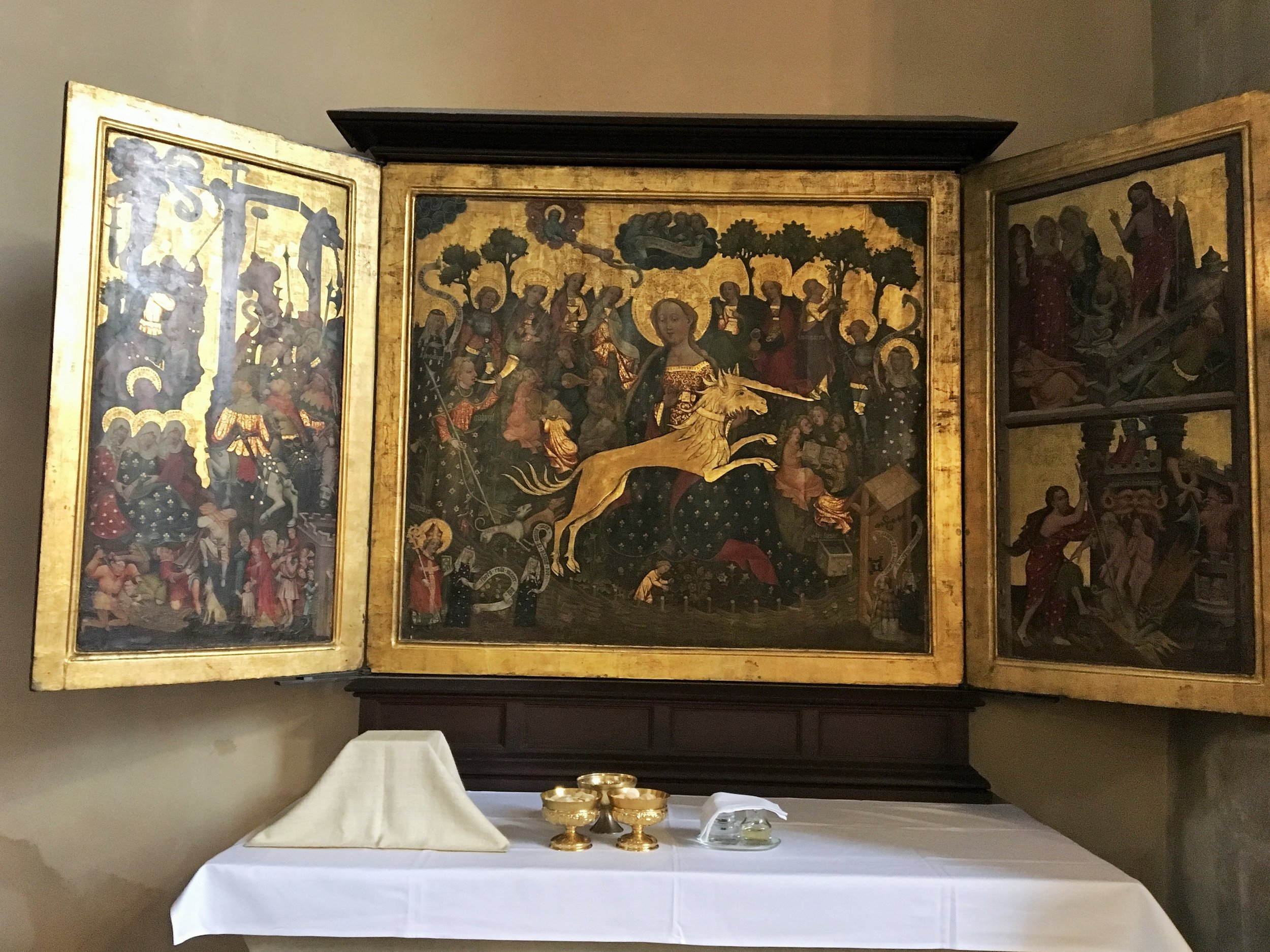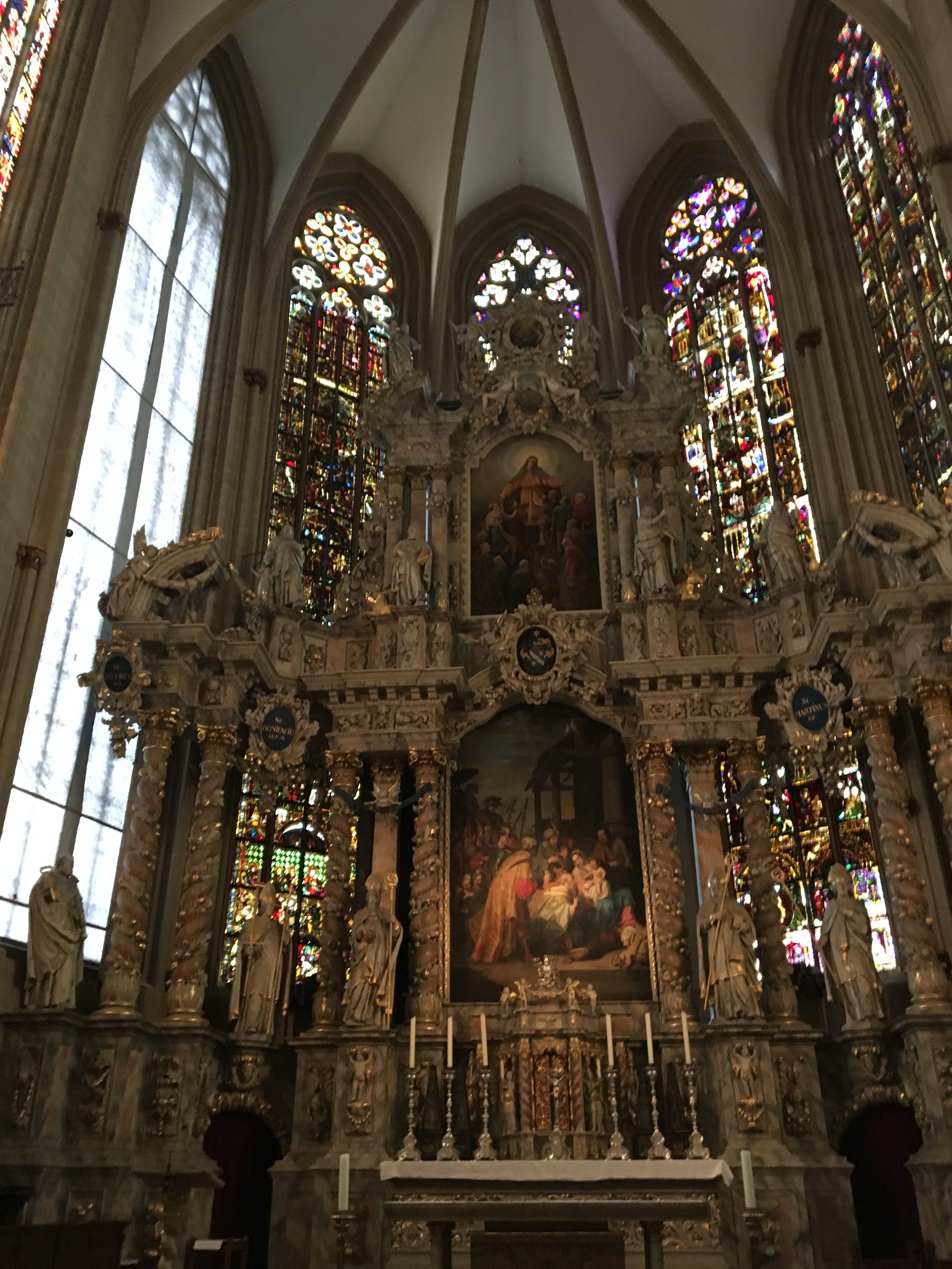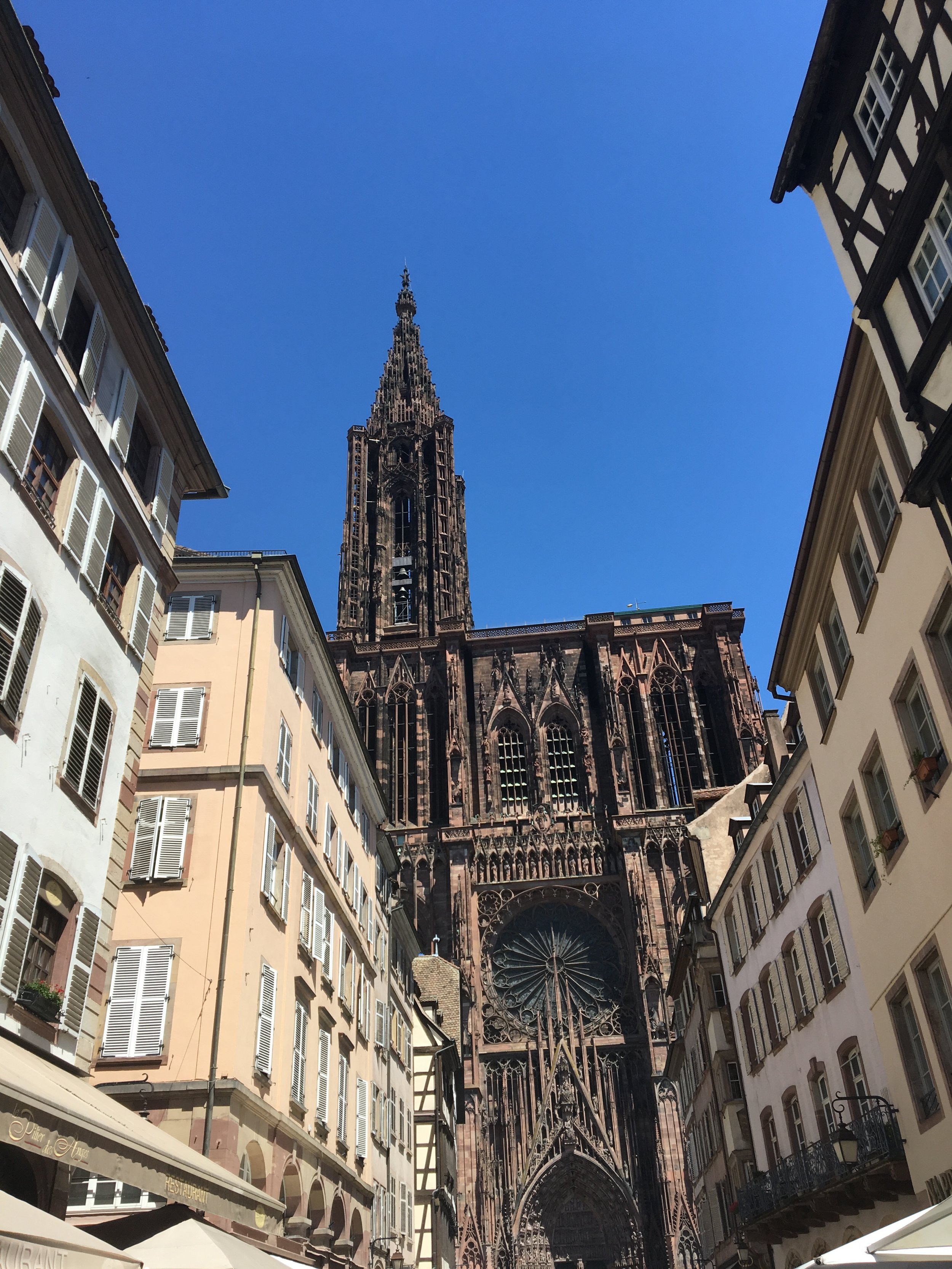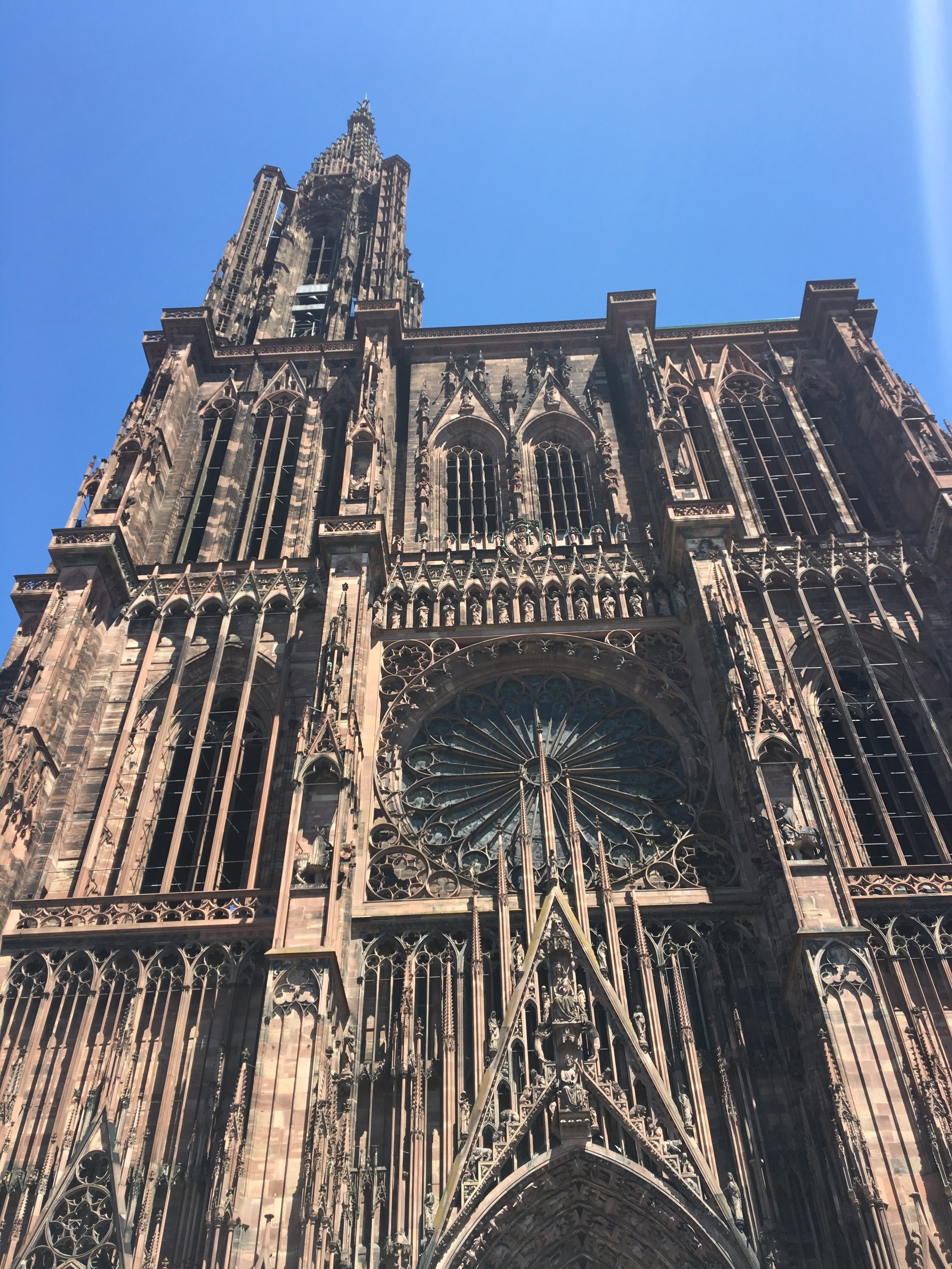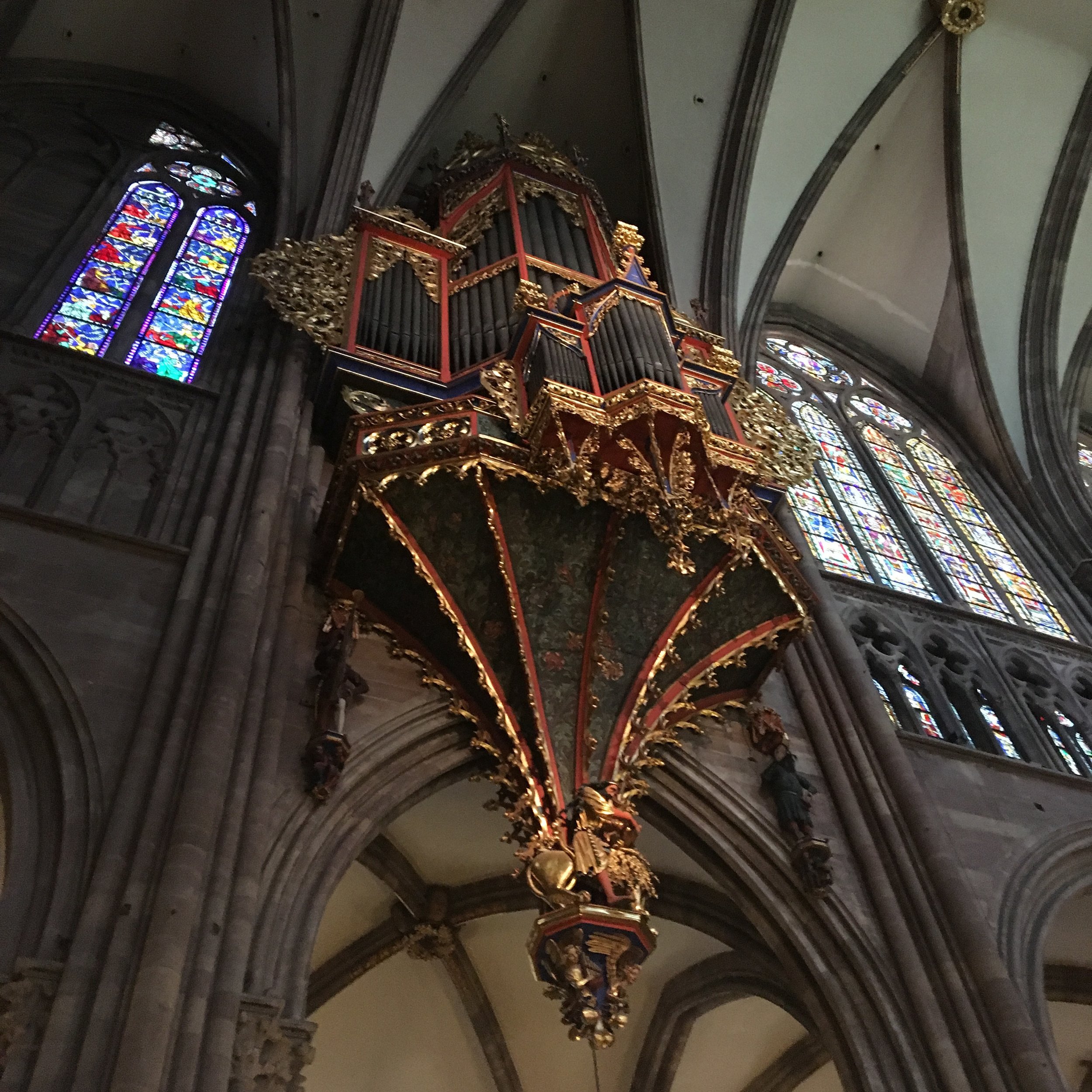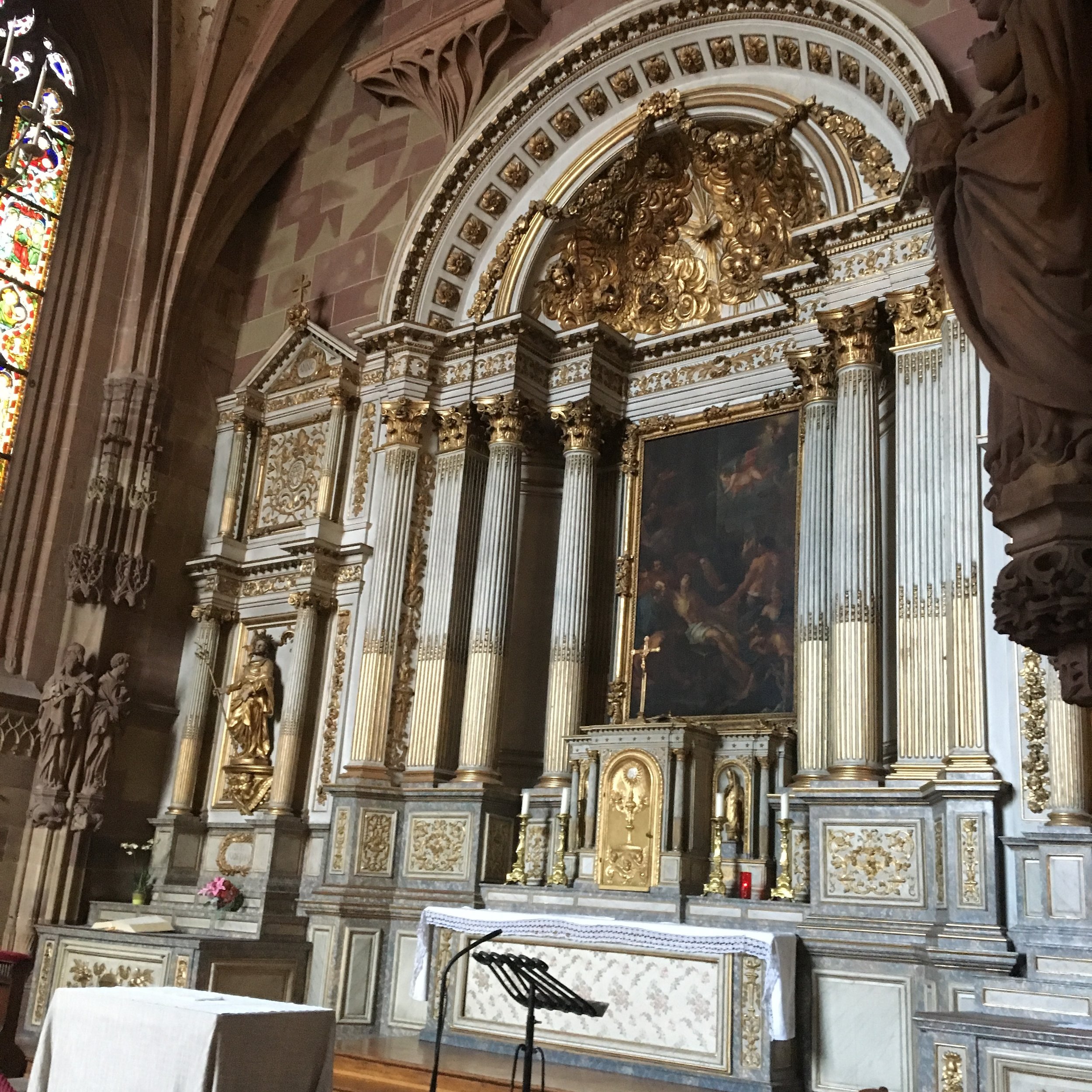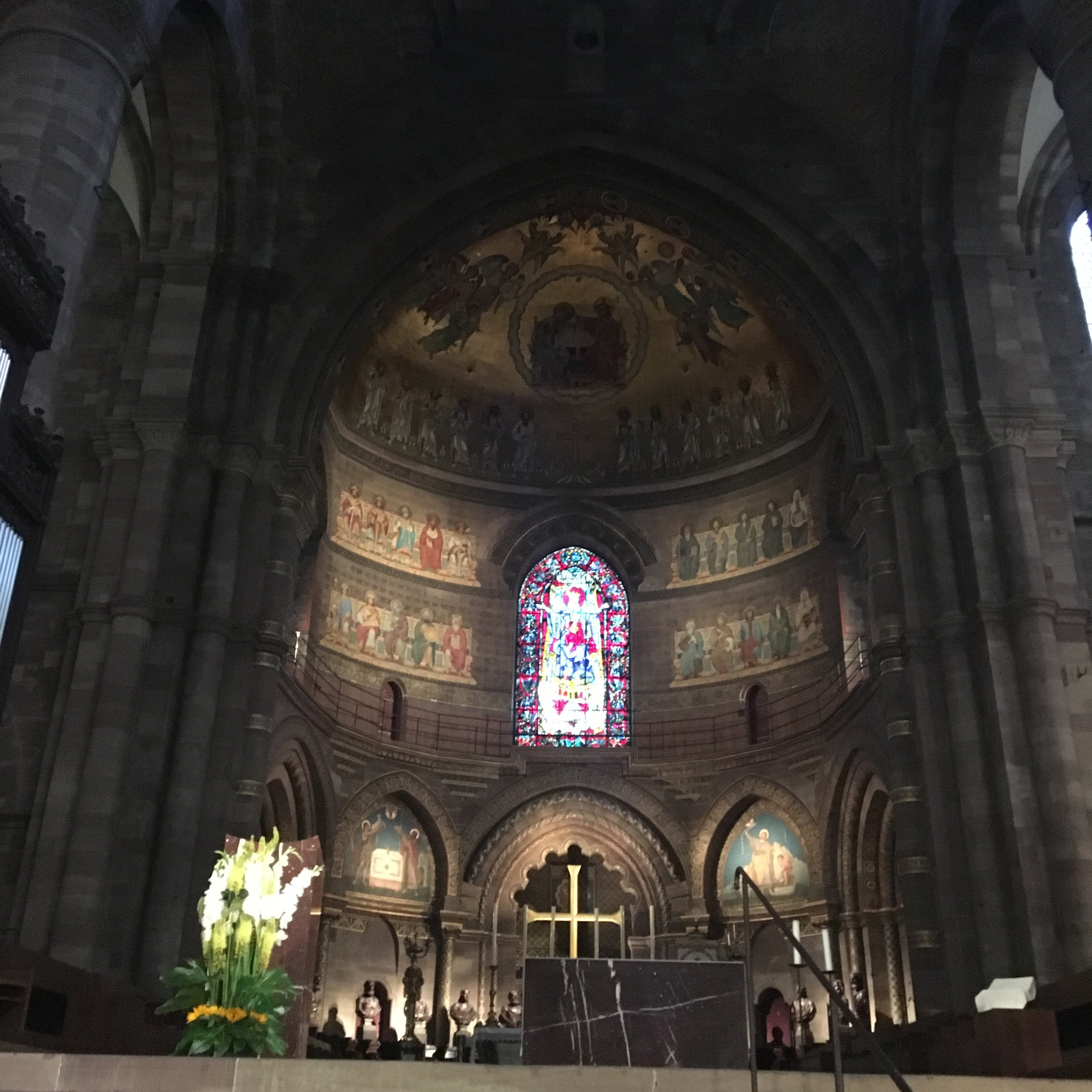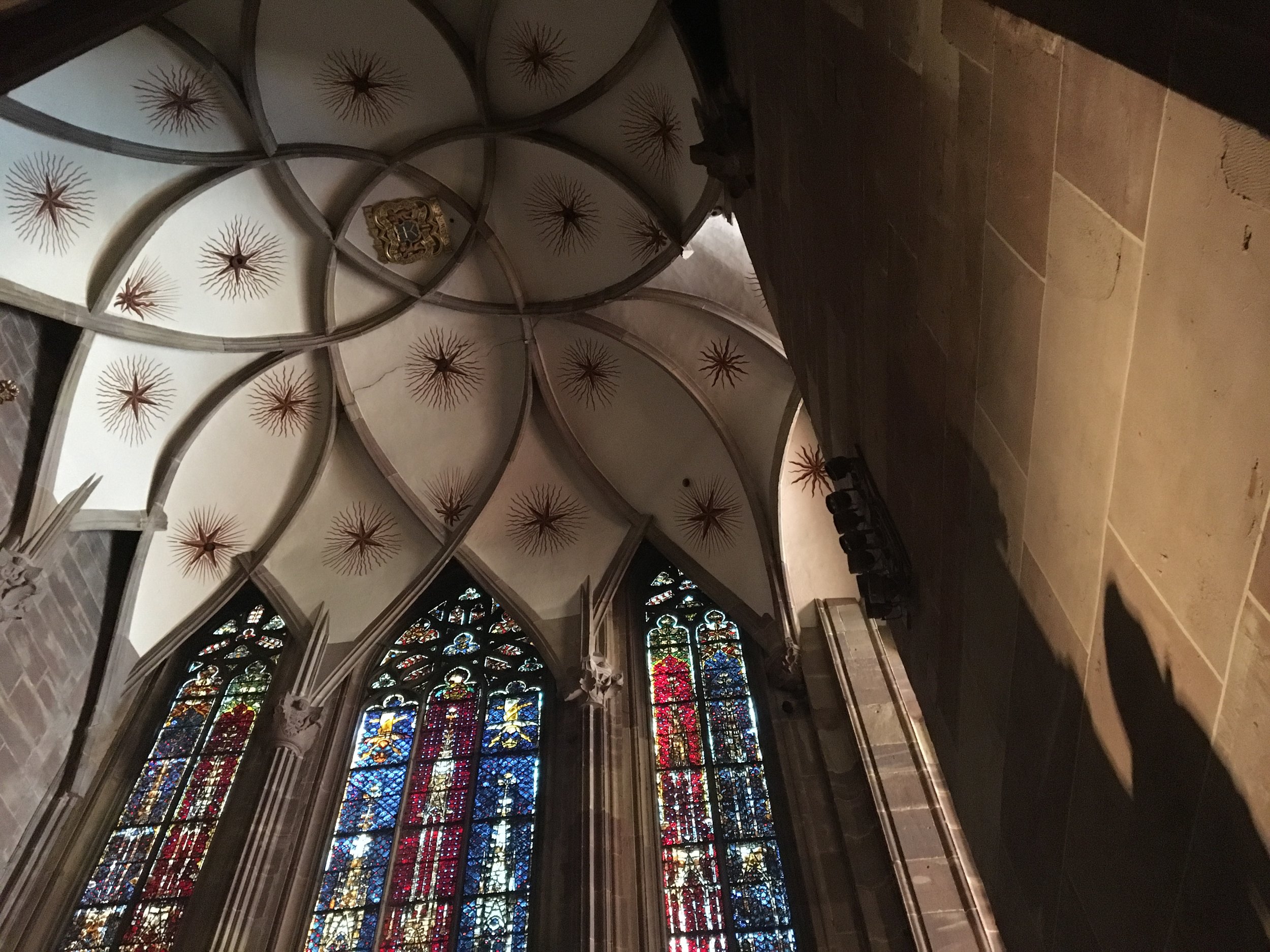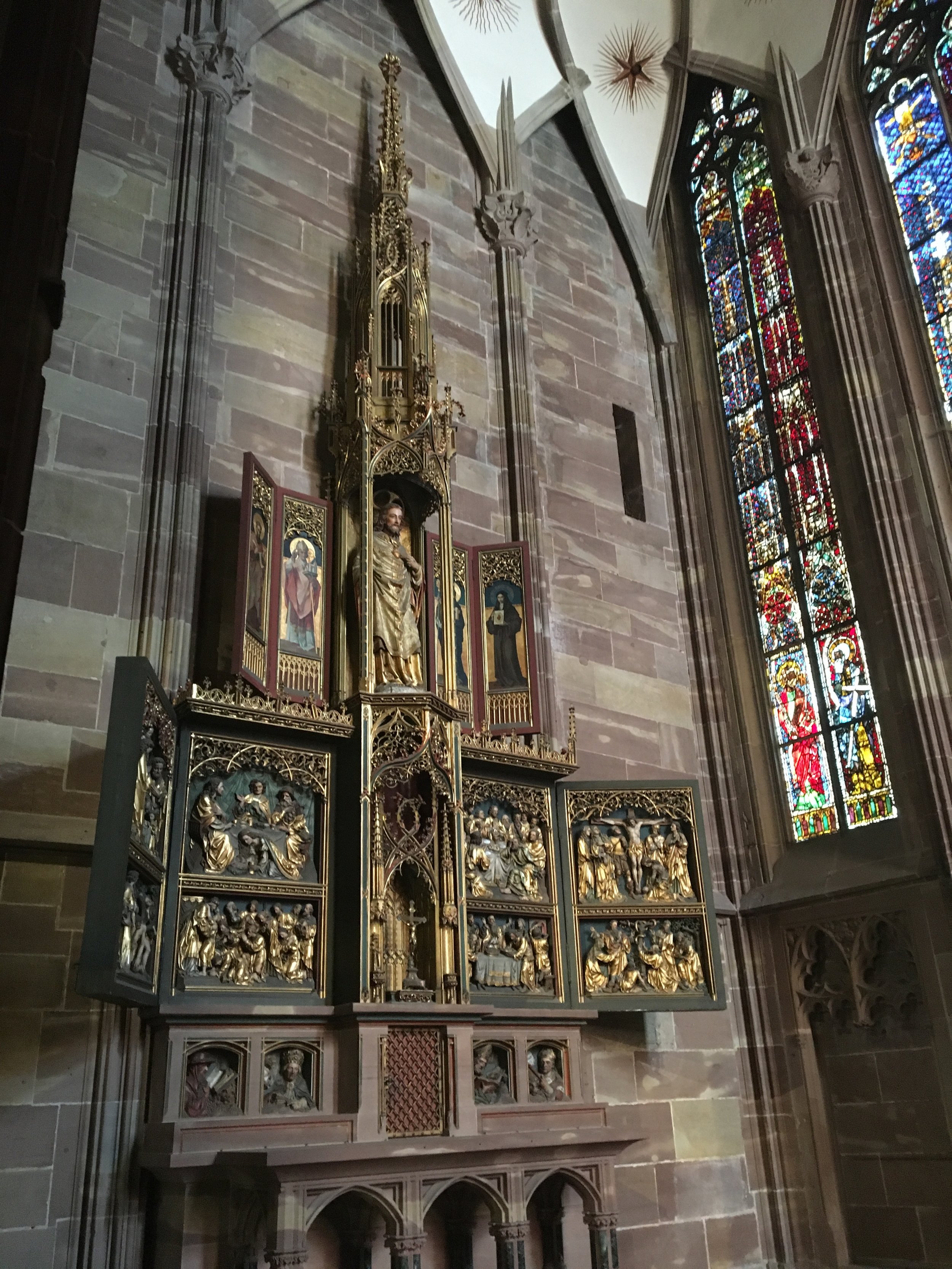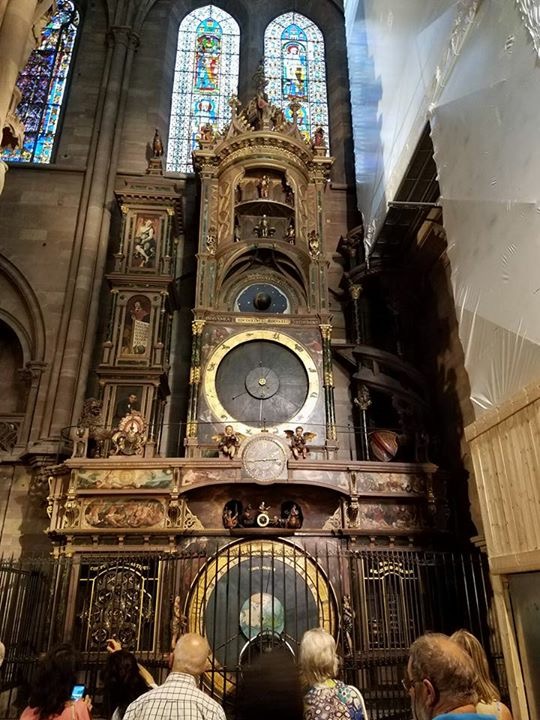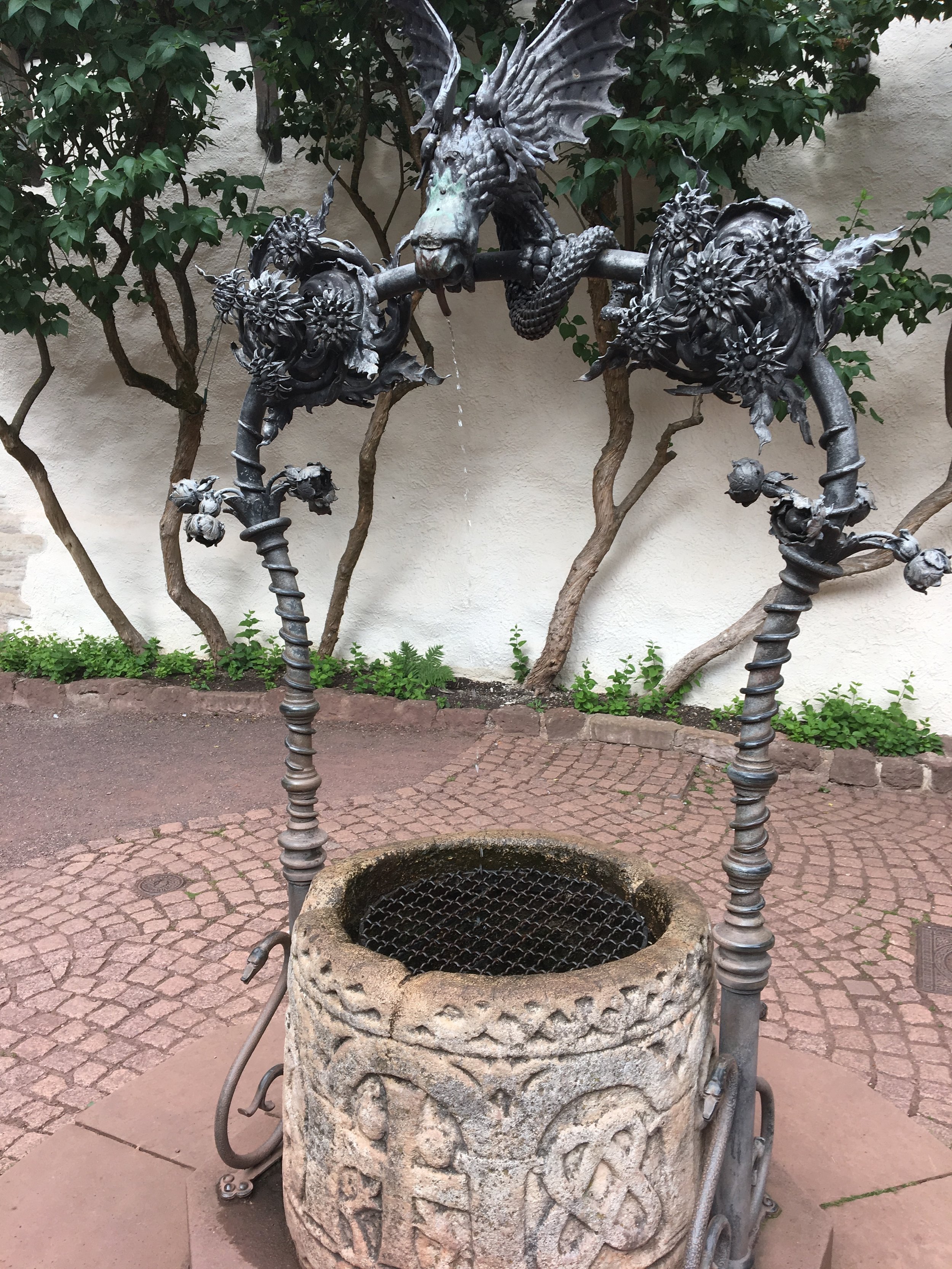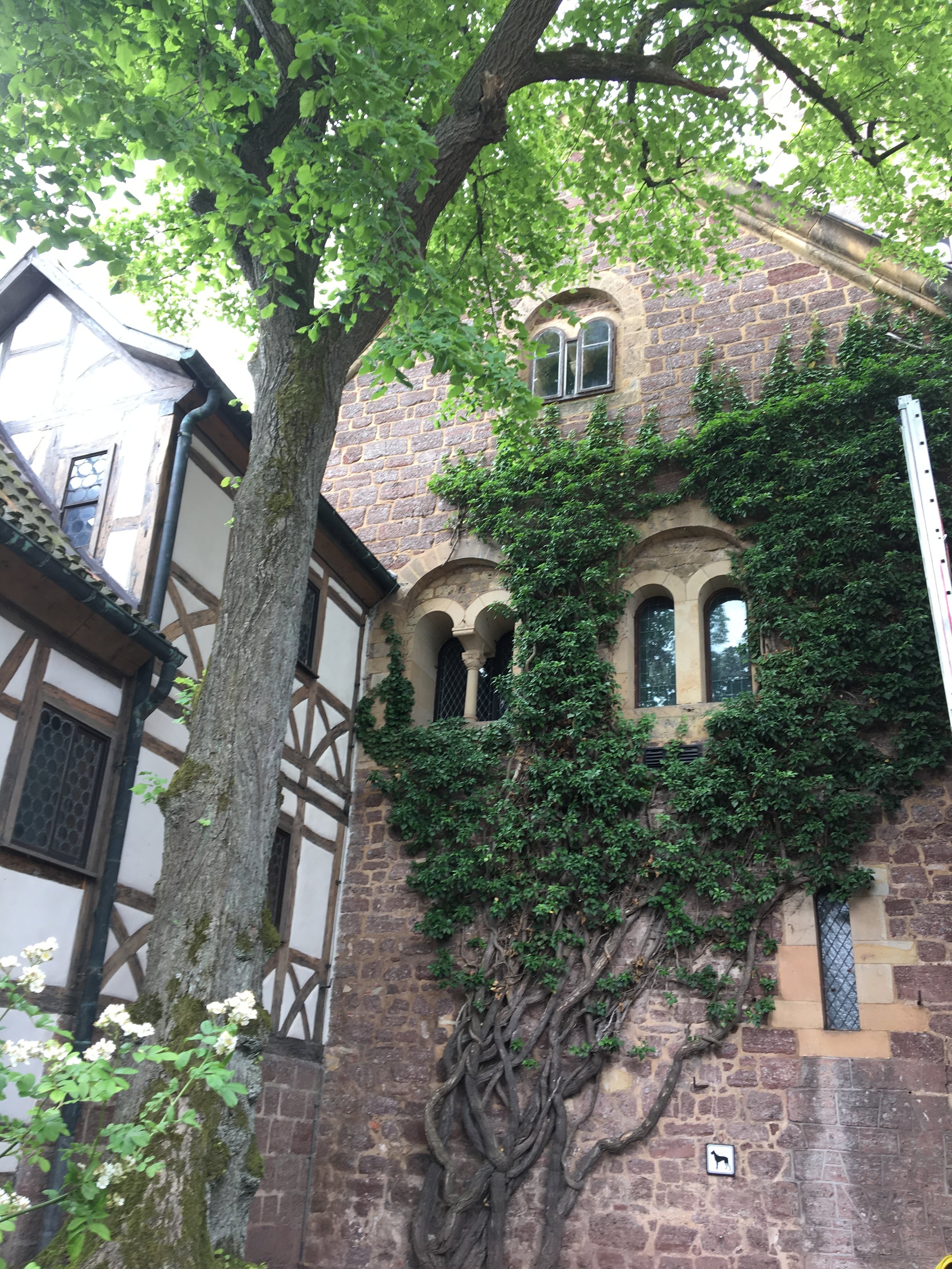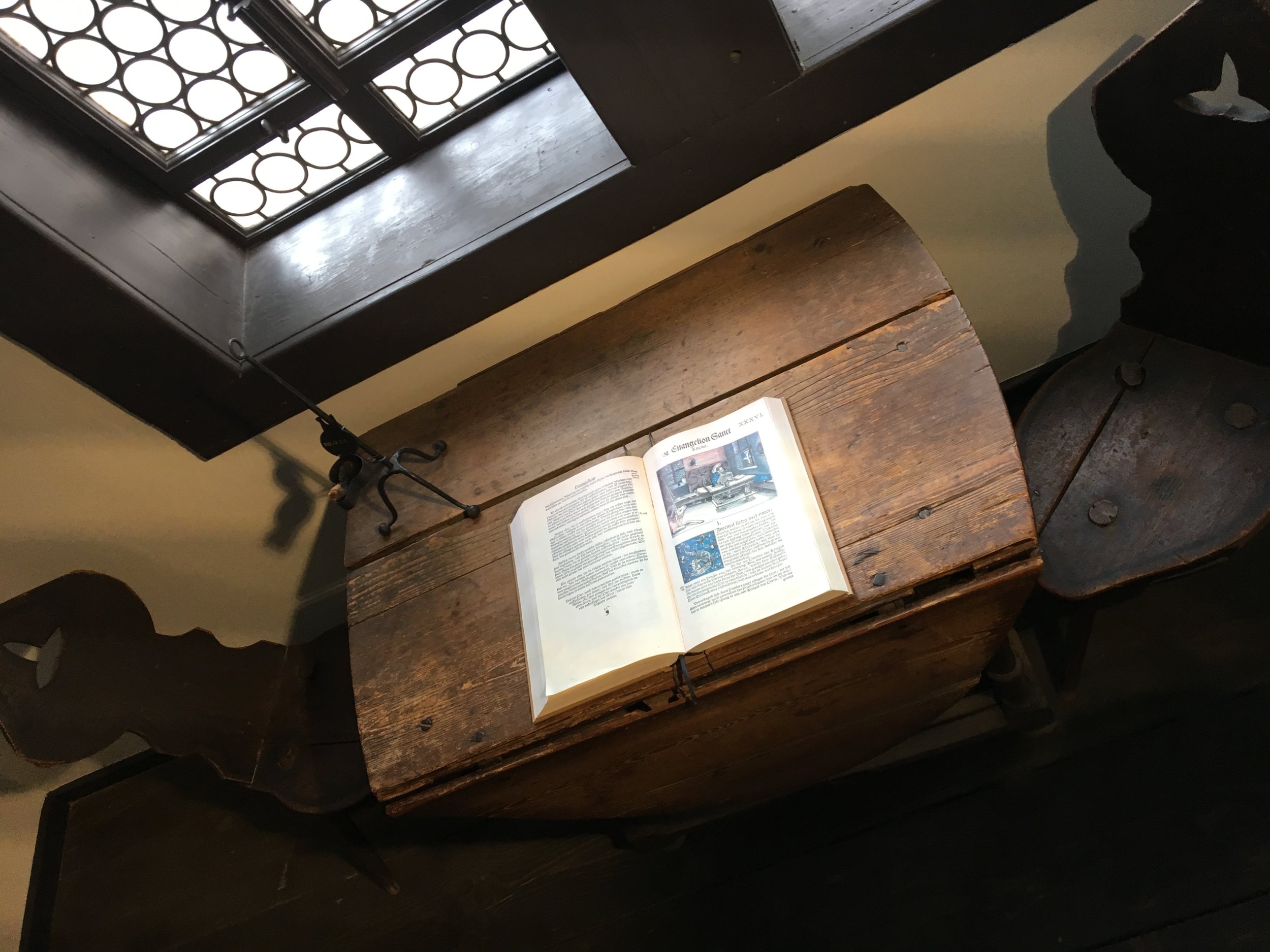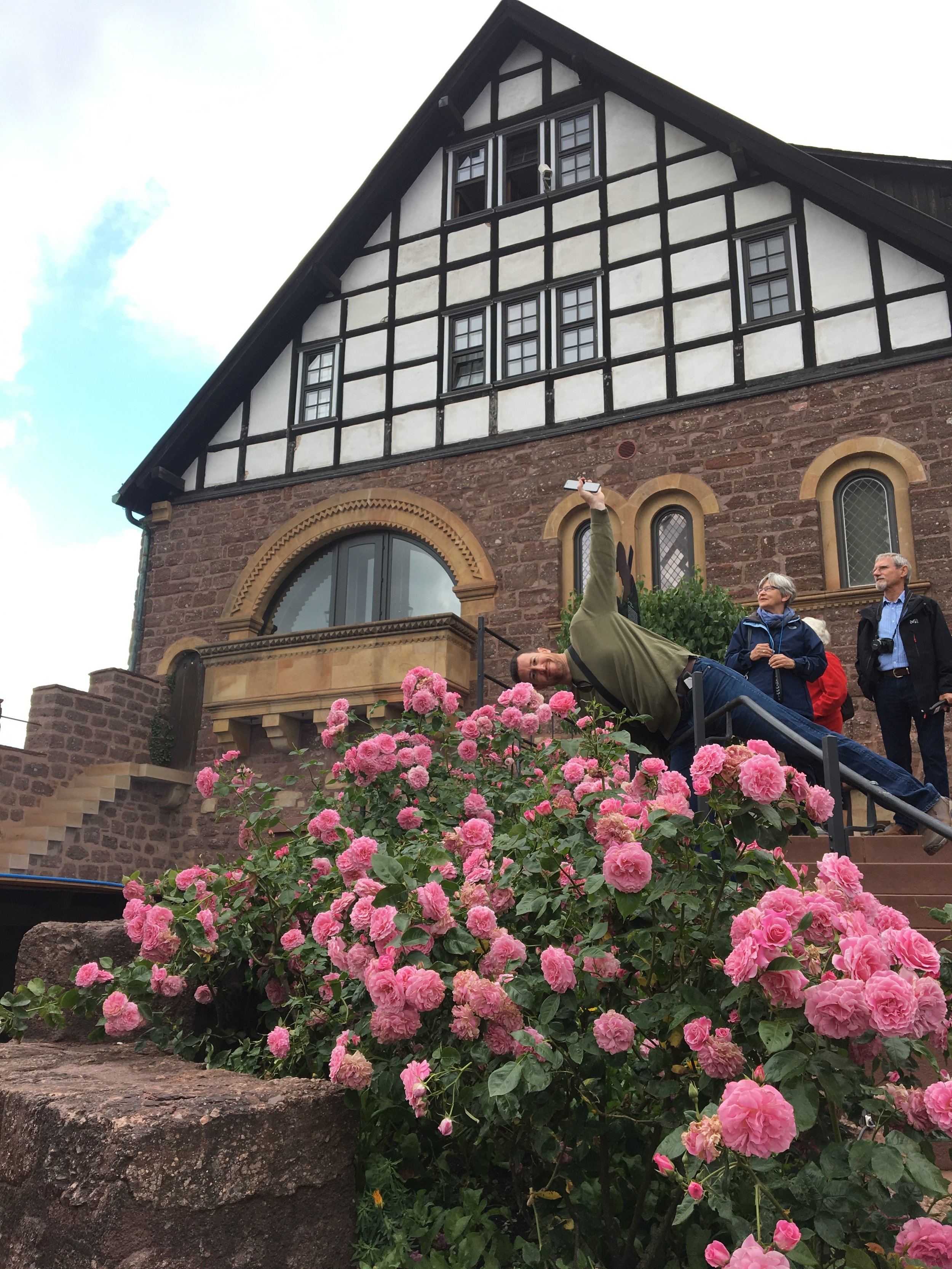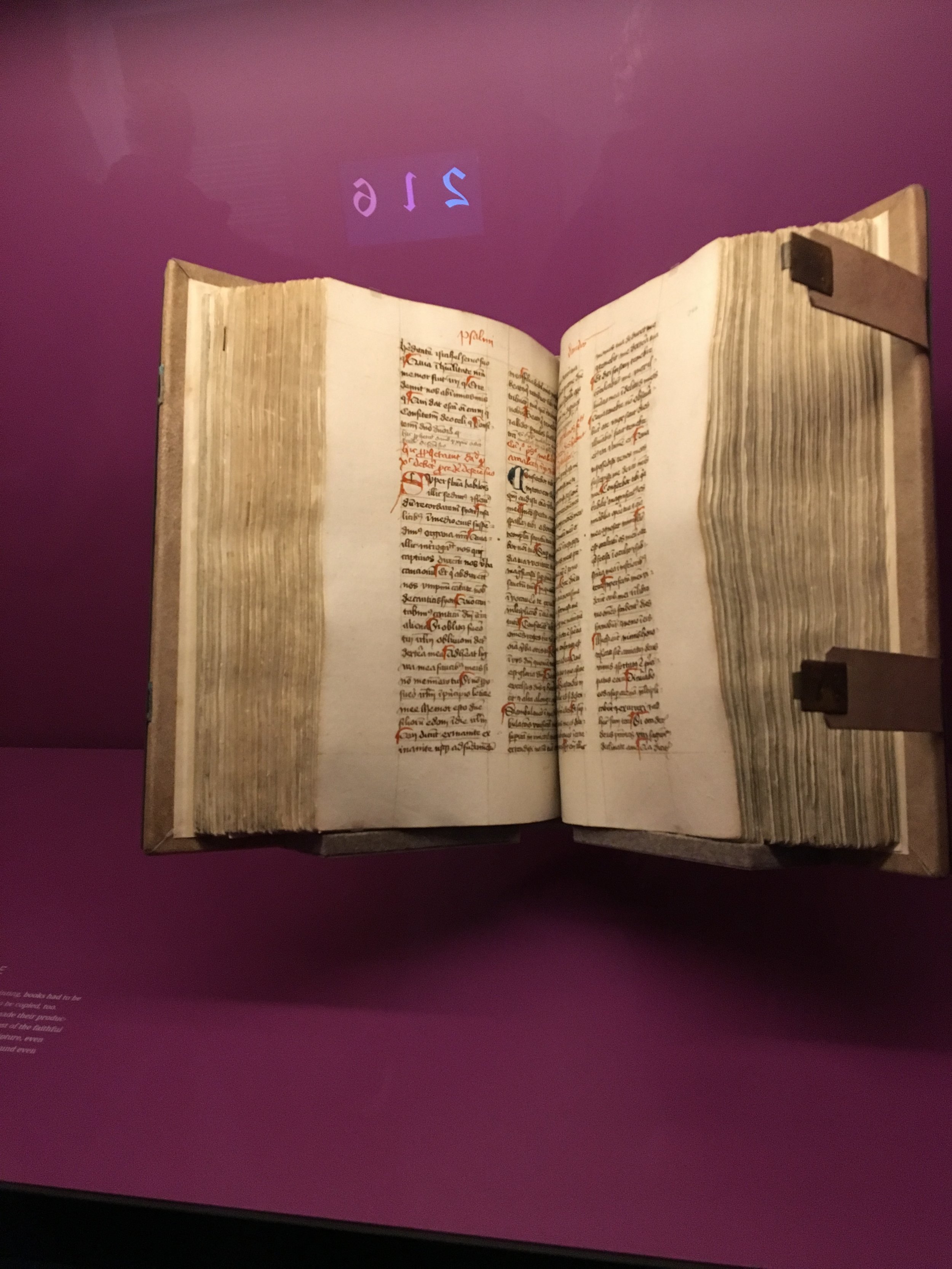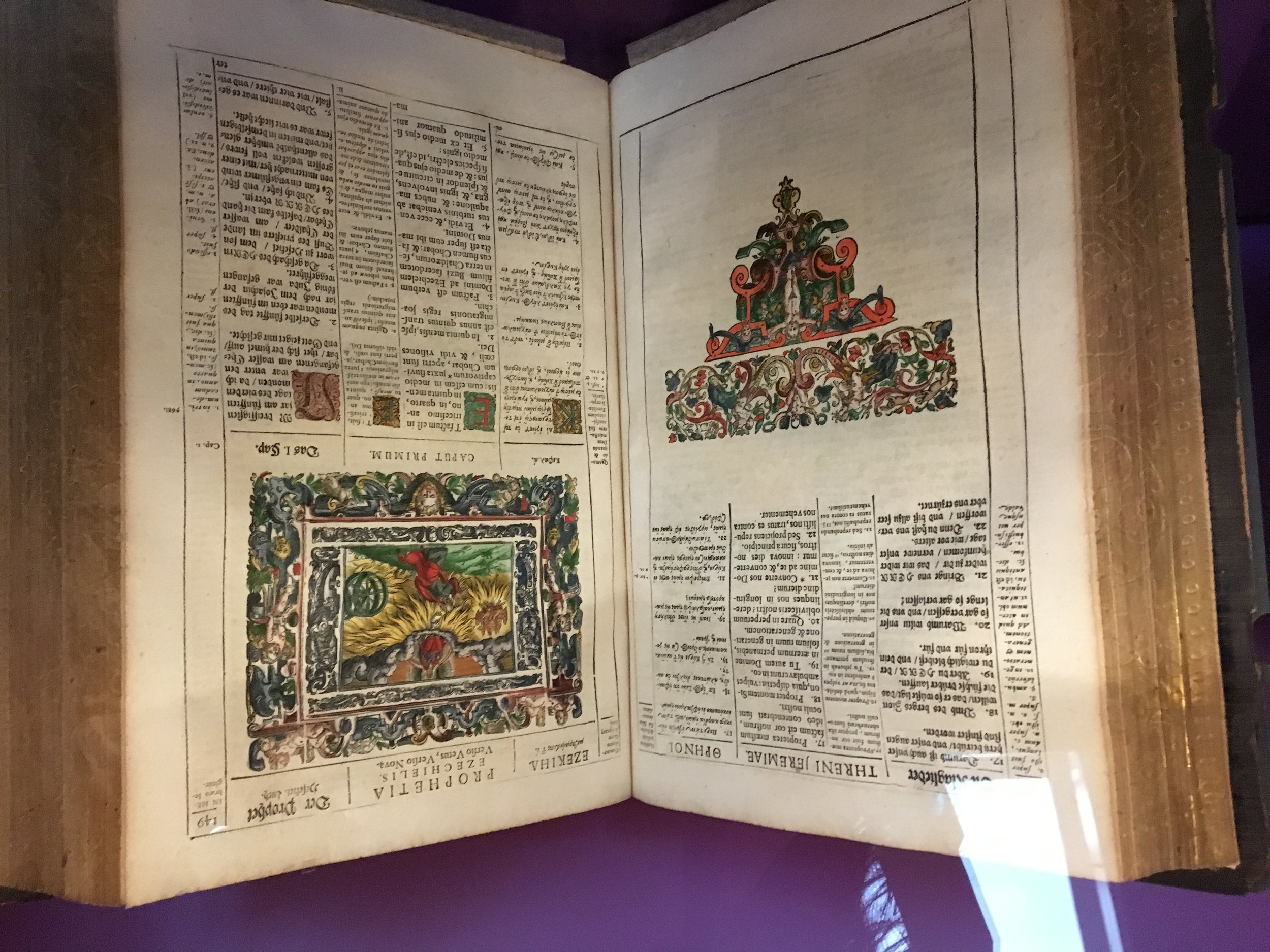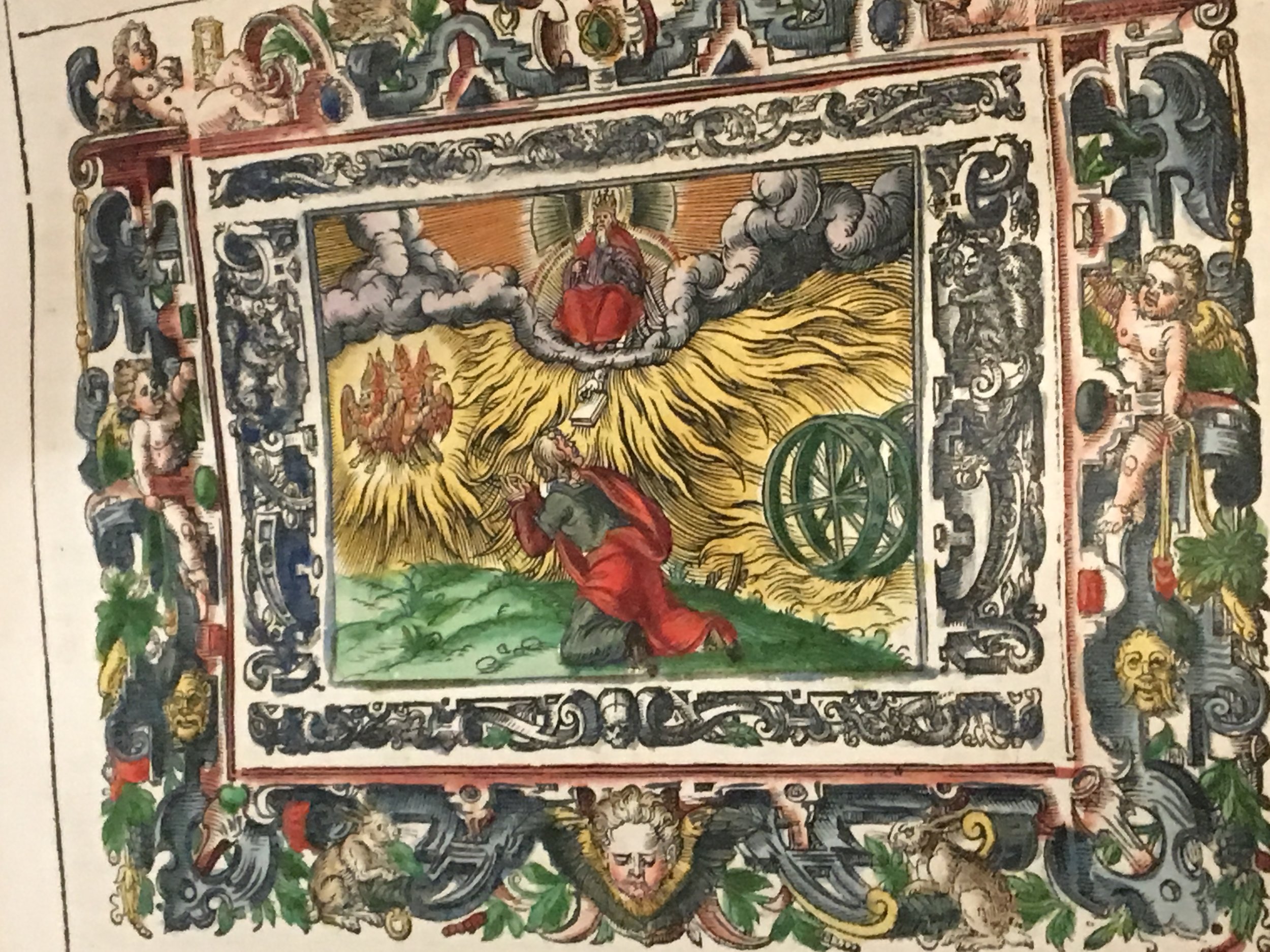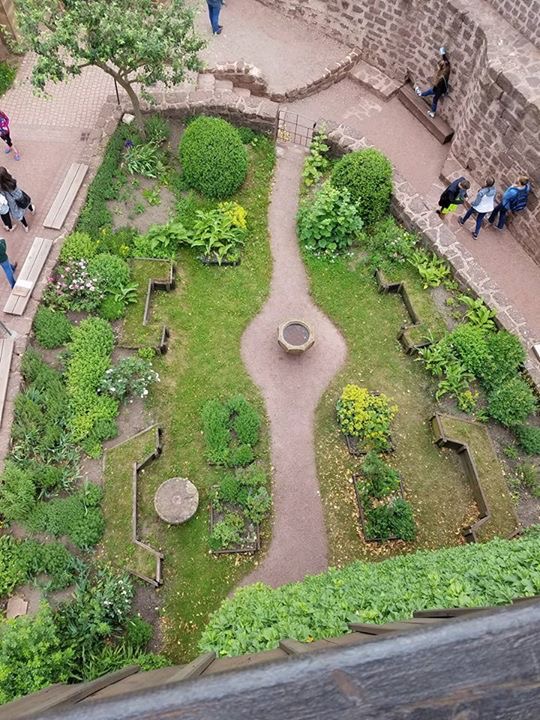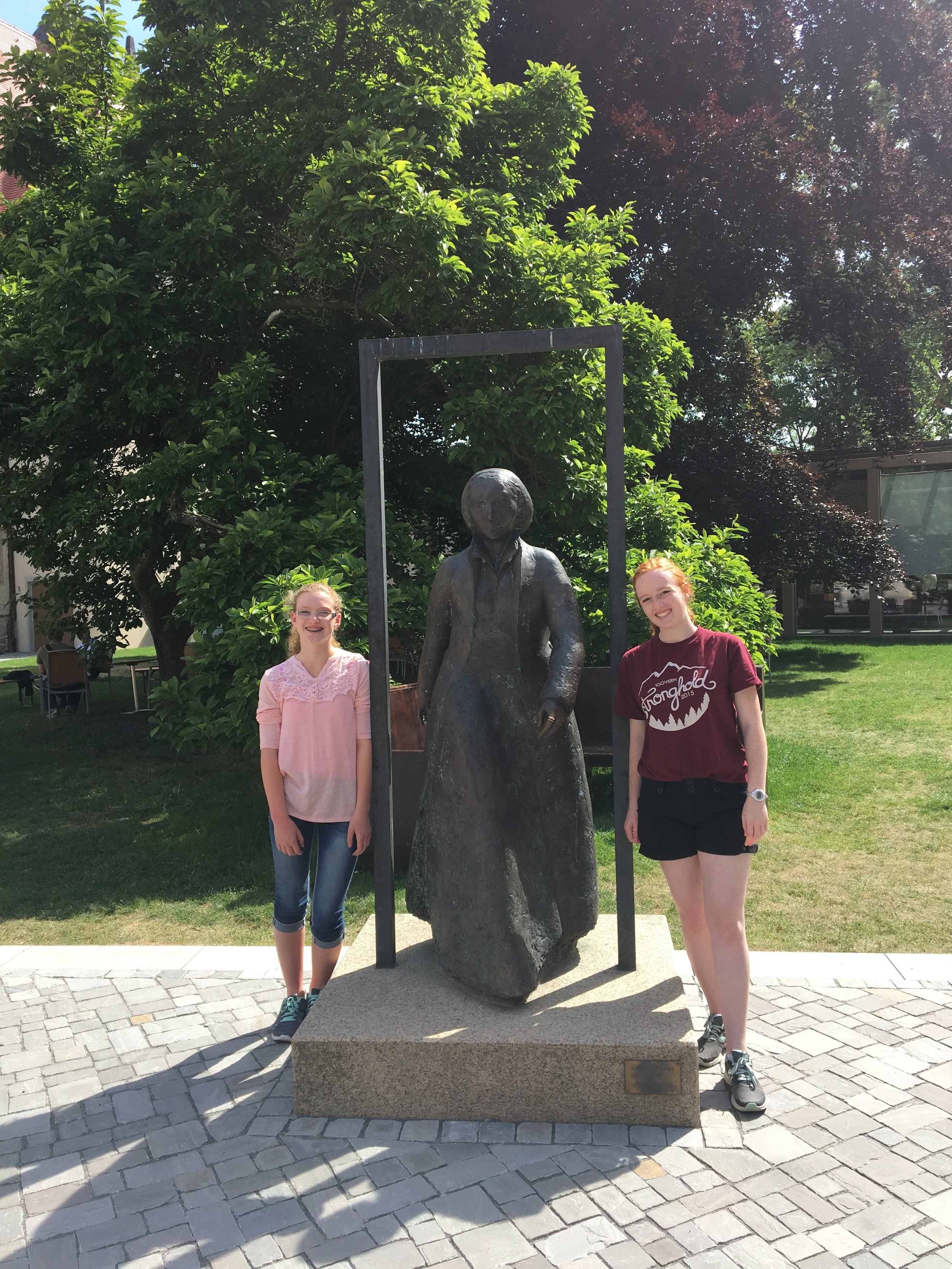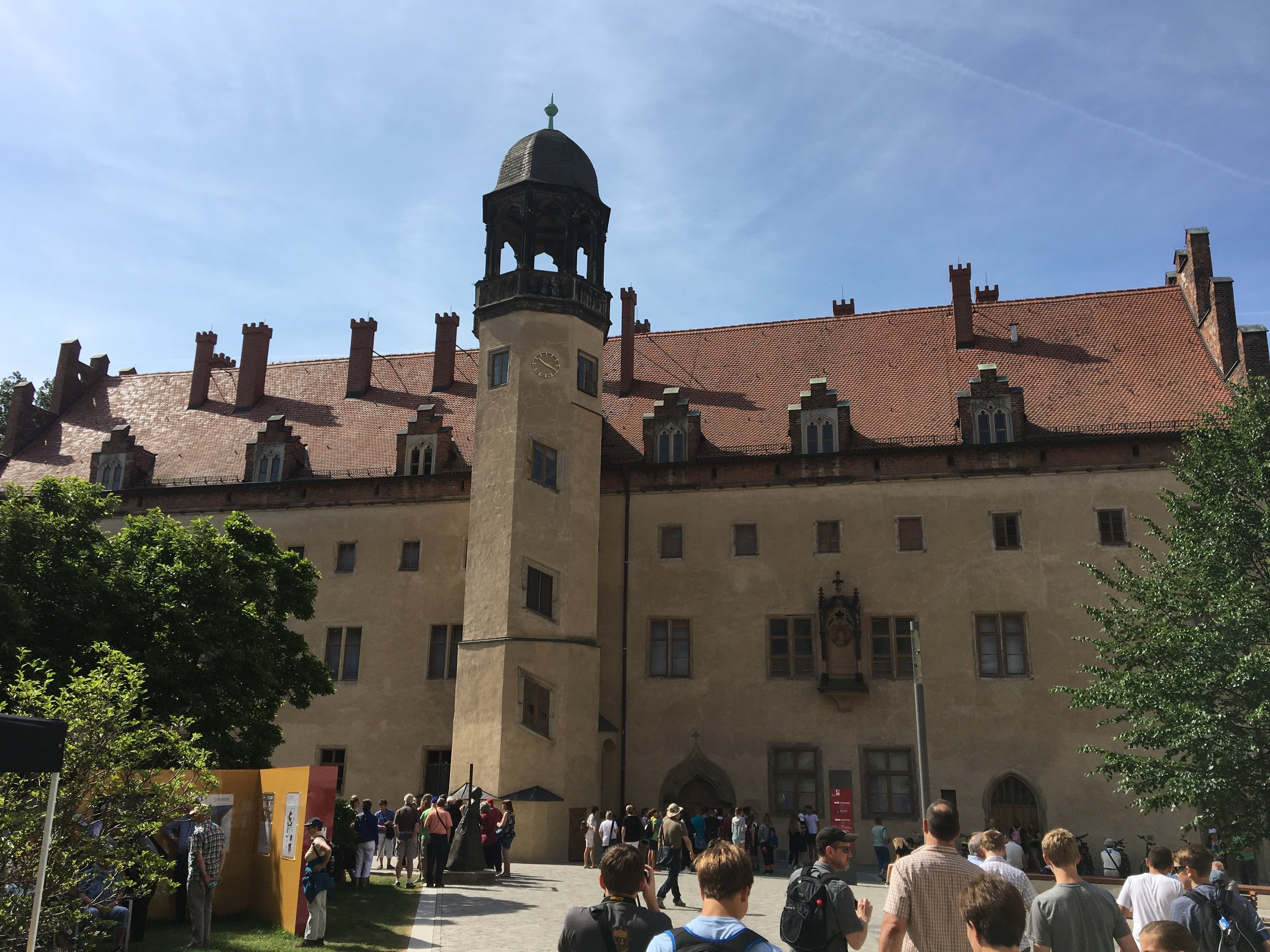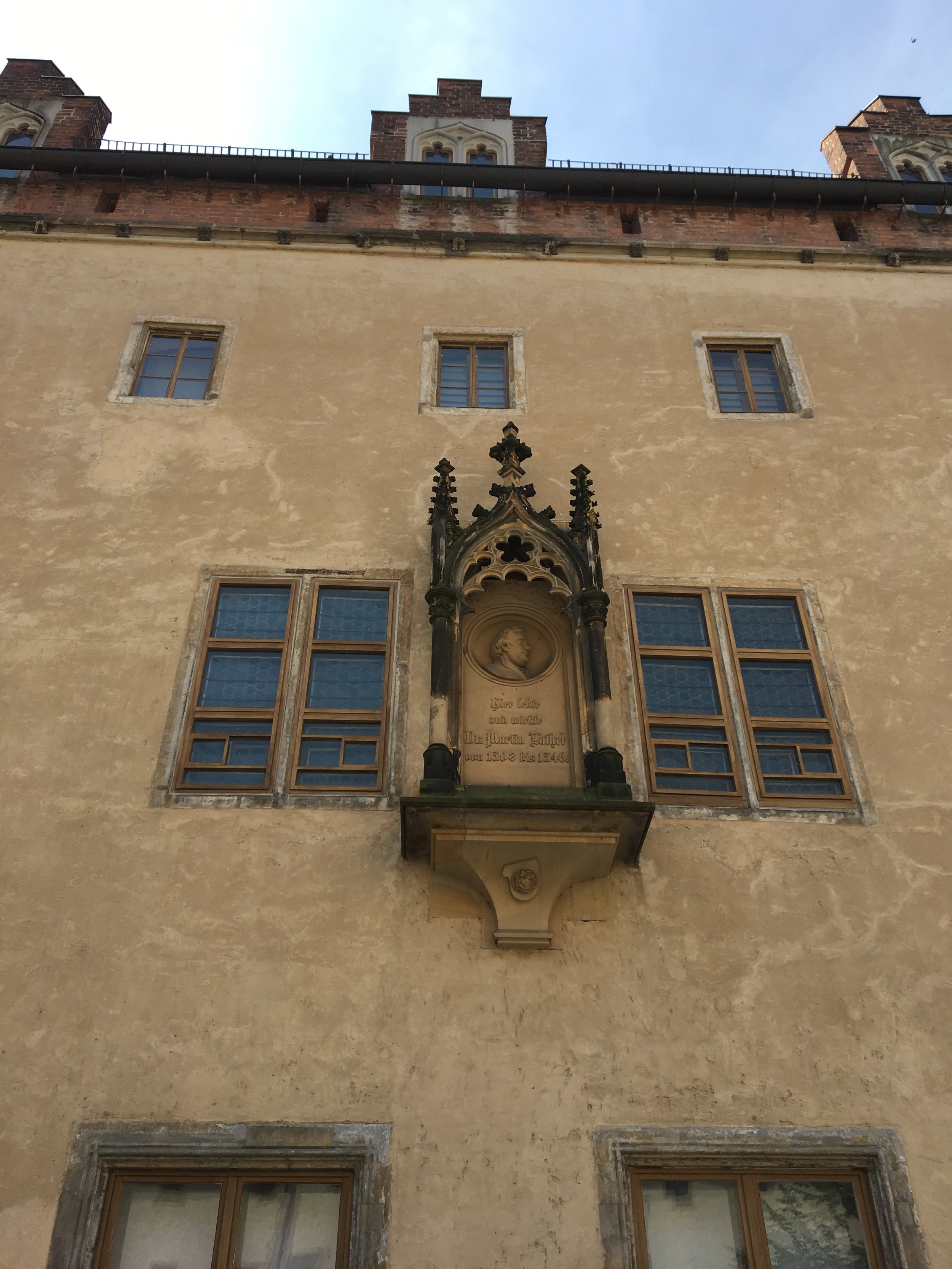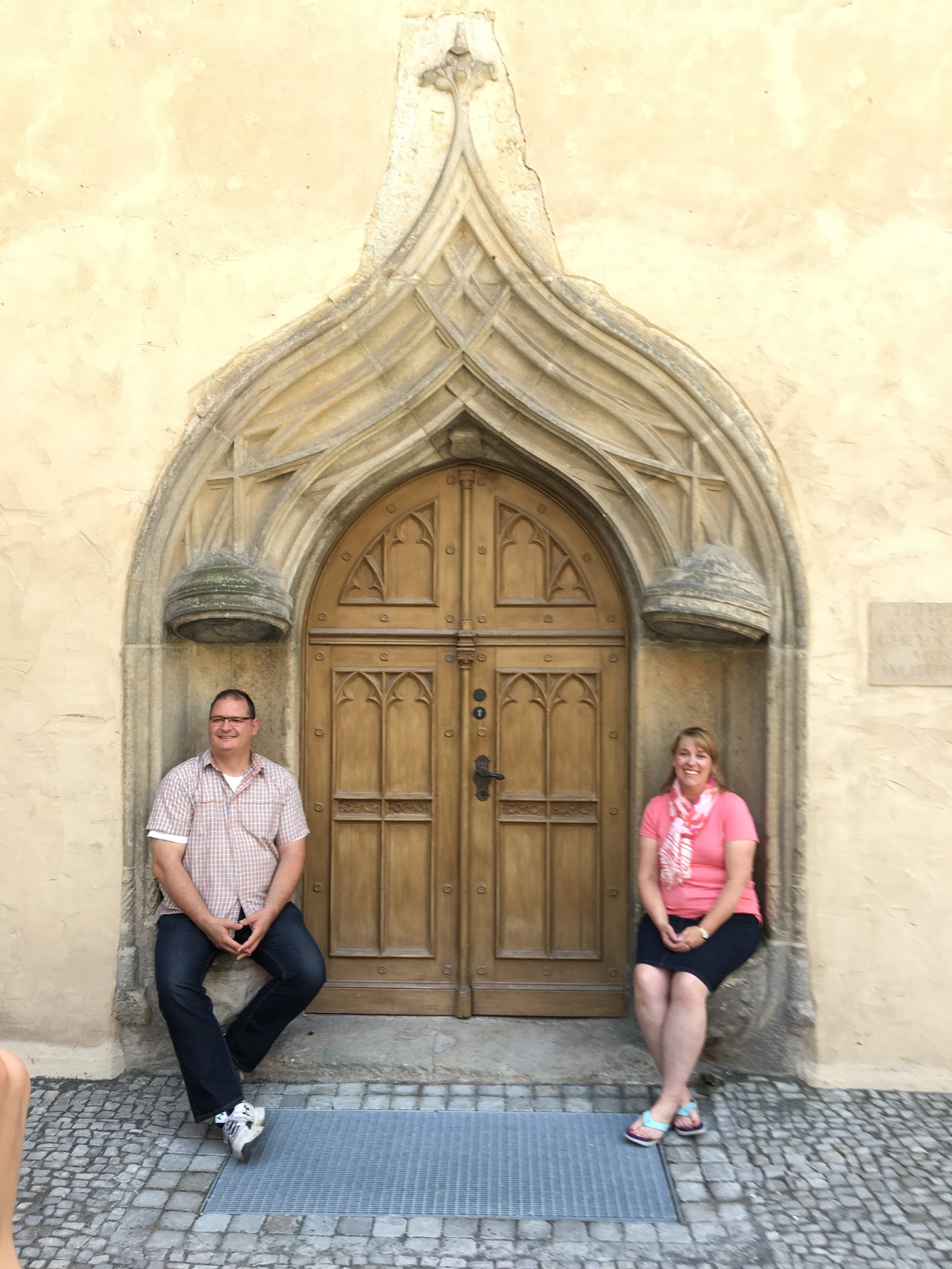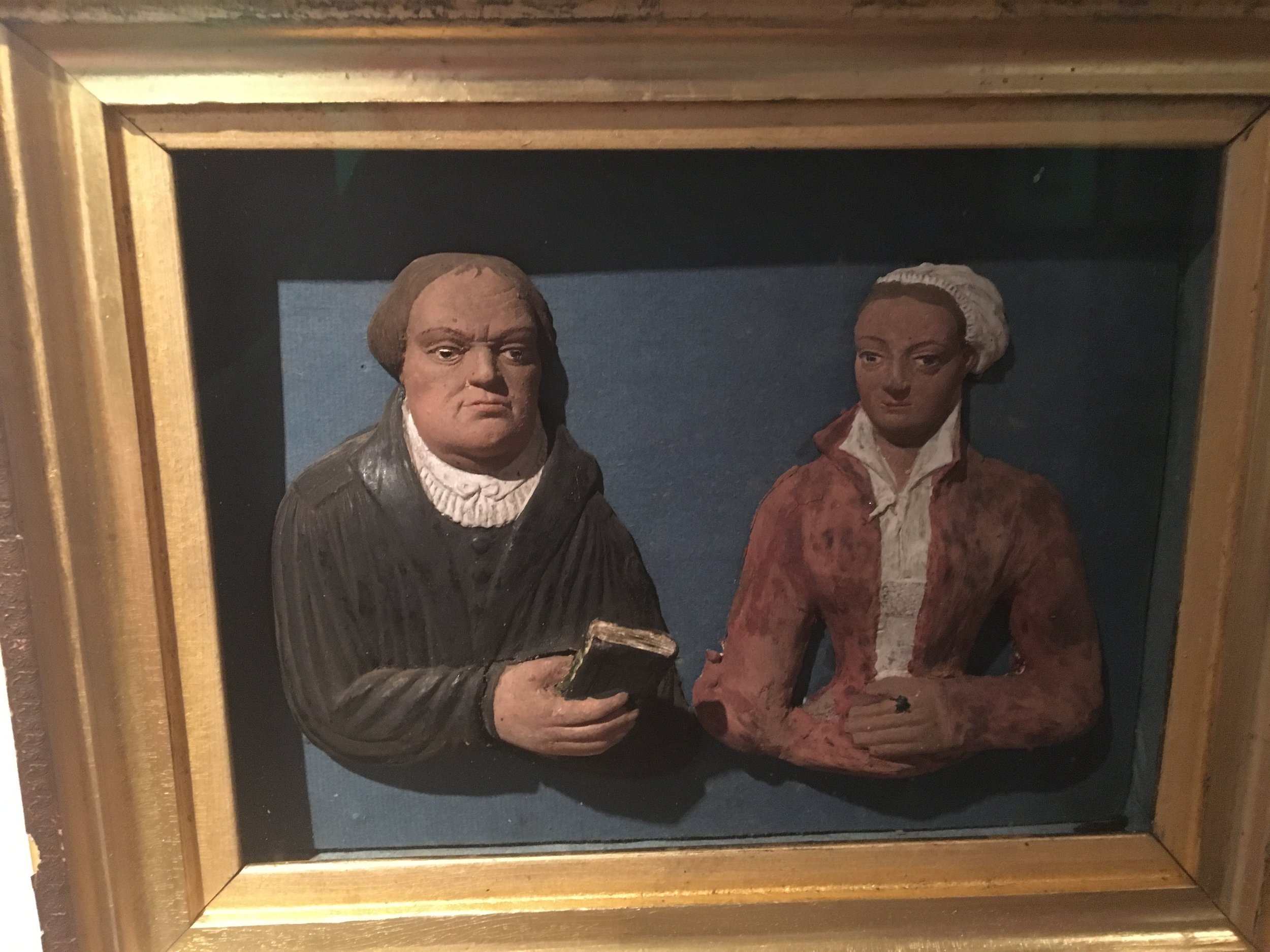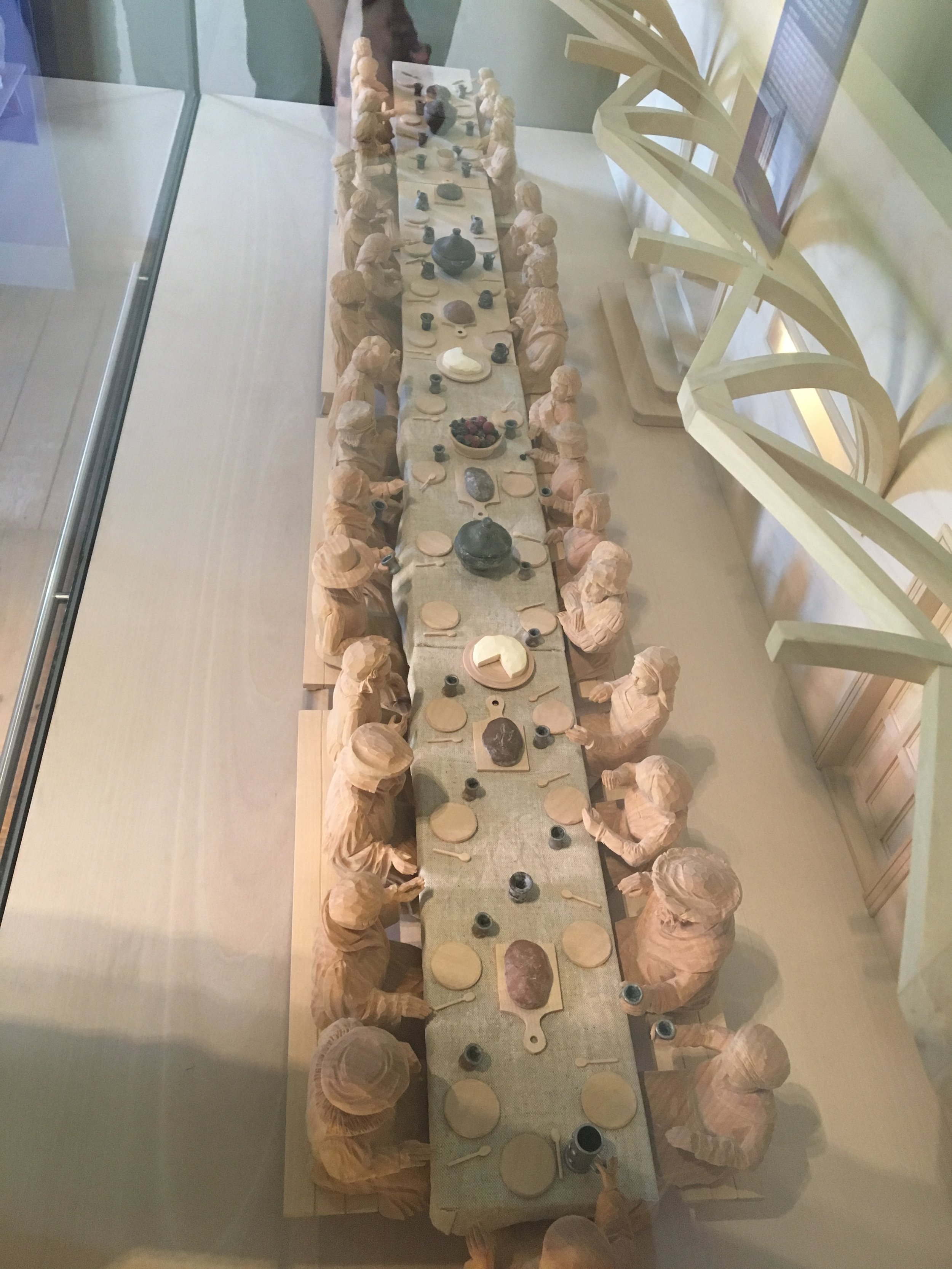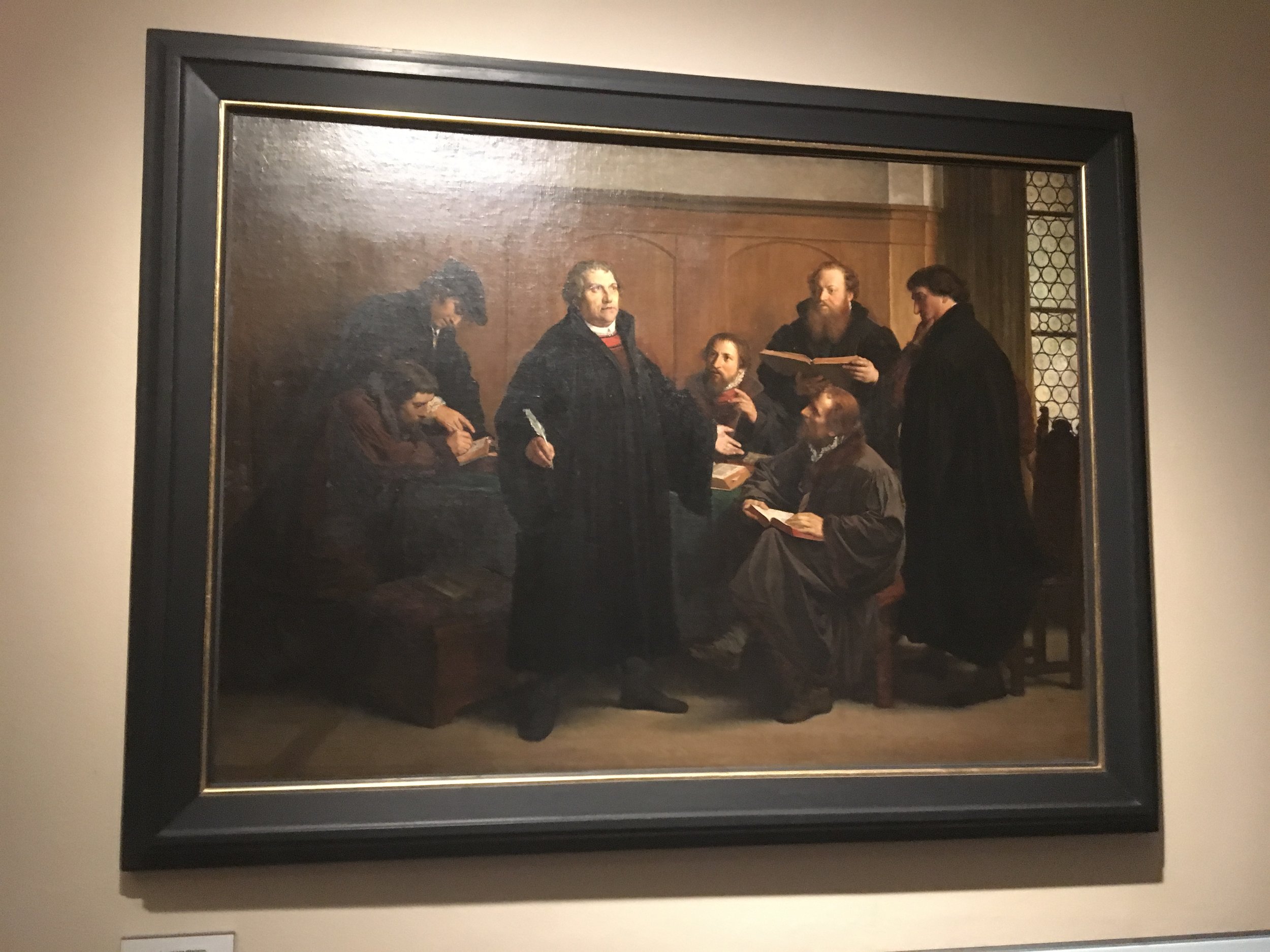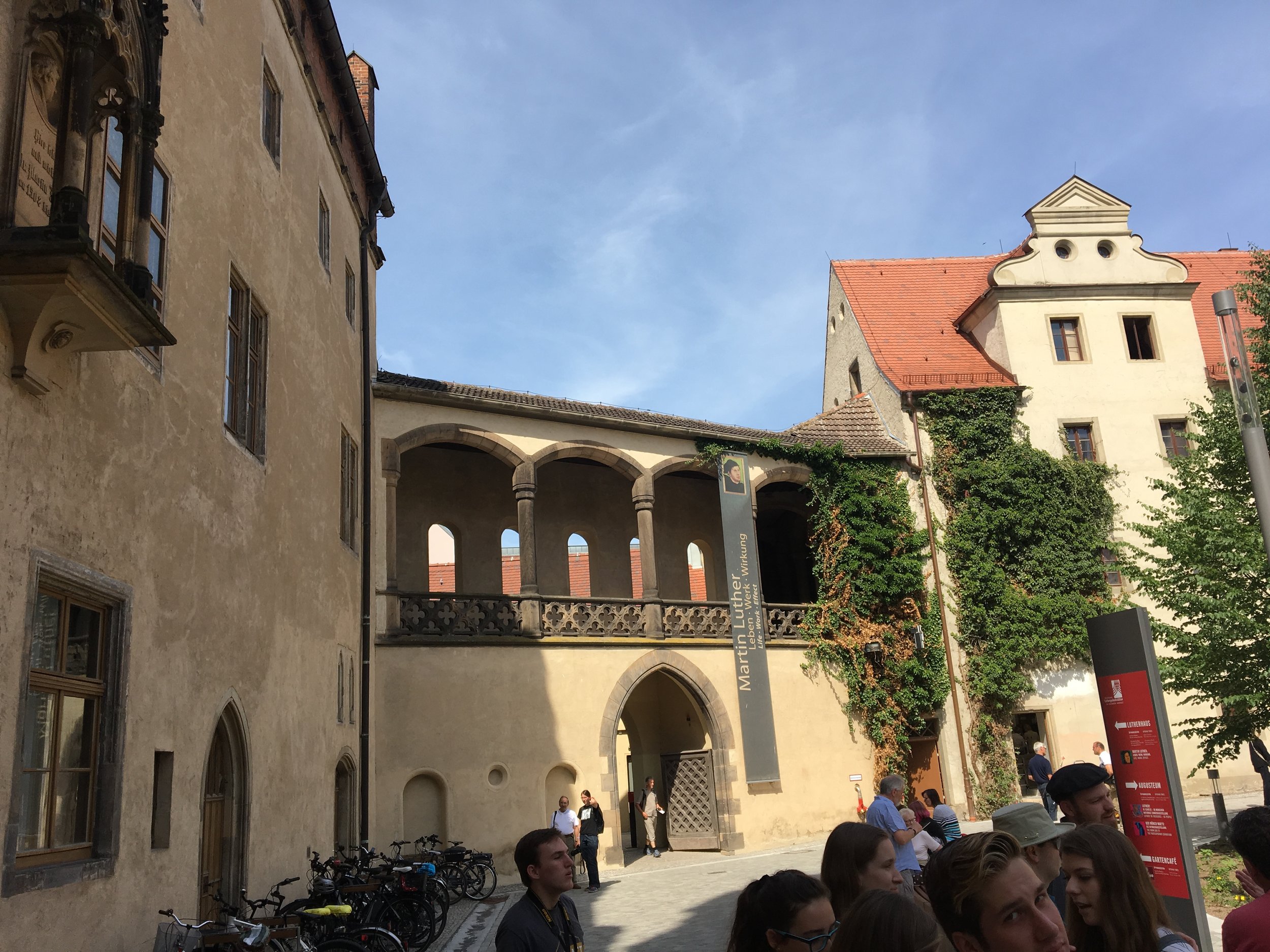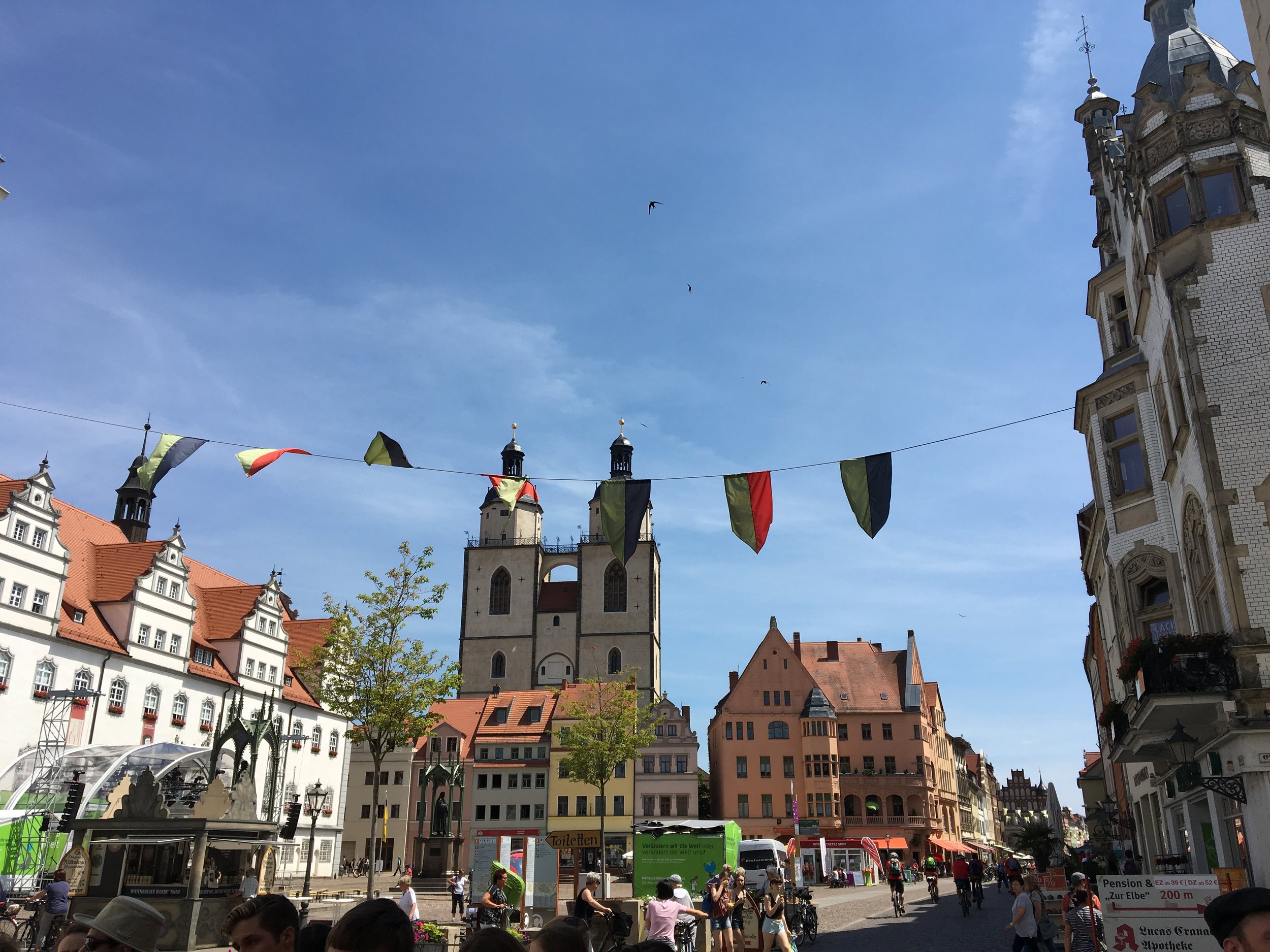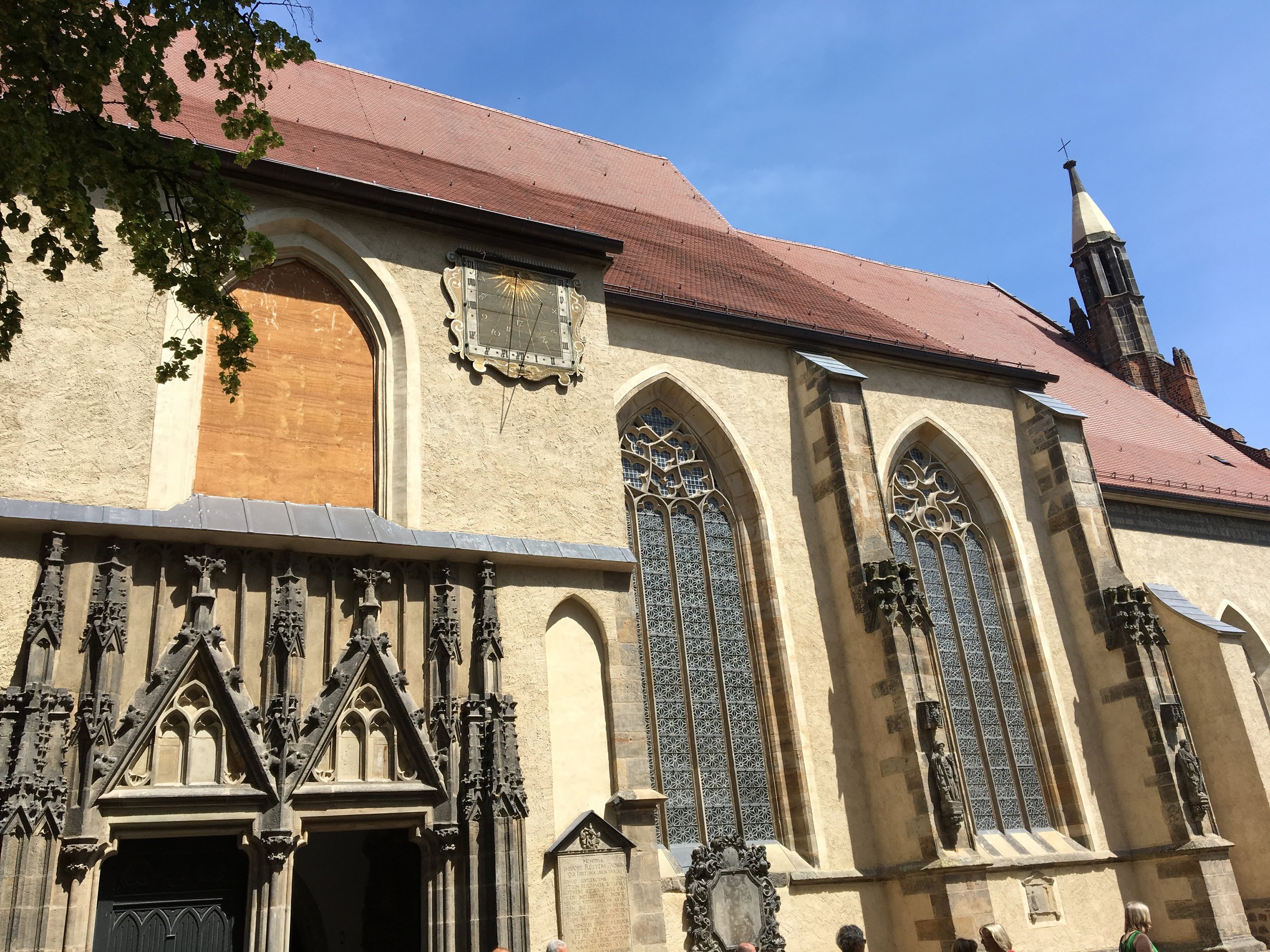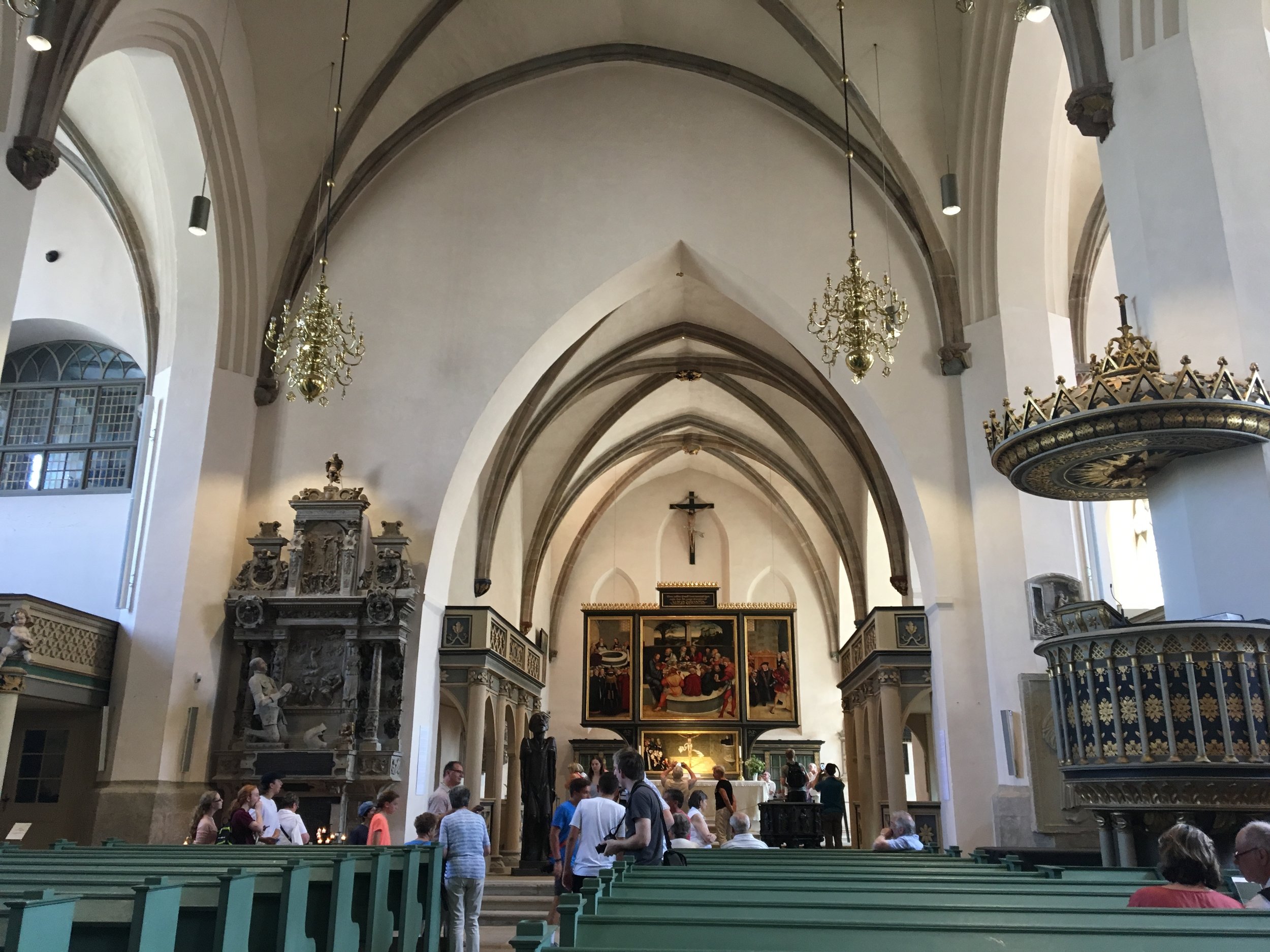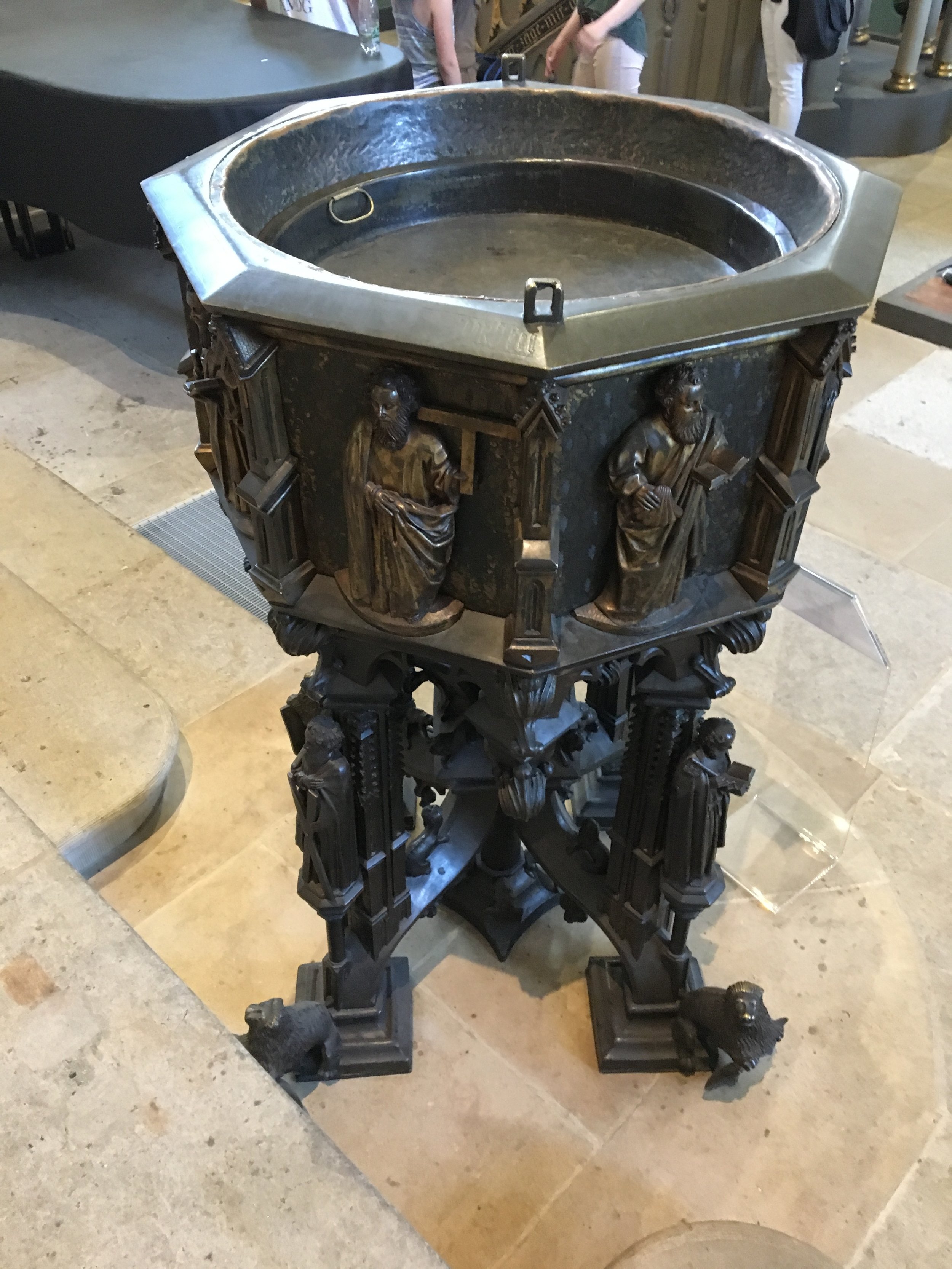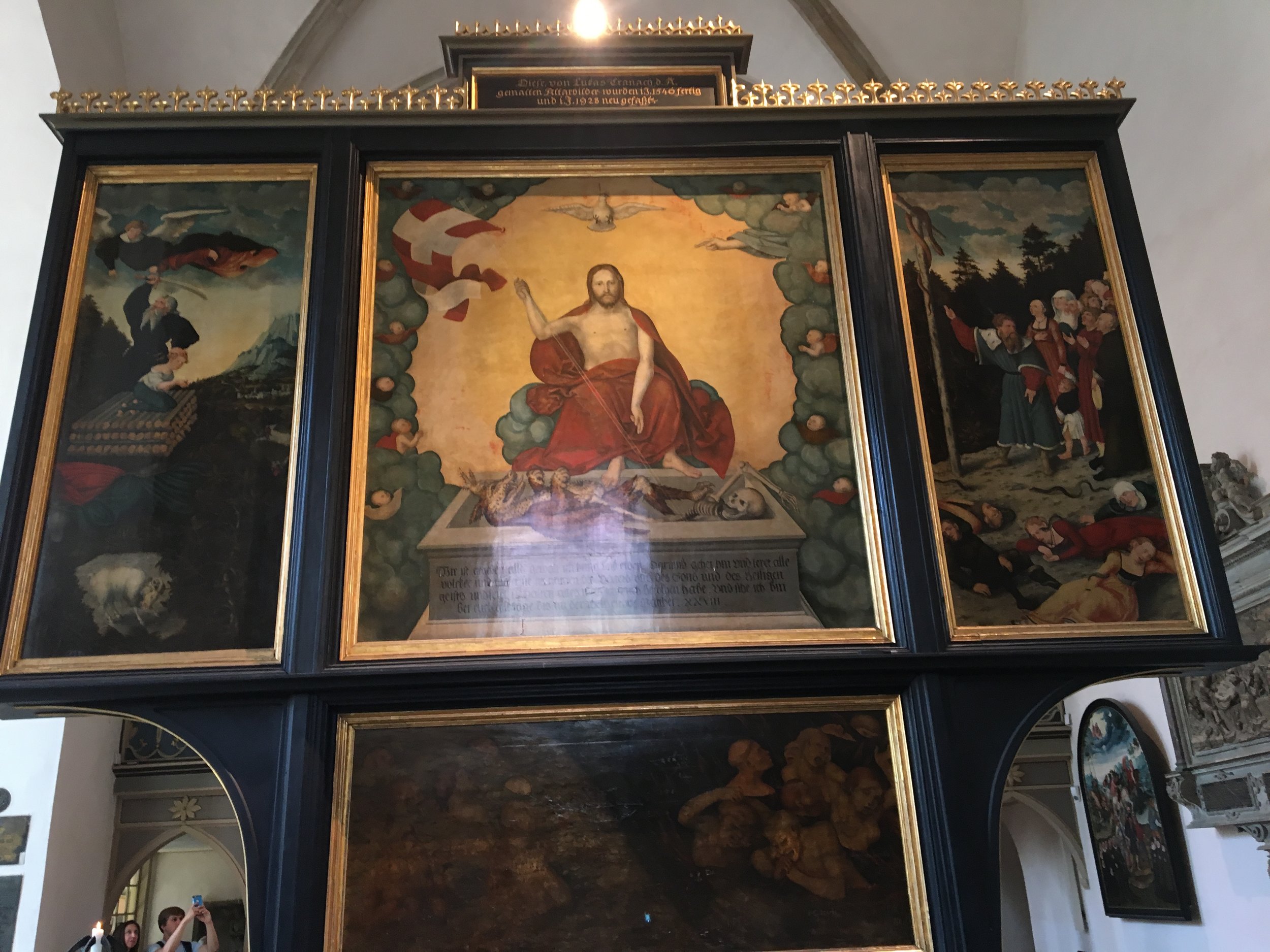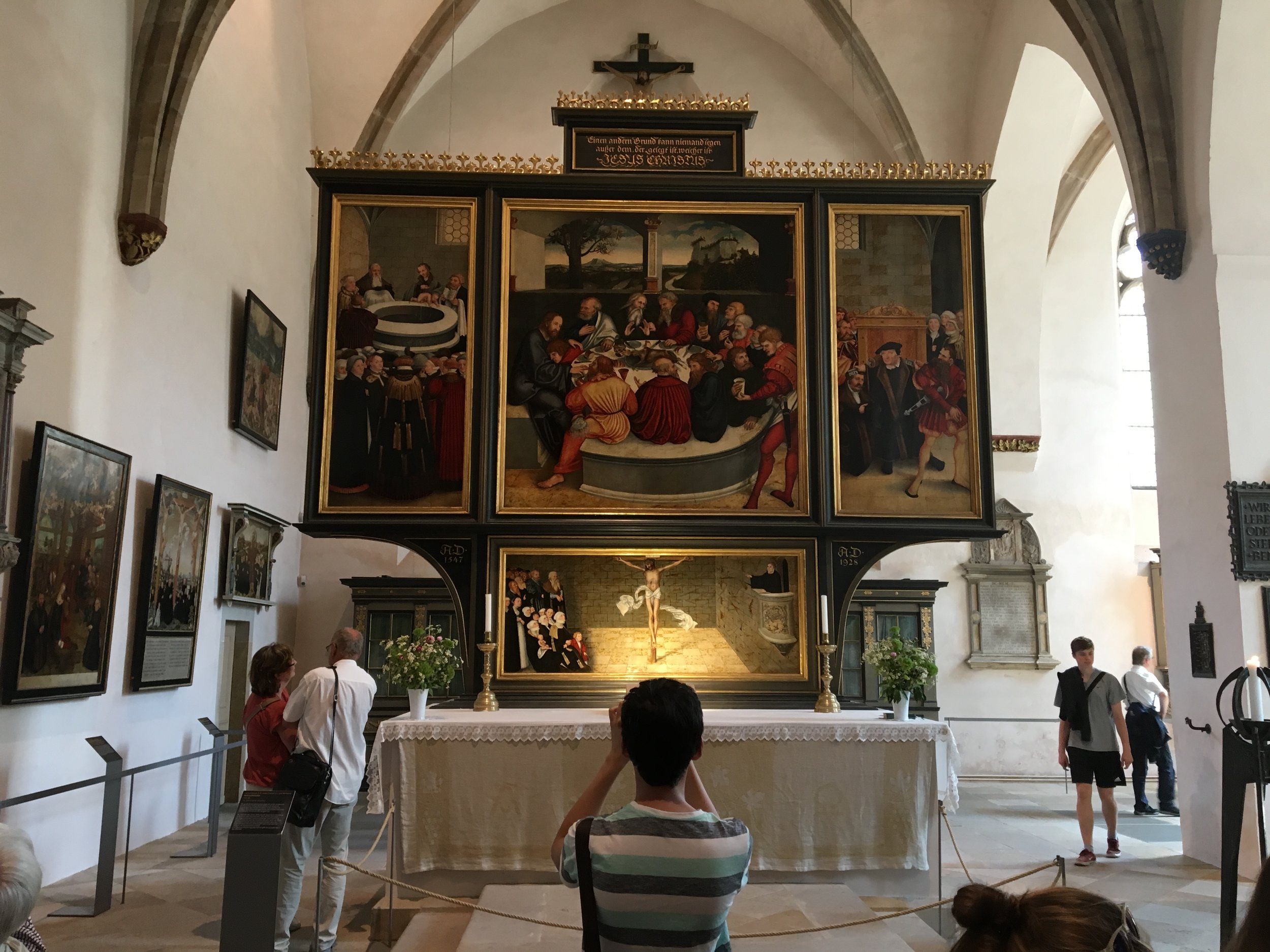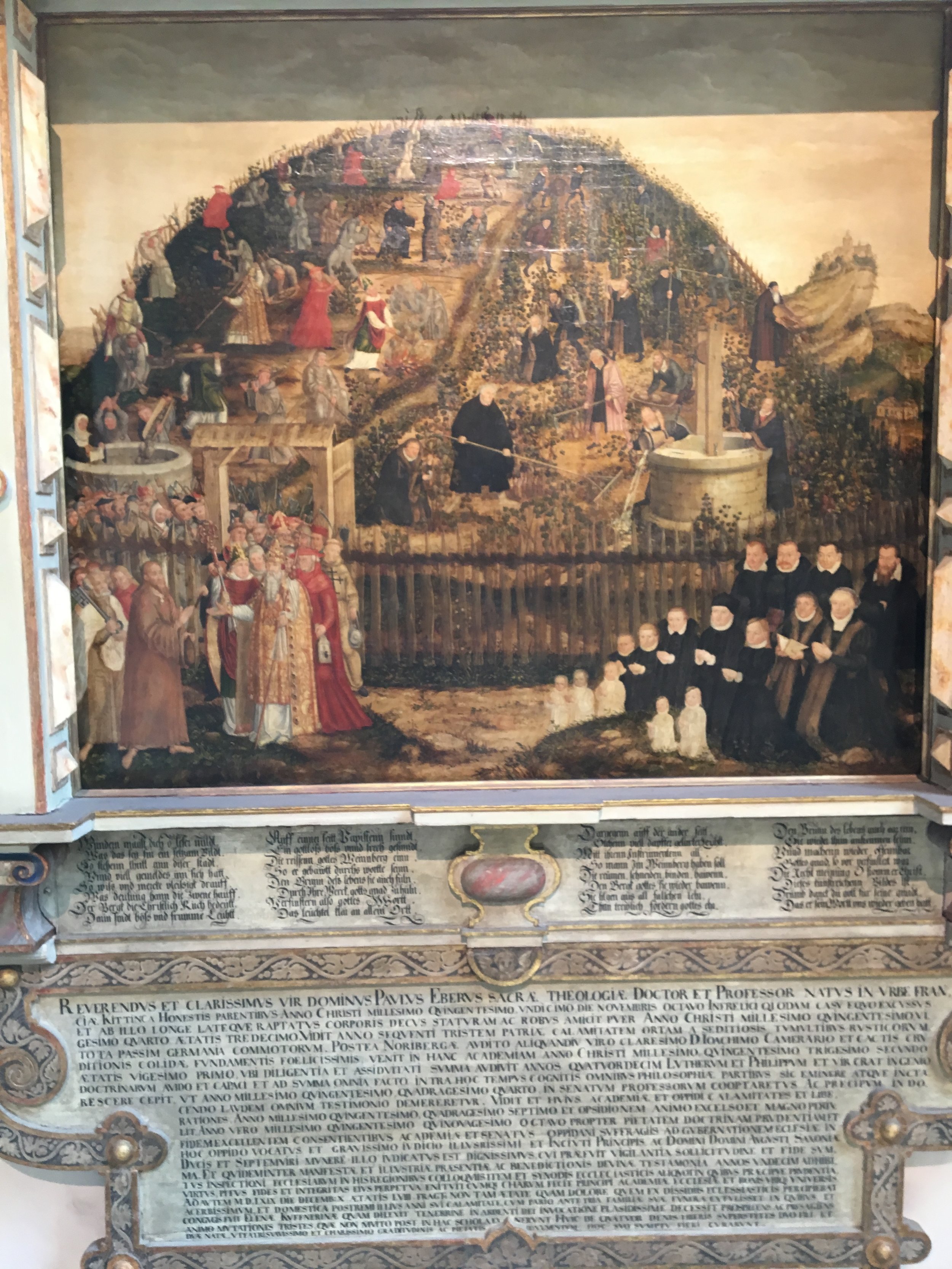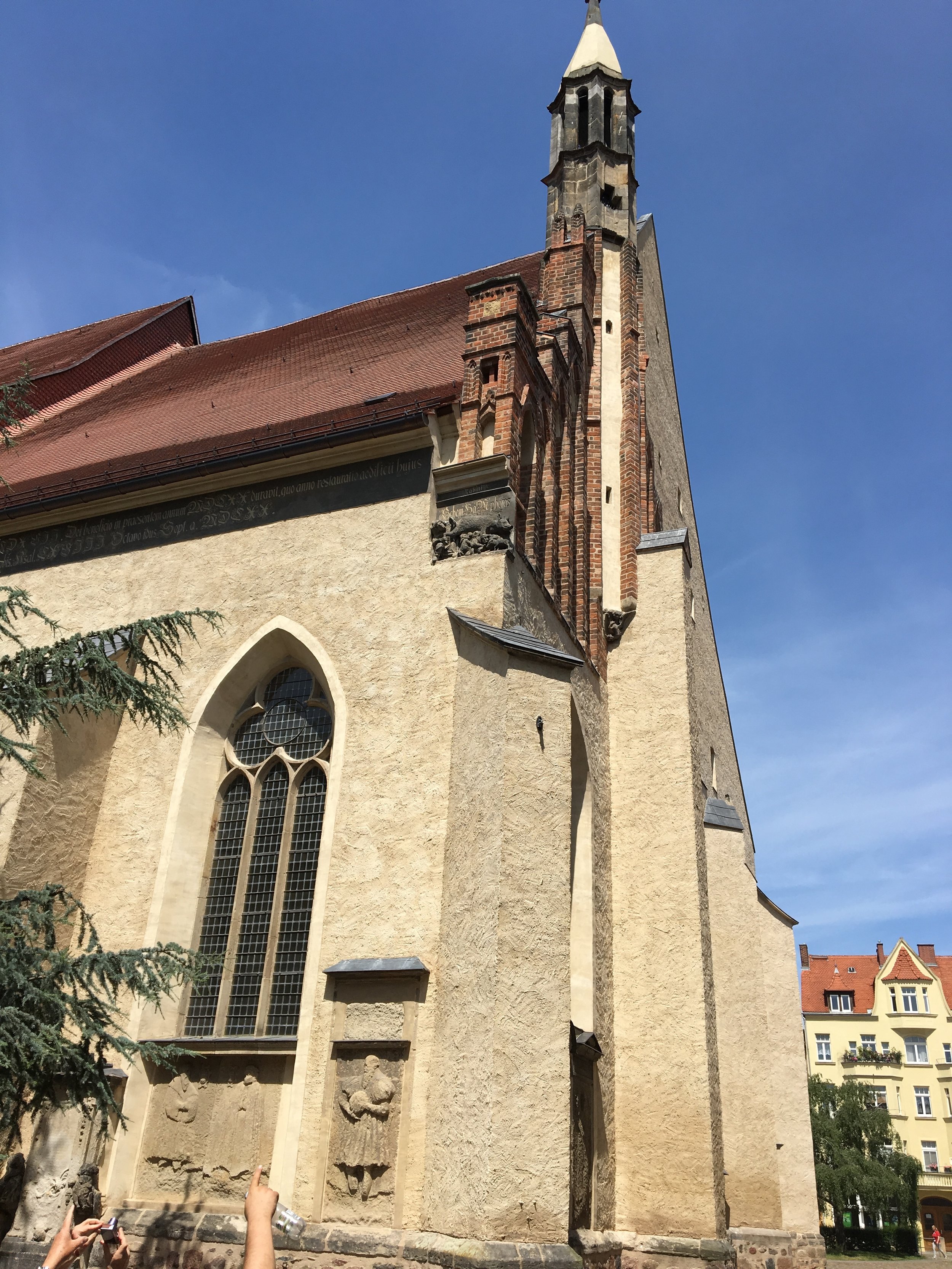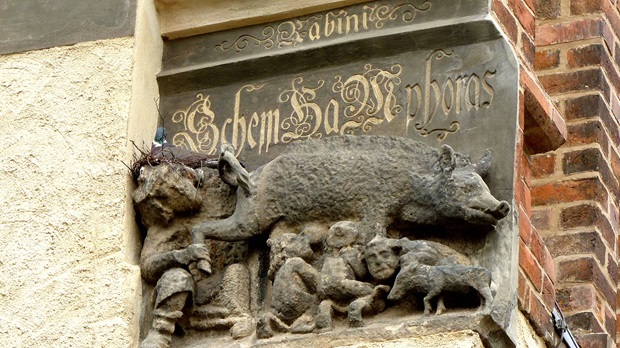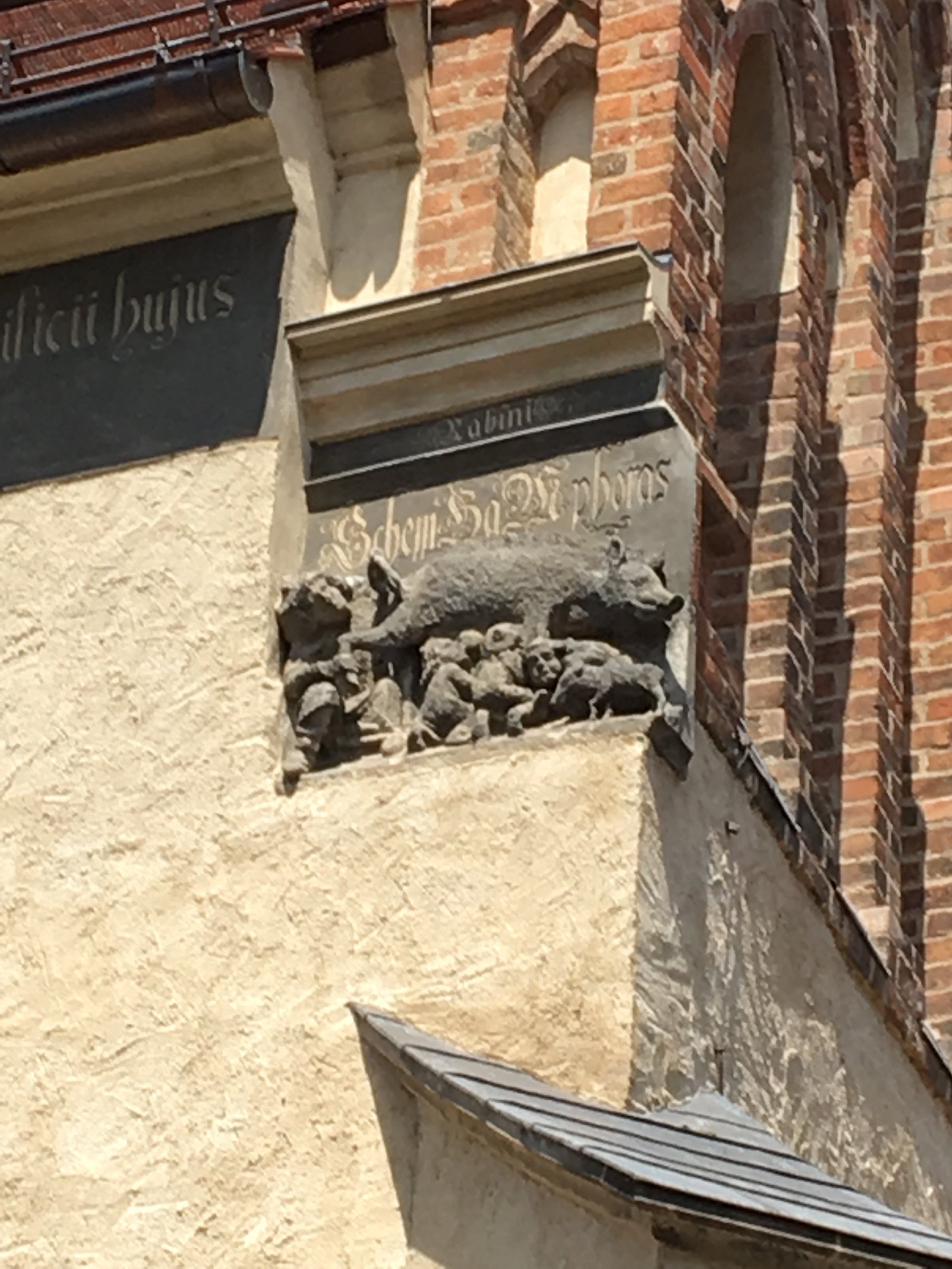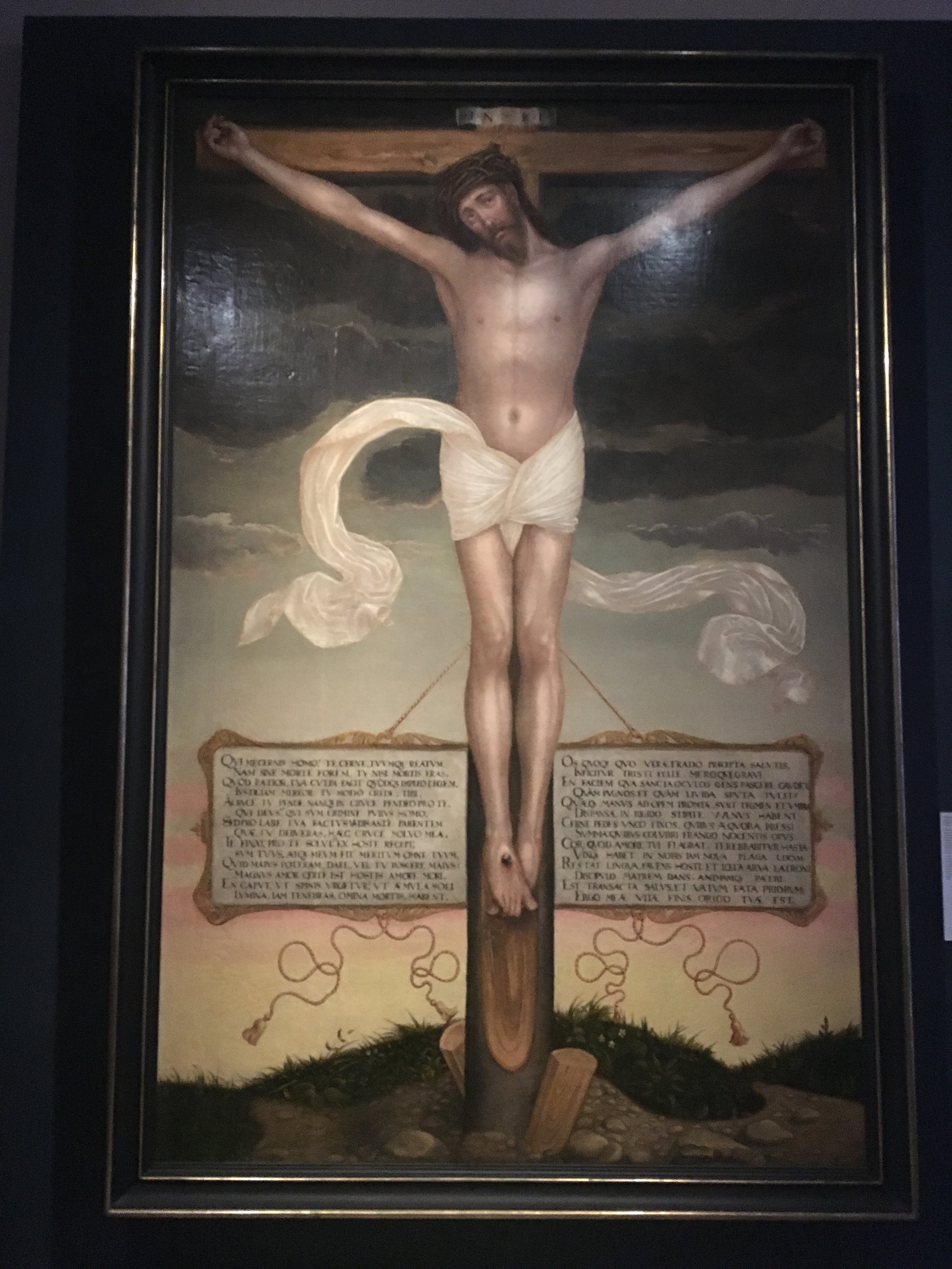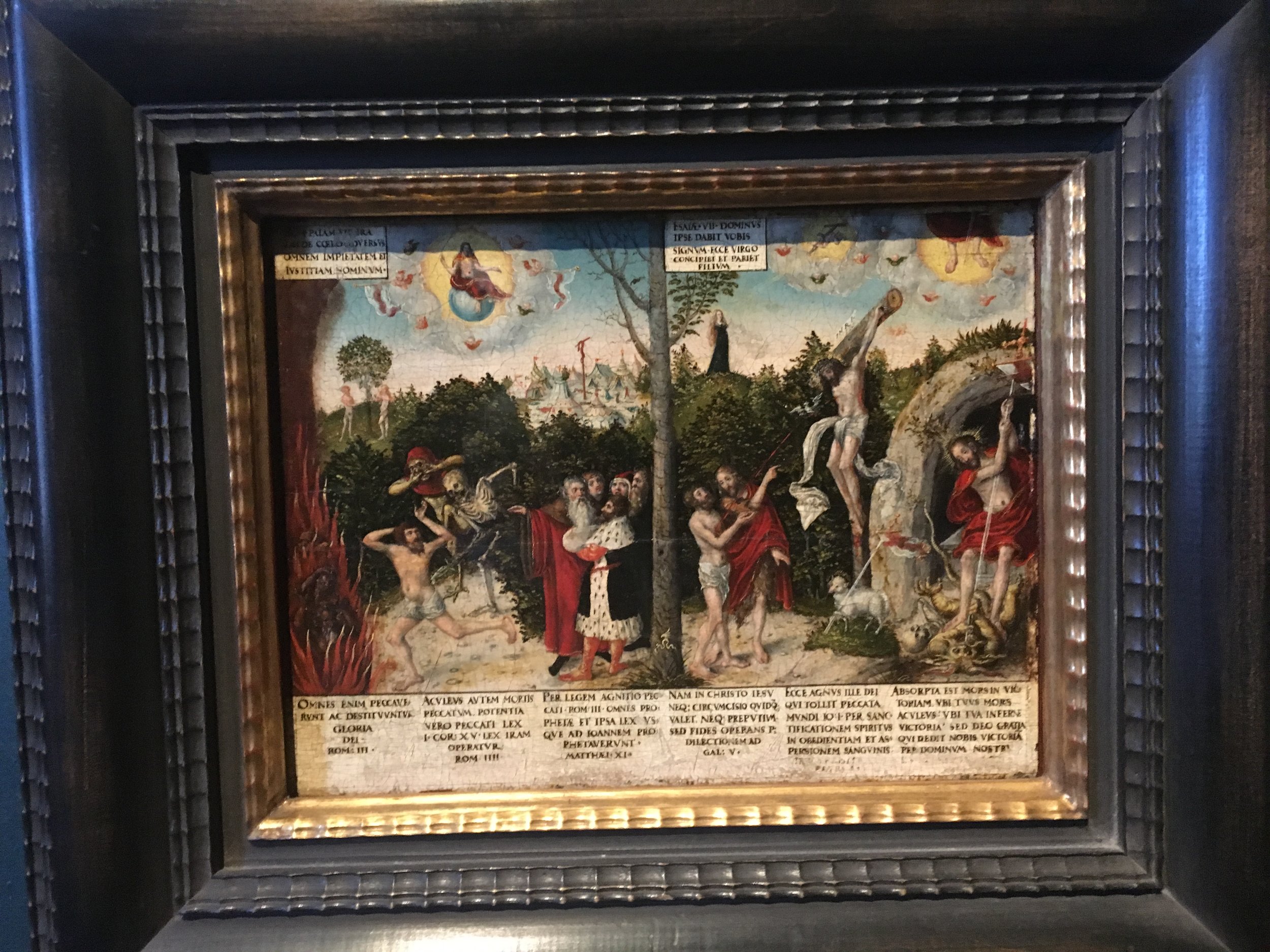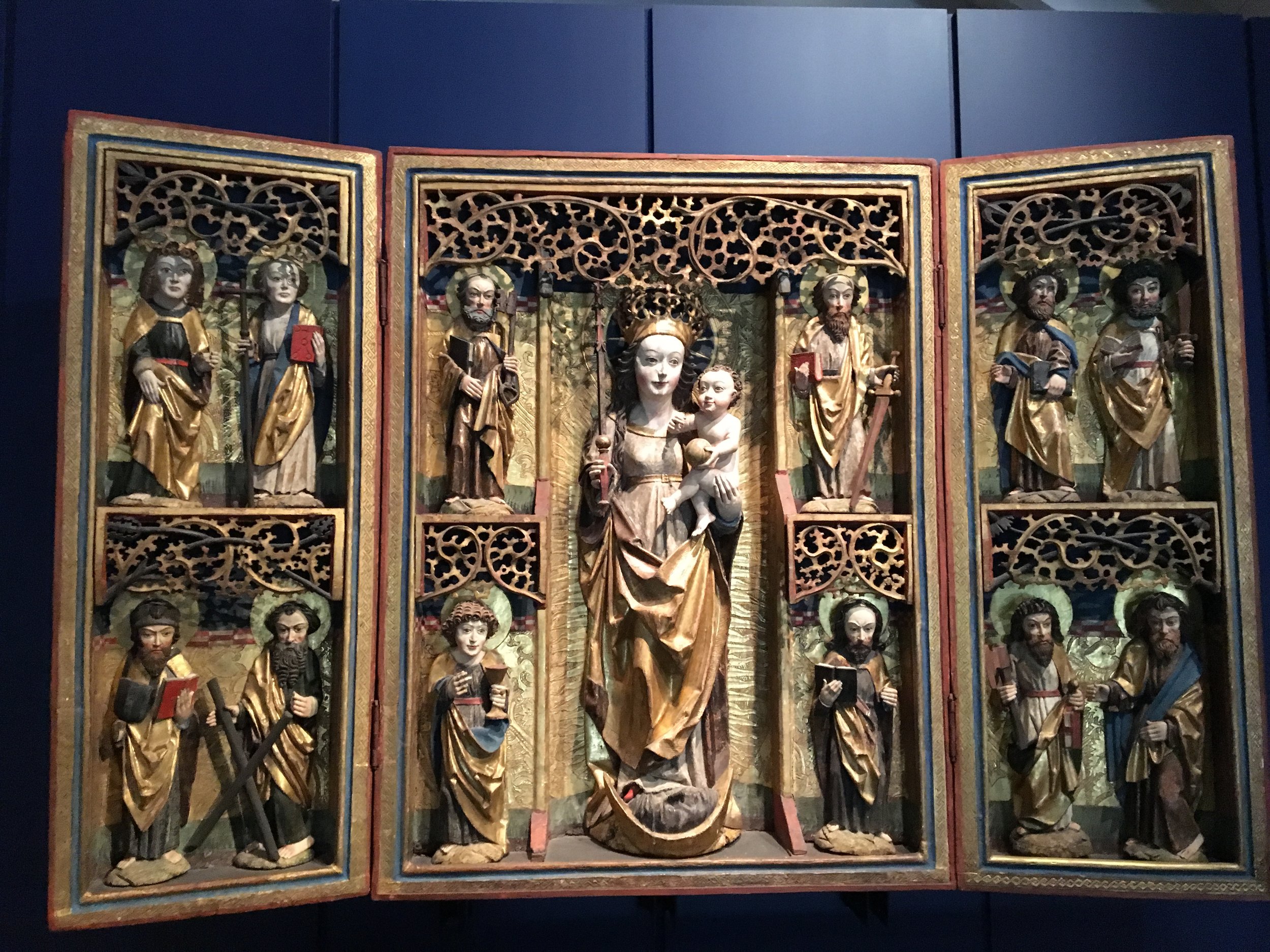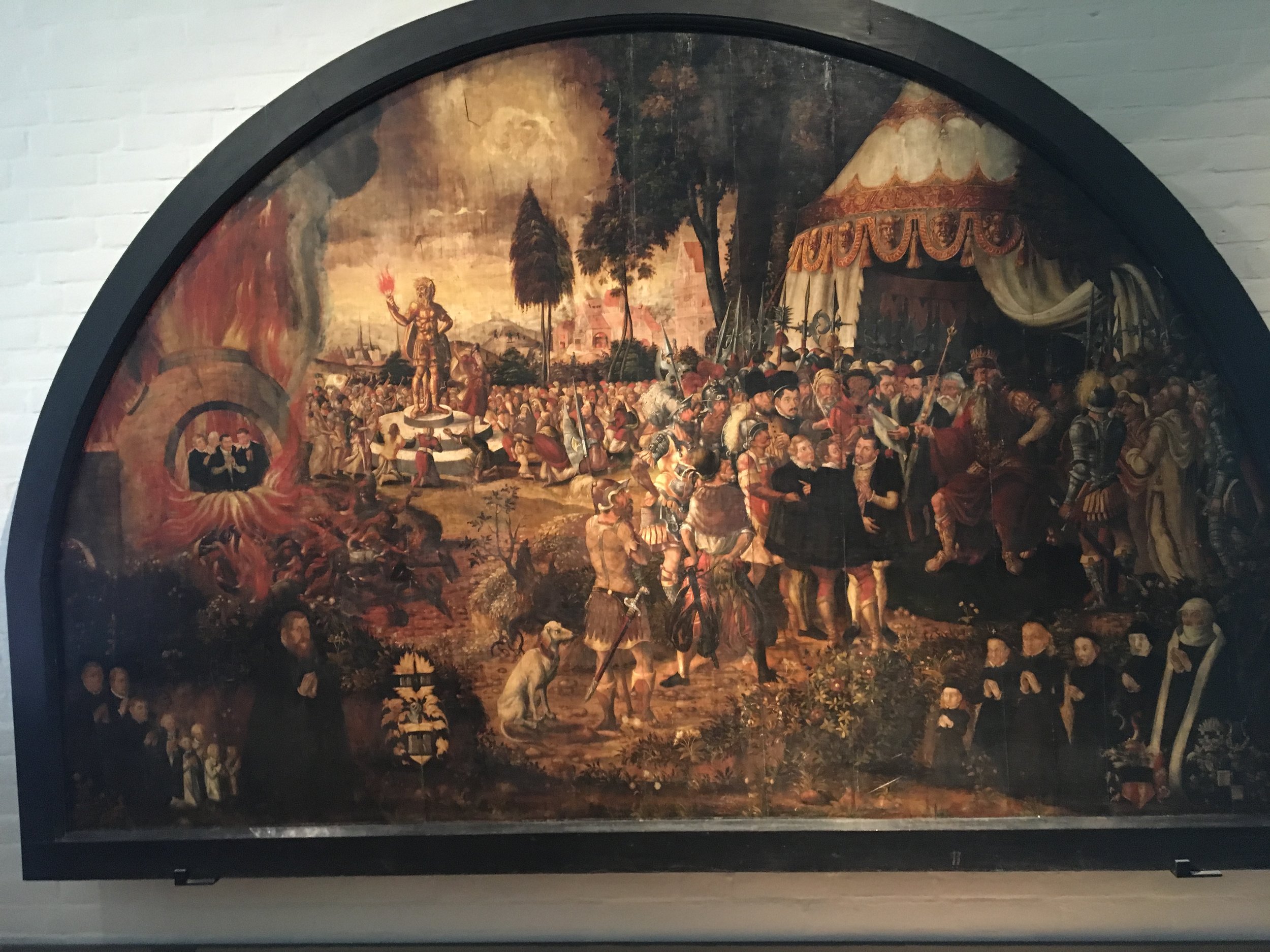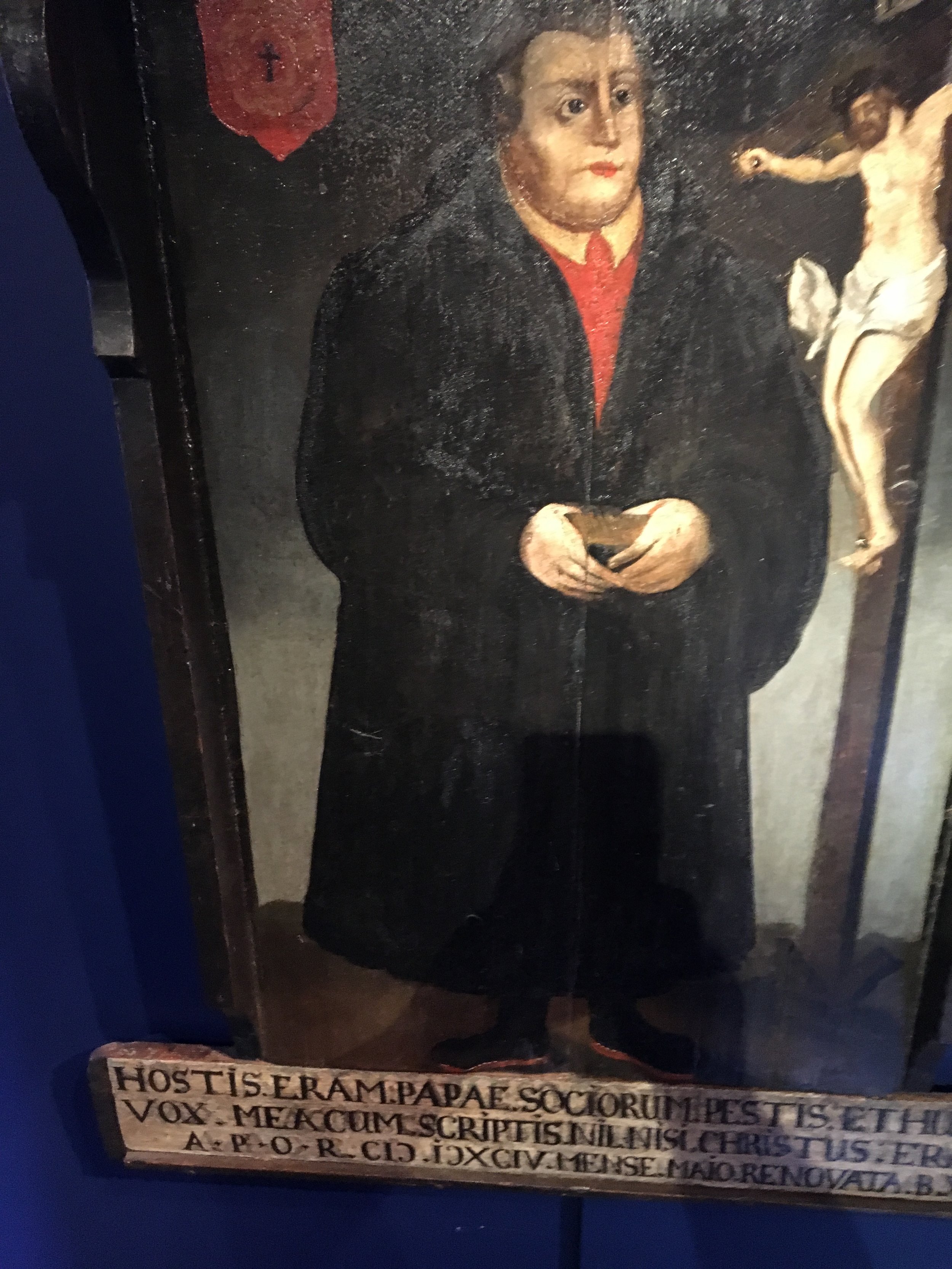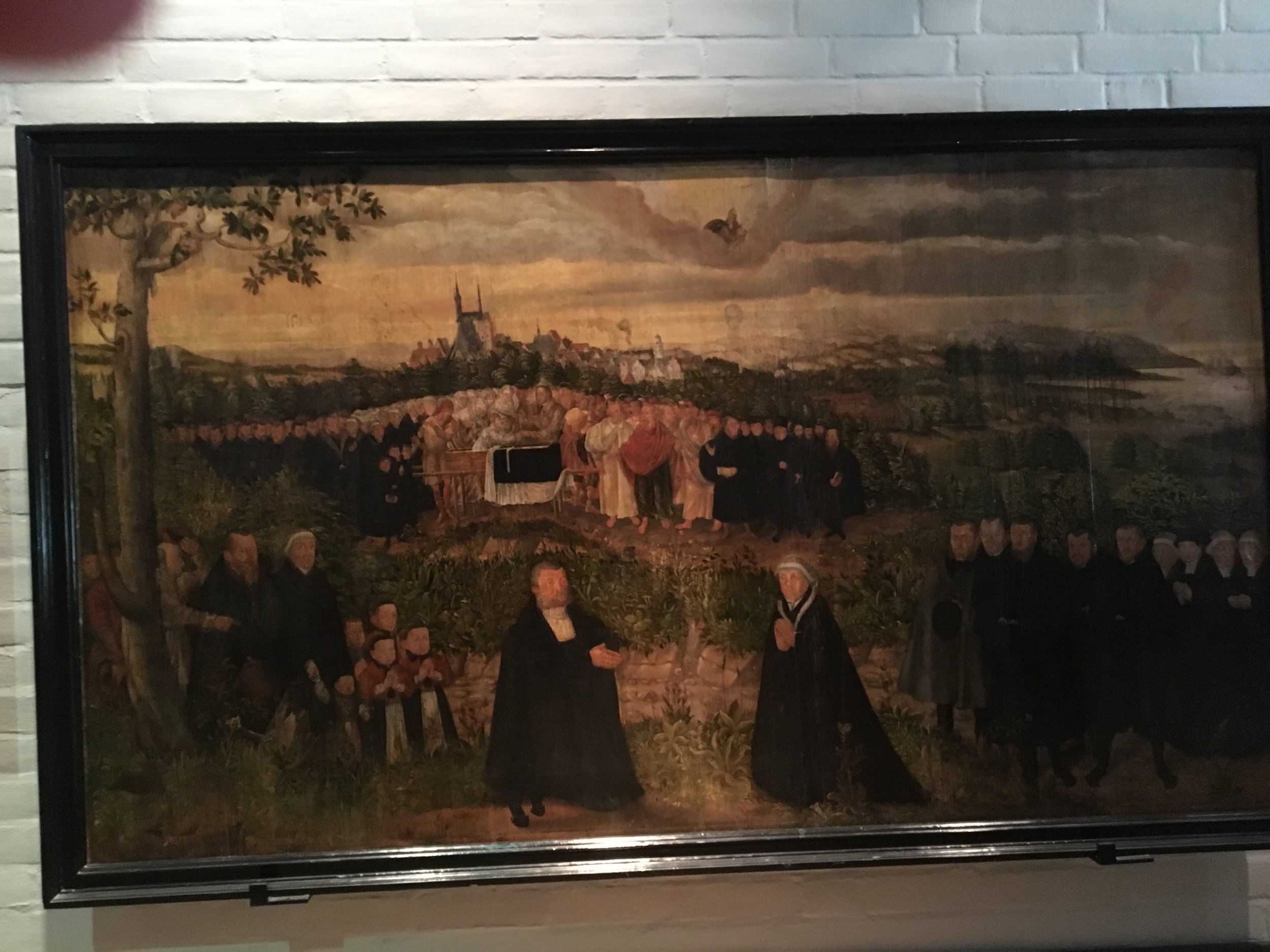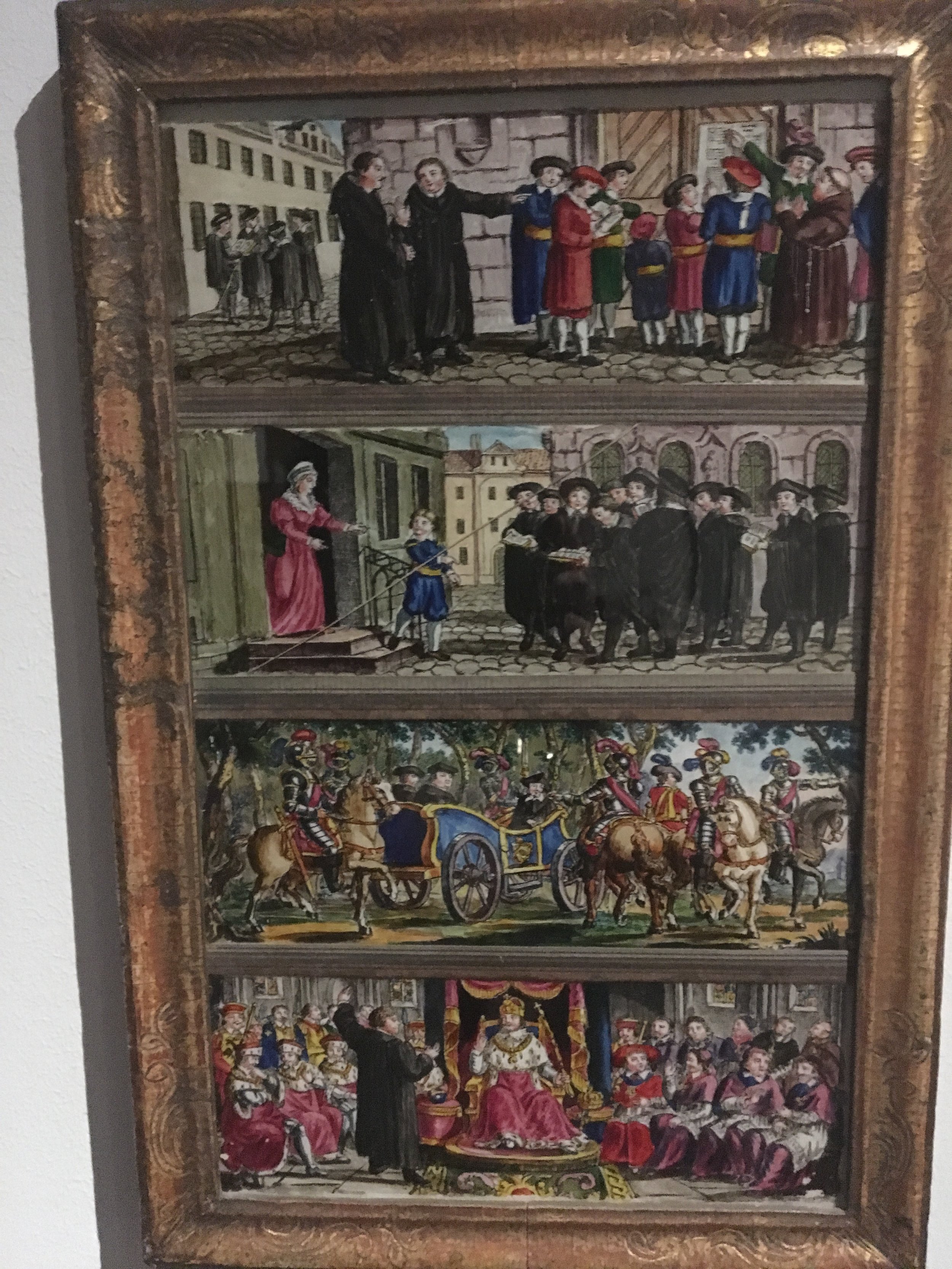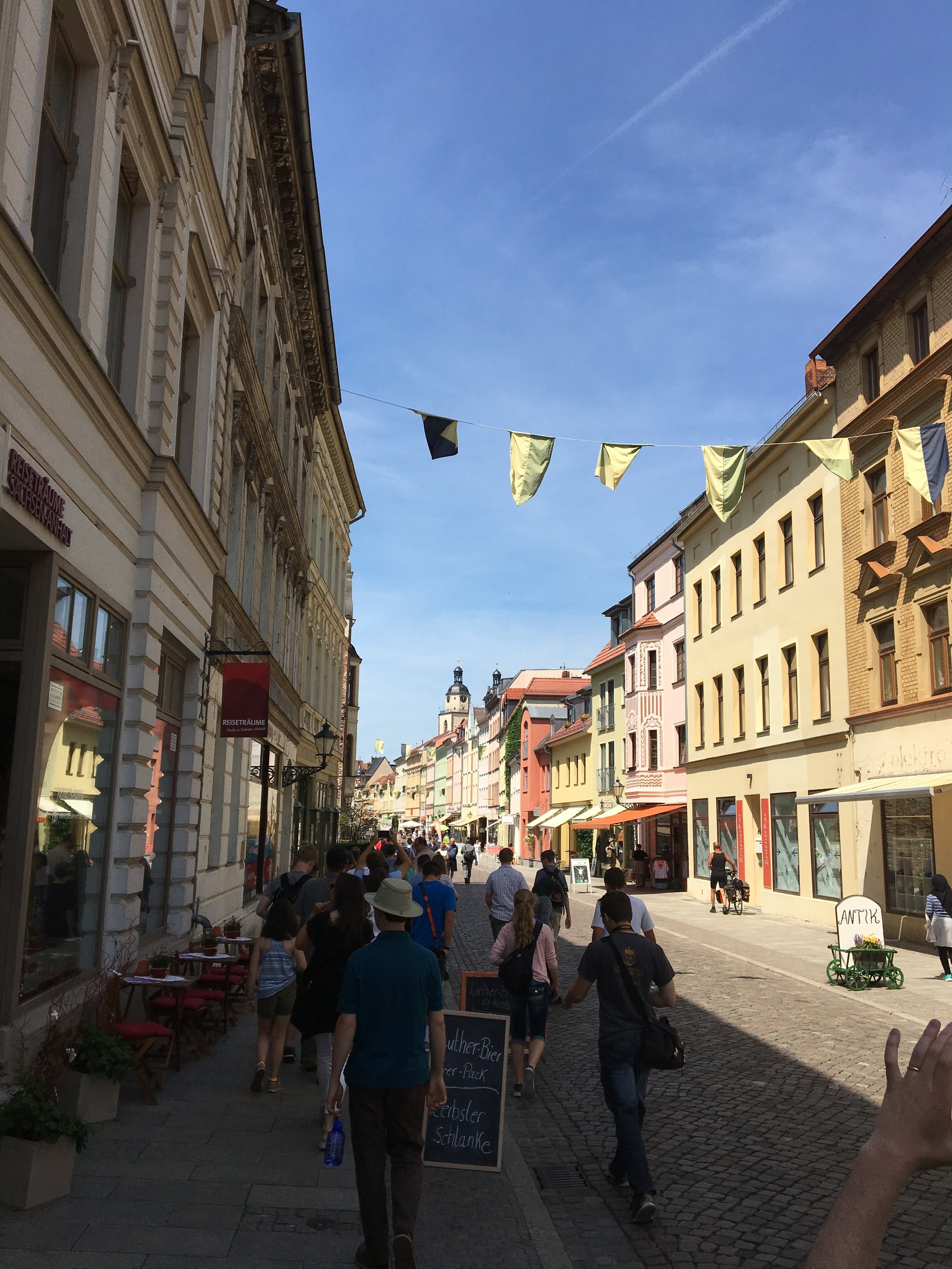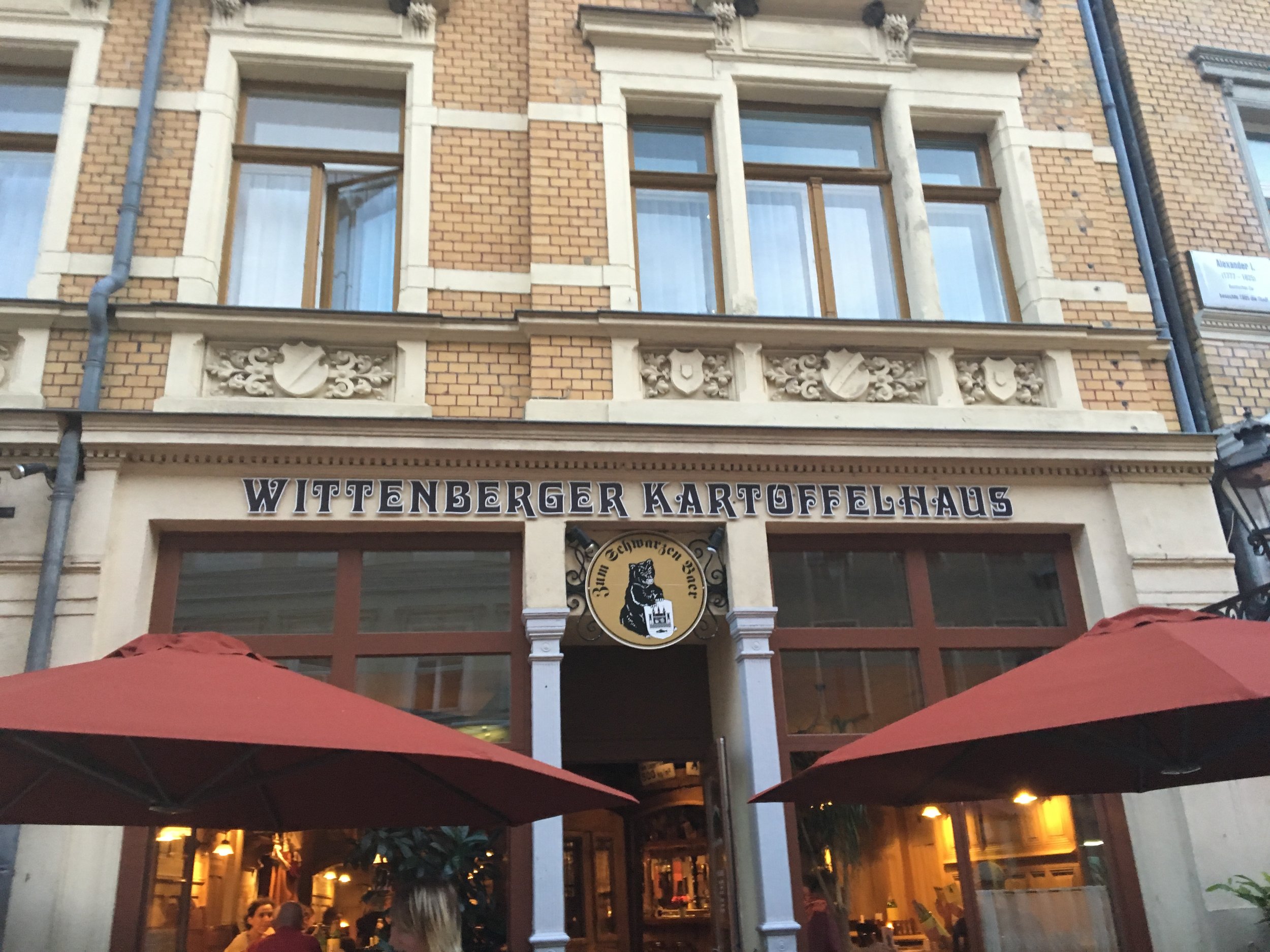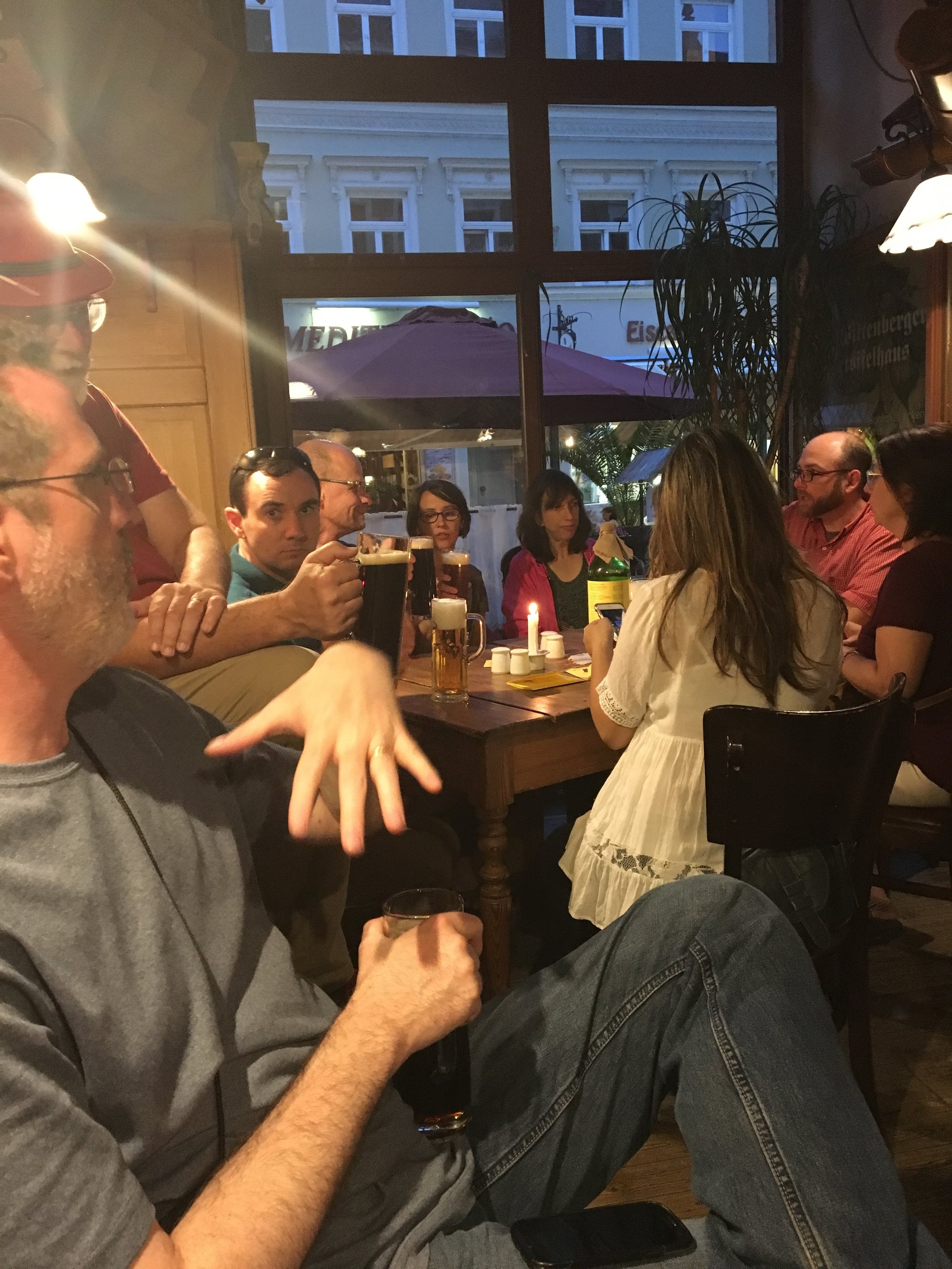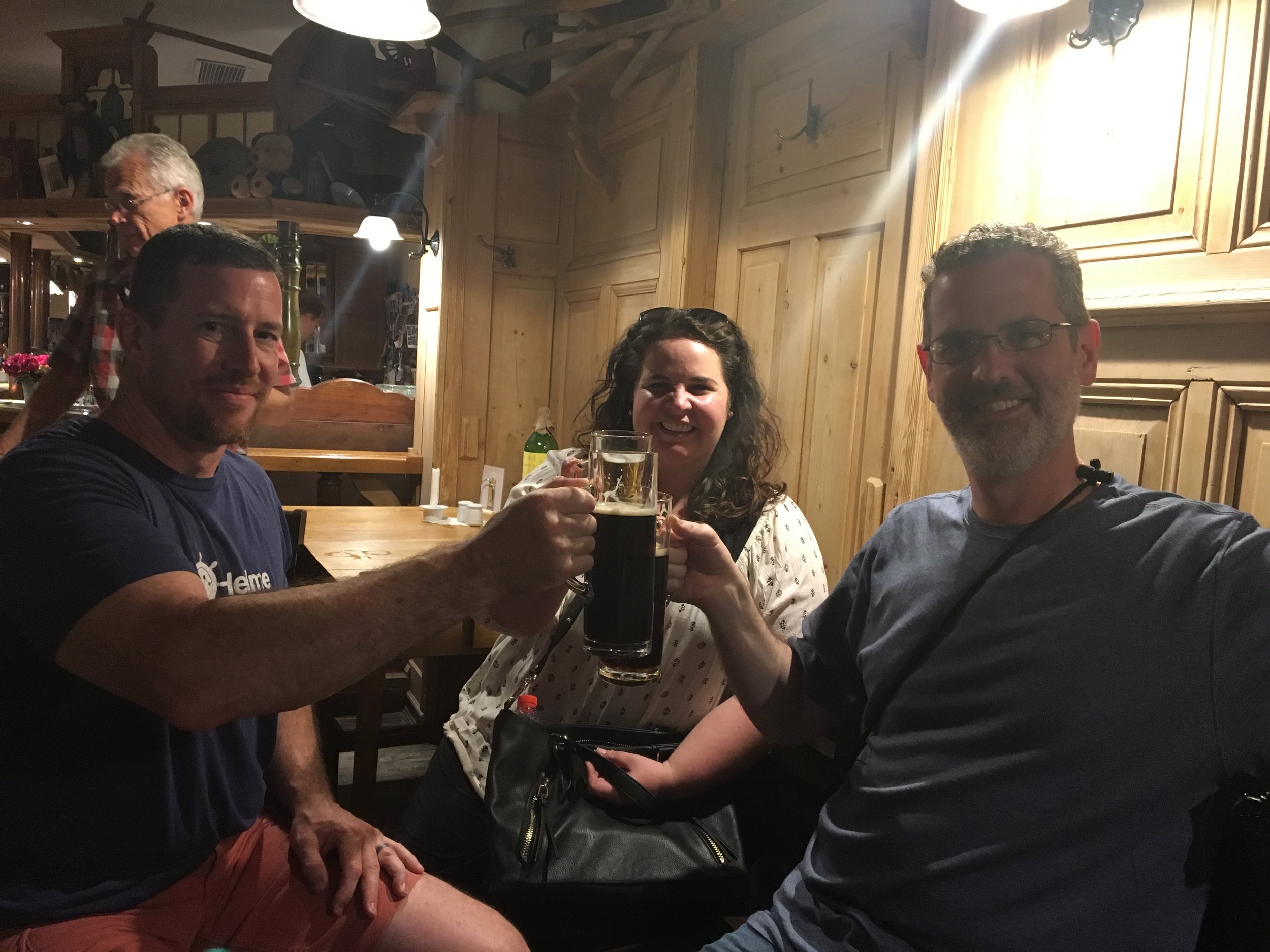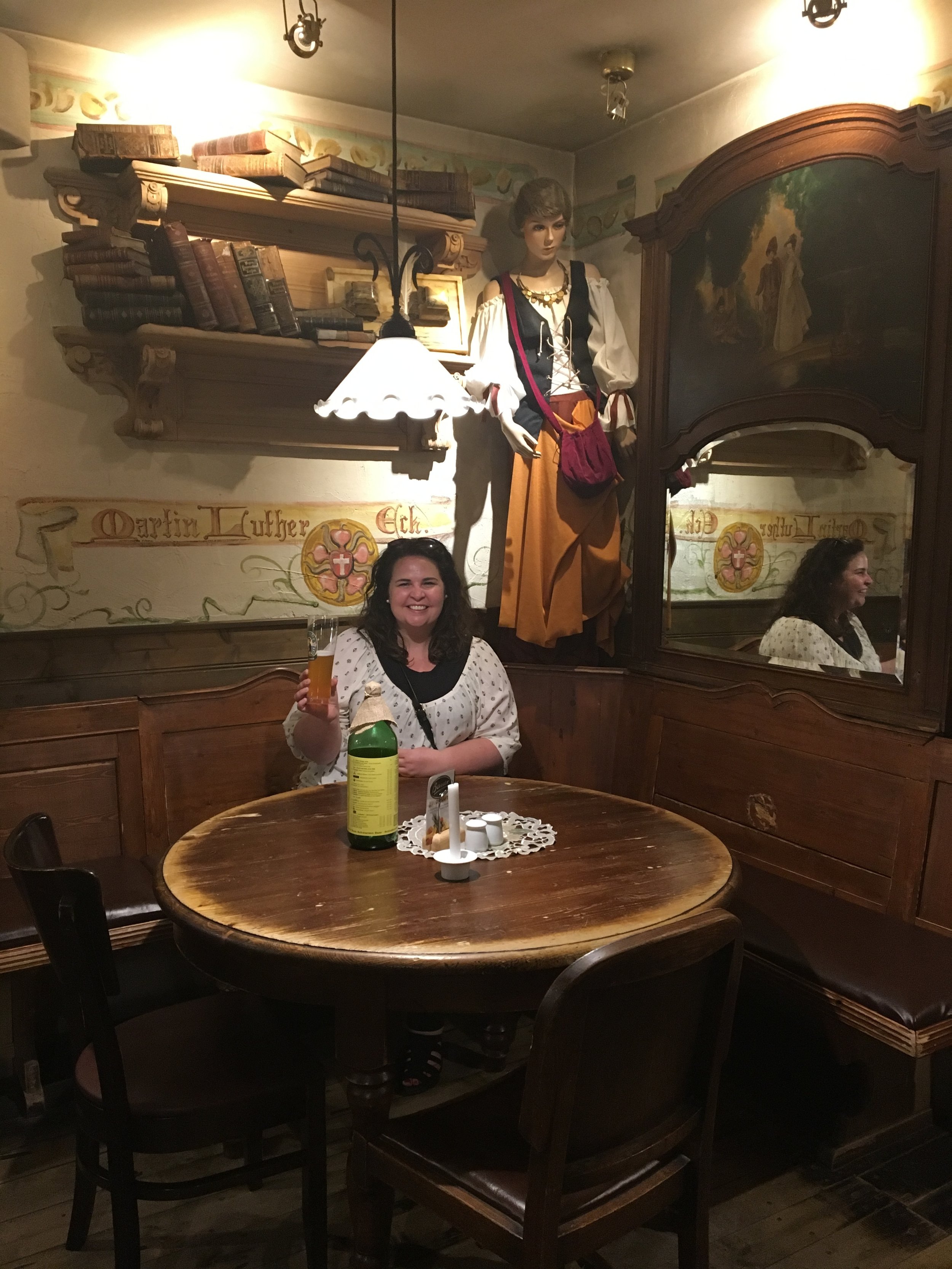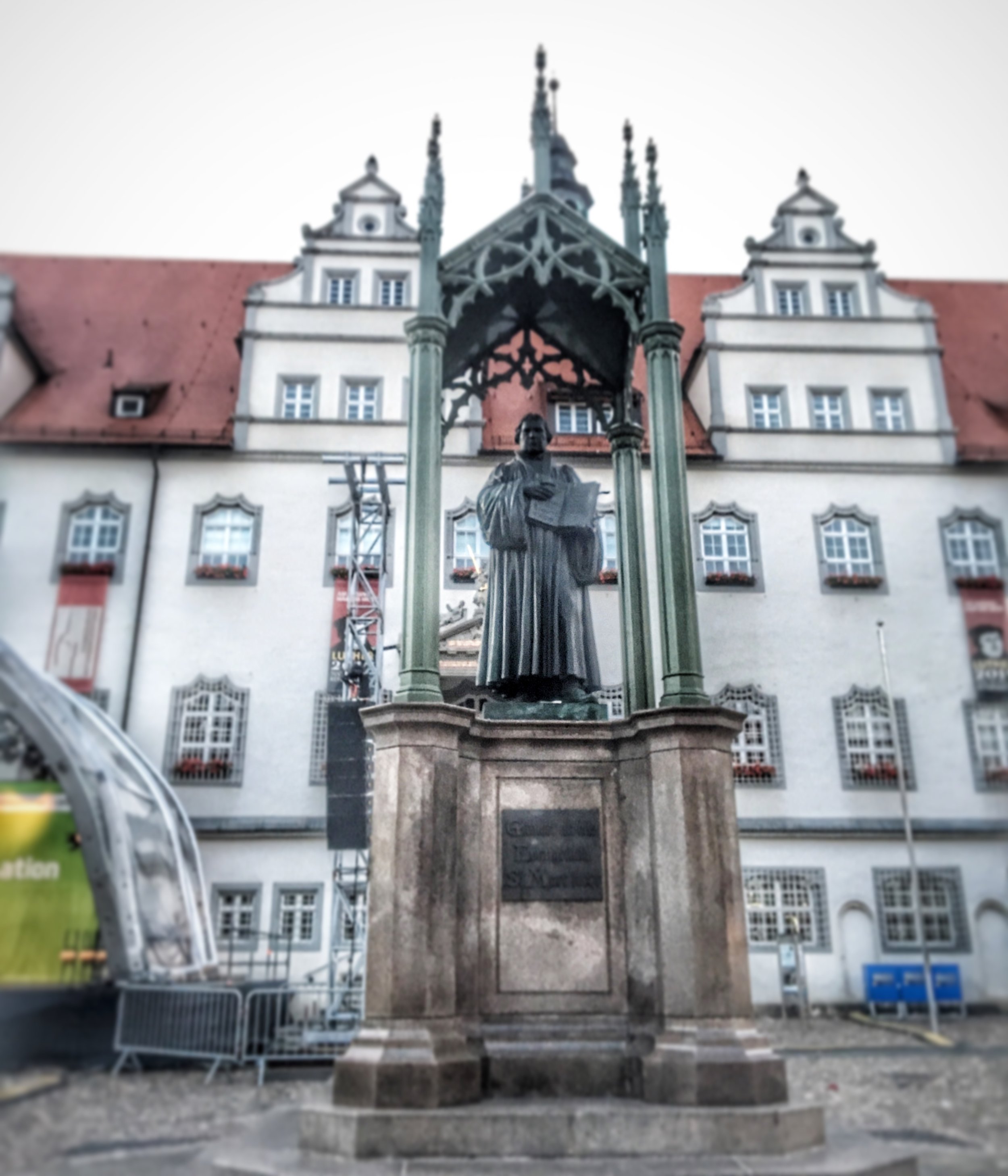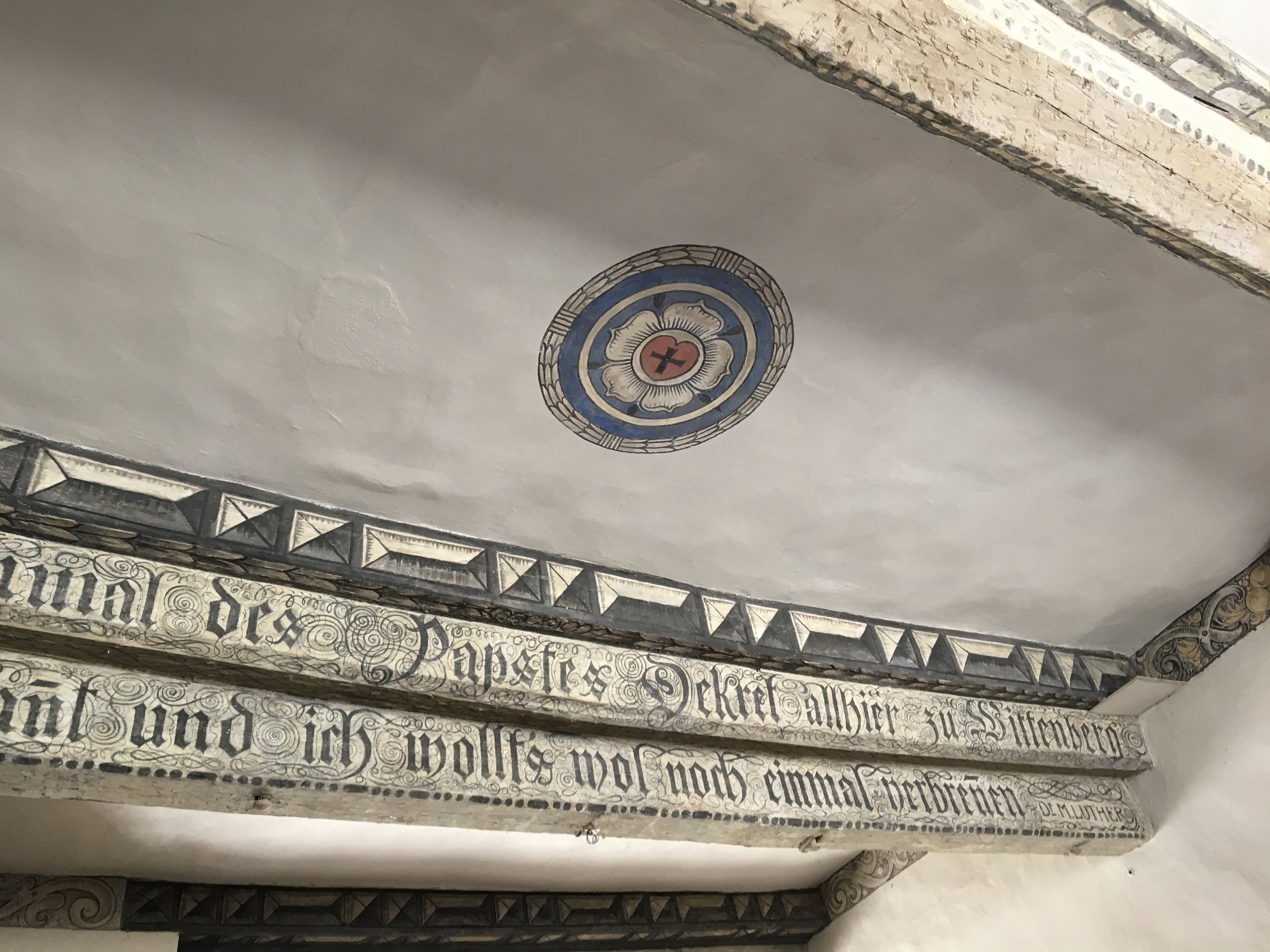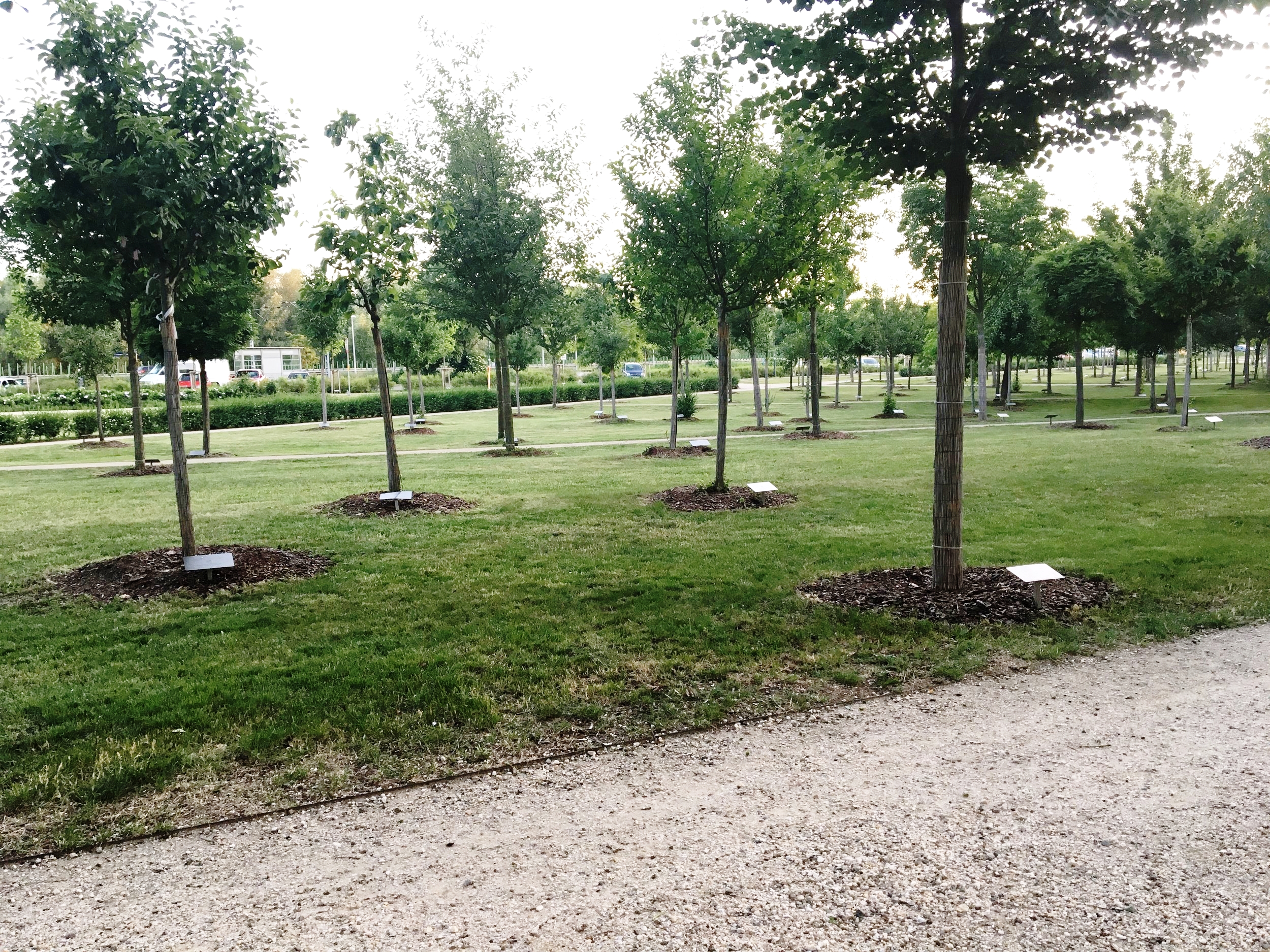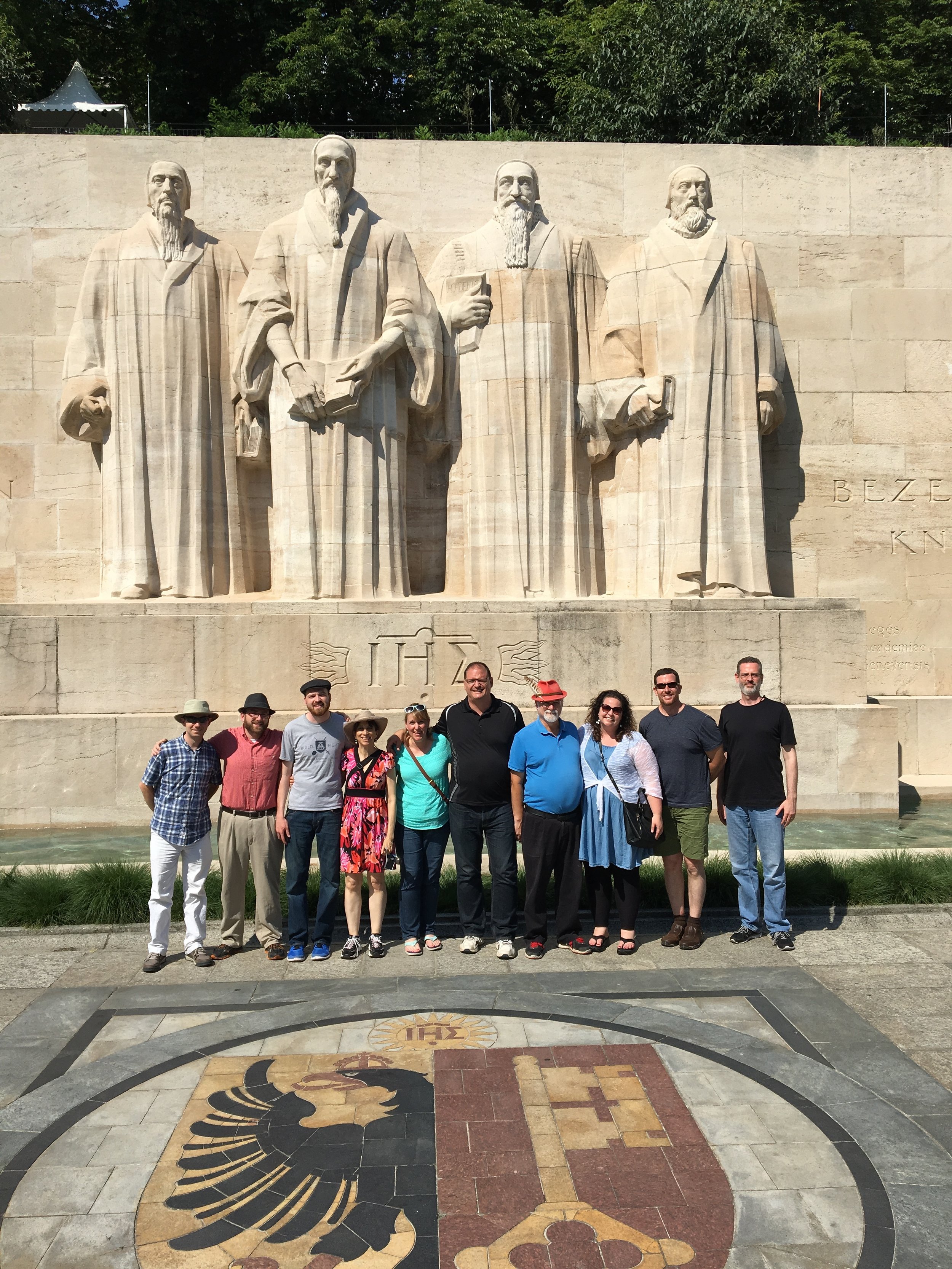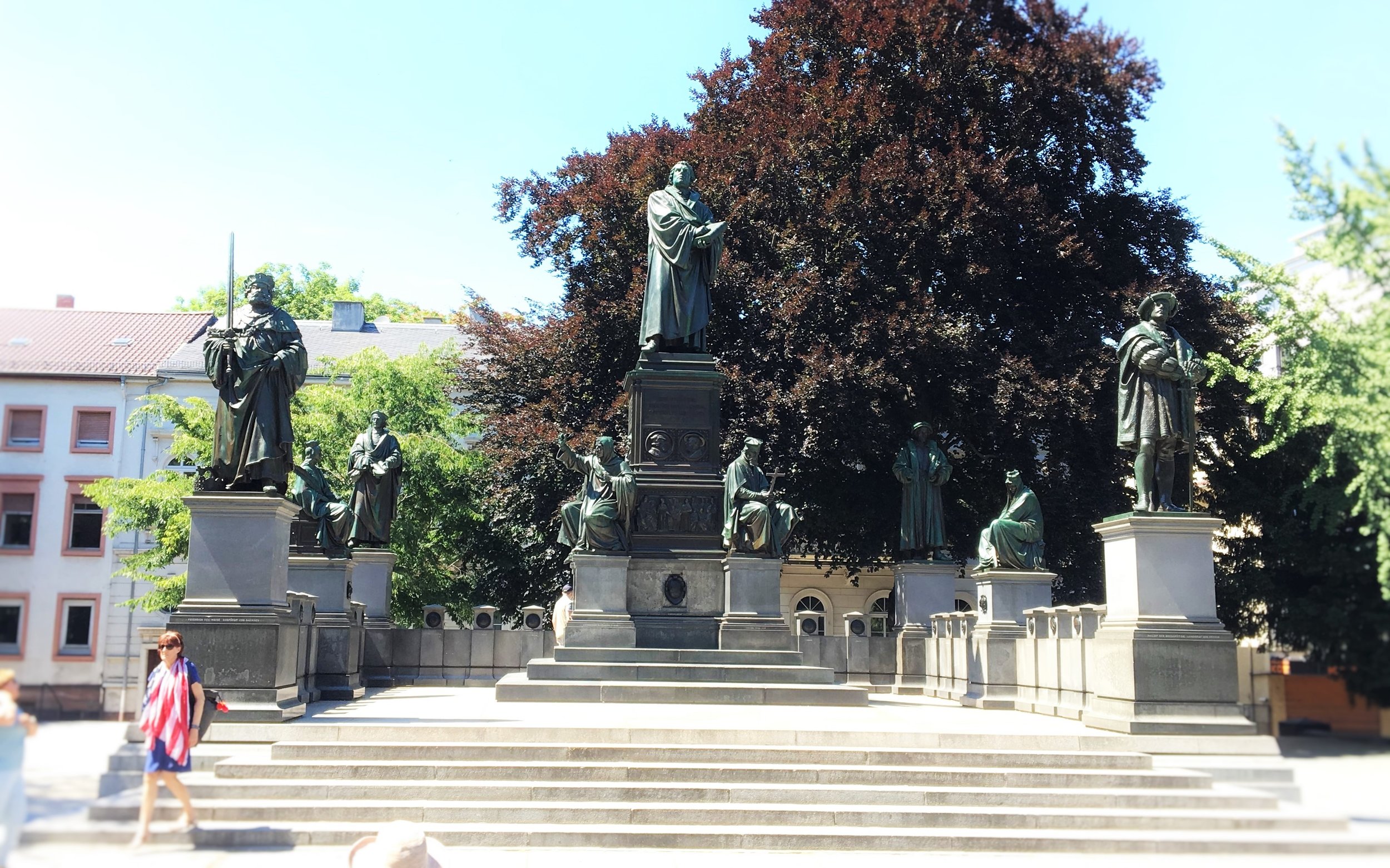A Reformational Journey by Trisha Williams
500 years ago...
On October 31, 1517 Martin Luther nailed it. 95 Theses that is. 95 reasons why the church's teaching about the sale of indulgences was corrupt. Pounding that document to the door at Castle Church in Wittenberg, Germany (the equivalent of posting on the social media page of a university that a public debate was to be held), started a movement that is now known as the Reformation, and is a significant reason why 900 million Christians identify as Protestant in the world today. This past June I was privileged to travel with fellow teachers and my students on a two-week Reformational journey through Germany, France and Switzerland. Indulge me as I share the story of Martin Luther through my pictures with all of you.
You might wonder how the whole of Germany, and soon the entire Holy Roman Empire heard about this nailed document. After all it was still the medieval period and the Castle Church door was not a secret portal to the Internet.
Seventy-seven years before Luther nailed it, the German Johannes Gutenberg combined existing technologies to invent the movable type printing press forever changing the world. This significantly lessened the time of making a book and the cost of creating a book. It's very telling that the very first book printed was a copy of the Bible. Today a Guttenberg Bible is one of the most valuable books in the world and is held in a locked, climate-controlled vault.
Wittenberg was a small town and a small university far away from the Vatican City in Rome. Unbeknownst to Luther, students excited about the potential results of the debate translated the document from Latin to German, and used Gutenberg's invention to print thousands of copies. Luther's friend Friedrich Myconius later wrote that “Hardly 14 days had passed when these propositions were known throughout Germany and within four weeks almost all of Christendom was familiar with them.”
So who was this guy? How did an unknown priest rise to such prominence, and more importantly, how did this little man come to such a passionate understanding that the teaching of the church was so corrupt that he was willing to publicly dispute it even upon penalty of death?
Martin was born into the Luder family in Eisleben, Germany in 1483.
He was baptized at the Church of St. Peter and St. Paul and named Martin after St. Martin of Tours. St. Martin was a French saint who became famous for refusing to fight in Rome's armies. and instead became a passionate defender of Trinitarian theology and a destroyer of pagan temples in the third century. No coincidence here!
His father wished him to study law (which I find ironic after giving him such a namesake), so Martin obeyed, and moved to the University of Erfurt. But while thinking he would die while caught in a terrible thunderstorm, he vowed to St. Anne that he would become a priest and promptly joined the Augustinian monastery in the same town when he made it out alive.
He spent several years in the monastery where God planted many seeds for his later work. For the first time he read Scriptures for himself. He prayed, he meditated, he beat himself, he confessed his sin so often to his fellow monks that they began despairing whenever he opened his mouth. Luther was deeply discontent with his soul's status before a righteous God. In monastery chapel was an image of Christ as Judge over all mankind. How could he ever be good enough to be accepted? Of particular note are the symbols in the early 14th century stained glass windows depicting the life of St. Augustine that he would have seen and stared at for hours every day. Later on in his life when he developed the seal now known as the "Luther Rose" it's obvious that his inspiration came from these windows.
Despite his personal doubts about his own salvation, Luther was ordained a priest at St. Mary's Cathedral in Erfurt in 1507.
In 1508 he moved to Wittenberg to teach and in 1510, he along with a friend walked 1000 miles on a pilgrimage to Rome. It was while in Rome that Luther realized that the motivation behind the sale of indulgences (a special blessing granting of forgiveness from the pope on the soul of the sinner whether dead or alive) was purely for financial gain and to allay the cost of building cathedrals (a power status symbol in the medieval era).
Cathedrals like the magnificent Strasbourg Cathedral in Alsace, France built by skilled craftsmen and laborers was financed through donations to the bishopric. As it took almost 300 years to build, and no amount of normal tithing could have paid for its costs, one can be sure that the sale of indulgences and fines for punishments of sins committed helped foot the bill.
Now home from Rome back in Wittenberg Luther continued to study, write, and preach against the sale of indulgences before his big posting on Castle Church in 1517. In the same year he changed his surname from Luder to Luther, which one of his friends suspected may have been a play on the Greek Martinus Eleutherios which when translated means Martin the Free. You see, Martin Luther had discovered the riches and freedom to be found in the biblical doctrine of justification by faith alone. In his study of Romans, Martin became increasingly convinced nothing he could do would earn him favor with God. The just shall live by faith, and faith was a free gift of God given to all who believe that Jesus Christ paid their debt on the cross, and in his death and resurrection grants believers his righteousness.
It only took one year before Rome charged Martin with heresy. He defended himself on the basis of Scripture alone and not church doctrine in Augsberg, and was forced to flee from his enemies under the protection of Frederick the Wise.
In 1521, Pope Leo X issued the papal bull (a document excommunicating Luther from the church). To understand the enormity of such an order, you have to understand the doctrinal teaching about church membership at the time. Church tradition had taught that papal authority came from a spiritual ancestry descended from the Apostle Peter. Popes were understood to hold the keys of heaven and hell, so when Pope Leo X sent Luther the papal bull, he basically told Luther that he would be damned for all eternity.
So what did Luther do with this document? He symbolically sent it to hell by burning it publicly at the crossroads in downtown Wittenberg in front of the whole town. Since that day, a tree has been planted marking the spot where Luther took his stand.
For his rebellion and continued writings, Luther was called to stand trial at the Imperial Parliament at the Diet of Worms before the Holy Roman Emperor Charles the V. When asked to recant upon the penalty of death here Luther spoke the following words.
My student Eli playing the part of Luther in our reenactment of the Diet of Worms on location.
"Unless I am convinced by the testimony of the Holy Scriptures or by evident reason--for I can believe neither pope nor councils alone, as it is clear that they have erred repeatedly and contradicted themselves--I consider myself convicted by the testimony of Holy Scripture, which is my basis; my conscience is captive to the Word of God. Thus I cannot and will not recant, because acting against one's conscience is neither safe nor sound. God help me. Amen."
The ensuing anger at Luther's declaration was without bounds. In order to protect Luther's life Frederick the Wise staged a kidnapping and whisked Luther away to the Wartburg Castle where Luther disguised himself as Junker Jörg , a knight.
Here by the grace of God, and despite great spiritual attack, Luther was able to translate the New Testament from Greek into the German language in just ten weeks.
Despite the dangers, in 1522, Luther left Wartburg and returned to Wittenberg where he continued to preach, teach, and write promoting reforms in the church. He encourage new hymns to be written, became passionate about educating everyone (both men and women) about biblical doctrine, and wrote many tracts instructing monks and nuns to leave their cloisters. One nun named Katharina von Bora embraced his teaching and wrote to Luther asking him to help a group of nuns to escape their cloister. He sent a fish merchant to the cloister and the nuns escaped to Wittenberg by hiding among the barrels.
It was illegal according to cannon law to house escaped nuns or monks, so the fact that Luther was able to marry them off and get them gainful employment was remarkable. All but one of the nuns that is. Katharina apparently had set her cap for Luther and would have none other. Luther had not thought that he should marry, but upon further reflection he thought that "his marriage would please his father, rile the pope, cause the angels to laugh, and the devils to weep," so marry her he did. Luther was 41 and Katy was 26.
John, son of Frederick the Wise, ironically gave the now married ex-priest and ex-nun The Black Cloister to live in, a dormitory for friars studying in Wittenberg, as a wedding present.
Martin and Katy's marriage changed everything. Yes, Luther had already become infamous for his stand against corrupt Catholic teaching, but it was due to Katy's love and care for him through which he became the famous Reformer we now recognize. Their marriage also served as a living act of reformation for all subsequent Protestant marriages. They became well-known for their extraordinary hospitality and it was from conversation around their dining room table that Luther's notable Table Talks was born.
Together they had six children and raised four orphaned children. Due to Luther's exorbitant generosity (giving money away almost as soon as he received it) and penchant for inviting everyone and anyone over for dinner and a bed without always informing Katy, she had to work extra hard to keep everyone housed, clothed and fed. She cared for their home, their farms, bred and sold cattle, and started a brewery to bring in extra income. Despite Luther saying of her that “If I can endure conflict with the devil, sin, and a bad conscience, then I can put up with the irritations of Katy von Bora" he affectionately called her "my lord Katy," and "the morning star of Wittenberg" due to her work ethic.
Though they both seemed to struggle with their roles as husband and wife in relationship to each other, Martin is of particular interest for his thoughts regarding why all Christians should seek to honor God in the daily and perhaps mundane routines of life which Katy lived out so beautifully in front of him each day. He said: “Christ sayeth not, Abstain from the flesh, from marrying, from housekeeping, etc., as the Papists teach, for that were even to invite the devil and all his fellows to a feast.” The devil is in the details as they say. Luther also said: "Every occupation has its own honor before God. Ordinary work is a divine vocation or calling. In our daily work no matter how important or mundane we serve God by serving the neighbor and we also participate in God's on-going providence for the human race." In Luther's day this was a radical understanding of the sacredness of work, and in fact, it may perhaps still be for us in the 21st century.
Allowing Katy to be his true partner in life and in ministry allowed Luther to flourish, and before dying, he even went against Saxon law and left all his property and wealth to her. Sadly, she didn't take his advice and sell their lands after his death, trusting that his will would be upheld, which the court system did not do, leaving her quite destitute before her own death in 1552.
In the same year that they married, 1525, Luther held the first Protestant German mass in St. Mary's in Wittenberg. This is the church in which he baptized his six children, and it's from this pulpit that he preached for the remainder of his life.
In 1529, Luther published his Large Catechism (an easy to understand summary of Christian doctrine.) Helping people understand the simplicity and beauty of the gospel was Luther's passion. Knowing that many people in Germany could not read, Luther employed his artist friend Cranach to illustrate gospel truth. While Luther knew that veneration of the images in many Catholic churches was part of the corruption of the gospel, he too recognized that the images could be powerful tools to teach truth. After all it was an image of Christ with a sword coming out of his mouth (a reference to Christ as Judge) that God used to bring Luther to a saving faith and understanding of the Scriptures.
One can almost picture Luther walking back down the road from Castle Church where he taught each day and stopping by his favorite pub, The Black Bear, to continue discussing theology with his students. He was always so concerned that the common lay person, not just the seminary student, should be able to understand their faith. Perhaps they drank the beer produced in his wife's brewery. Perhaps it was also here that he heard the melody of a drinking song that he would borrow for his now famous hymn A Mighty Fortress Is Our God which was published in 1533 in Klug's Songbook. Luther had strong opinions on music. He said: "I have no use for cranks who despise music, because it is a gift of God. Music drives away the Devil and makes people joyful; they forget thereby all wrath, unchastity, arrogance, and the like. Next after theology, I give to music the highest place and the greatest honor."
In 1546 Luther died, and is buried in Castle Church in Wittenberg where his Reformational work all began. In Table Talk he's quoted reflecting on his own life: “God knows, I never thought of going as far as I did. I intended only to attack indulgences. If anybody had said to me when I was at the Diet of Worms, ‘In a few years you’ll have a wife and your own household,’ I wouldn’t have believed it.” I appreciate the humility in these thoughts. God equips those he calls to the tasks He has for them. He goes on to say: "I simply taught, preached, wrote God's Word: otherwise I did nothing. The Word of God did it all."
While in Wittenberg, I had the privilege of attending an English speaking service in Castle Church. A Lutheran minister from Brazil serving in a church in St. Louis, Missouri, United States, preached the gospel with a heavy Portuguese accent from the podium where Luther lectured his seminary students. I spoke with him after the service and he said most of his church is made up of refugees new to the United States, and most come already knowing that the just shall live by faith in Jesus Christ who is their only hope. He said that he finds refugees seem to believe this truth more than most American citizens he's encountered. He ended the conversation saying that there will always be a need to reform the church because people are always forgetting that they can't earn their own salvation.
In Table Talk No. 1353 Luther is quoted as saying: “The principal lesson of theology is that Christ can be known. Here the teacher shouldn’t be ashamed of learning from his student, nor the student of learning from his teacher. Christ is friendlier than we are. If I can be good to a friend, how much more will Christ be good to us! When Satan leads me to the law I am damned, but if I can take hold of the promise, I am free. Peter said ‘Grow in the knowledge of Christ’ (II Peter 3:18) This isn’t a knowledge of the law, of dialectical skill, or of some other art, but it’s the knowledge that Christ is the most just and the most merciful One, in whom alone we dwell. Satan clouds this basic knowledge in our hearts in a remarkable way and causes us to trust an earthly friend more than Christ.”
“No great saint lived without errors" said Luther in Table Talk. And this is true and was true of Luther as well. He could be vulgar, crass, and harsh. As we remember with gratefulness this 500th anniversary we cannot overlook his contribution to the entrenched anti-Semitism of Germany that would one day culminate in the Holocaust of WWII. He too was a man of his times who stayed with his times in so many ways, but where God allowed him to rise above, I am so grateful, and we can all still learn so much from him.
Luther said: "A religion that gives nothing, costs nothing, and suffers nothing, is worth nothing." The Reformation came at quite a cost of life and limb. In the middle of the famous Luther statue in Worms, there are two symbols: Mourning and Protest. We need to remember the thousands of martyrs that paved the way for the Reformation to occur before and after, and to remember the violence that ensued during the 30 Year War after Luther's life. We do indeed mourn the martyrs lives lost then and indeed still today due to ongoing persecution, but not as people without hope. And we need to continue to protest. Protest anyone who teaches false doctrines and tries to put up barriers to receiving the unspeakable gift--the amazing grace--knowing Jesus Christ and what he did for us.
Sola Fide, by faith alone.
Sola Scriptura, by Scripture alone.
Solus Christus, through Christ alone.
Sola Gratia, by grace alone.
Soli Deo Gloria, glory to God alone.

